-
Over 20,000 Russian soldiers prosecuted for refusing to fight in Ukraine, media reports
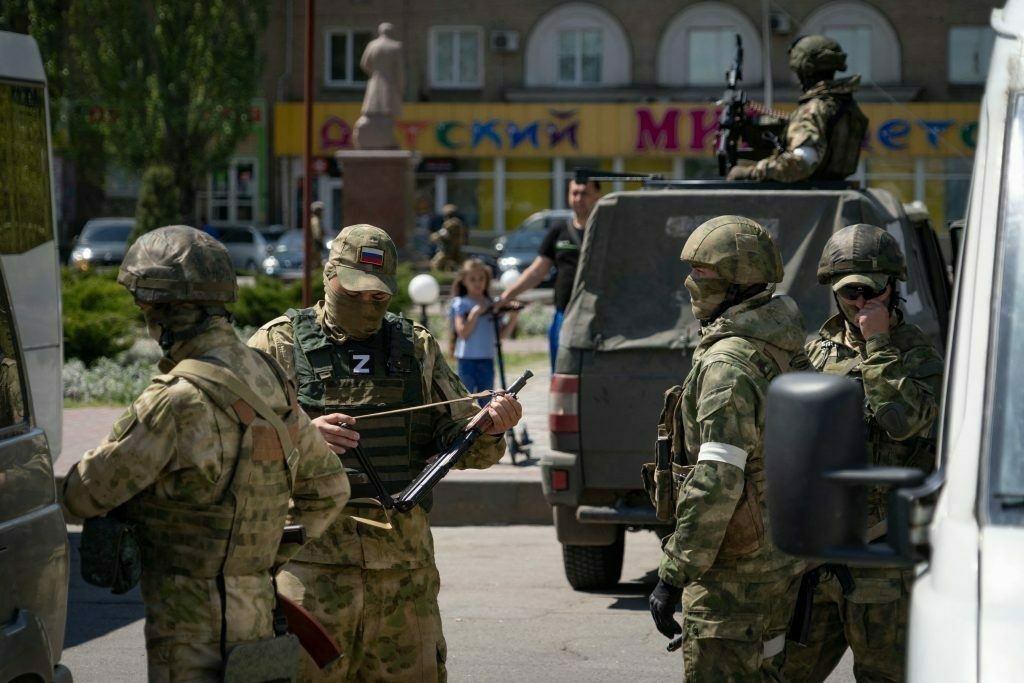
More than 20,000 Russian soldiers have been prosecuted for refusing to fight in Ukraine, a Russian independent media outlet Mediazona reported on June 26, citing online data from military courts.
As of late May, Mediazona had documented 20,538 such cases since September 2022 (when the Kremlin announced a first wave of partial mobilization) compared to 10,025 cases reported as of June 2024.
Of these, 18,159 were cases of soldiers going AWOL, 1,369 cases of failure to comply with an order, and 1,010 cases of desertion.
According to Mediazona, 17,721 of the accused have already been sentenced.
The Insider reported that Moscow uses a systematic program of “gulag-style” abuse directed at its soldiers in Ukraine in order to “maintain order” and punish perceived offenders.
Reports of Russian soldiers being abused by commanders and fellow troops have emerged since the full-scale war against Ukraine began.
Moscow has only intensified its war effort despite calls by Kyiv, the U.S., and European partners for an unconditional ceasefire as a first step toward a peace deal.
According to President Volodymyr Zelensky, Russia recruits around 40,000-45,000 men for its military every month.
Although Russia did go through phases of mobilization and has made great use of its prison population, most new recruits have for a while been volunteer contract soldiers, lured in by one-time signup bonuses often more than several years' average salary in poorer regions of Russia.
In late 2024, Russian President Vladimir Putin signed a decree to increase the size of Russia’s Armed Forces to about 2.4 million, including 1.5 million military personnel.
’50,000 Russian troops pinned down’ — Ukraine halts advance in Sumy Oblast, summer offensive ‘faltering,’ Syrskyi says“This year’s wave of the enemy’s ‘summer offensive’ from Russian territory is faltering,” Commander-in-Chief Oleksandr Syrskyi said. The Kyiv IndependentTim Zadorozhnyy
The Kyiv IndependentTim Zadorozhnyy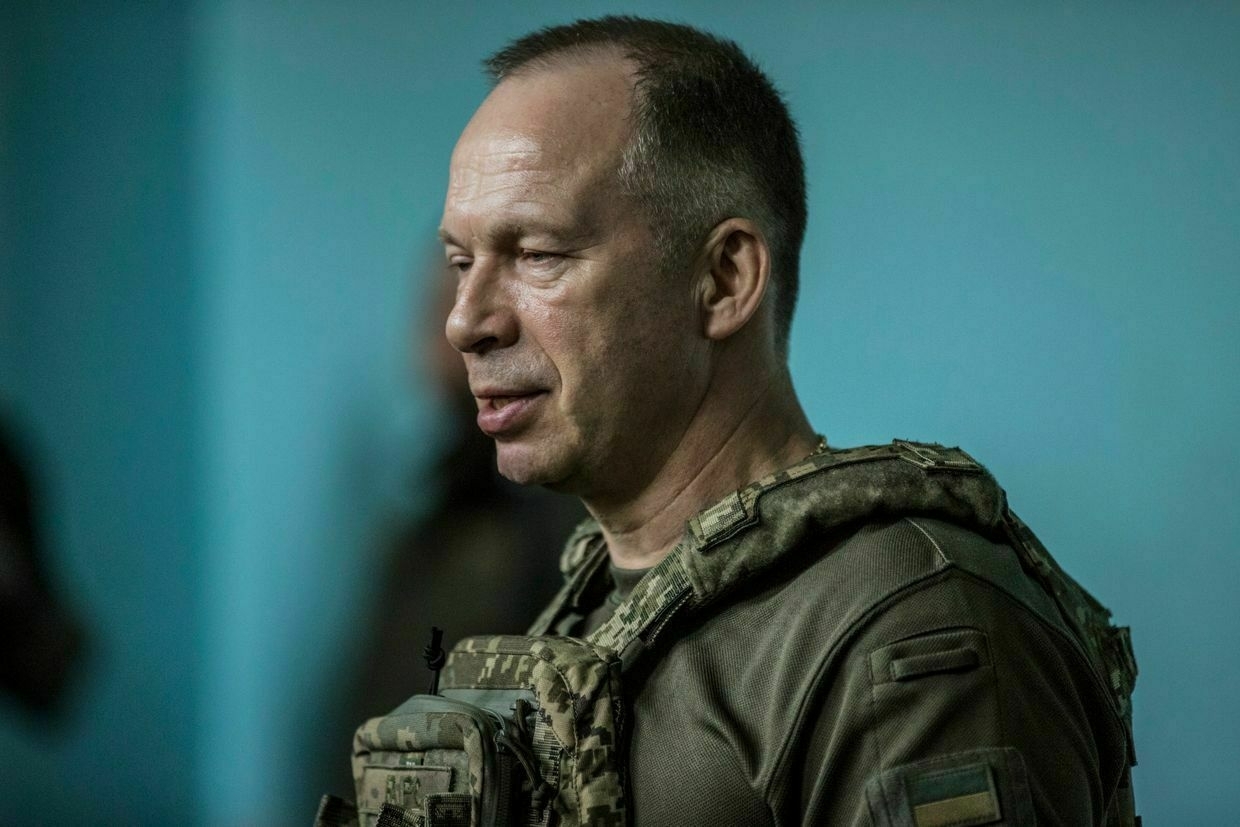
-
Russia still hasn't declared war on Ukraine, and doing so could spell Putin's demise, experts say
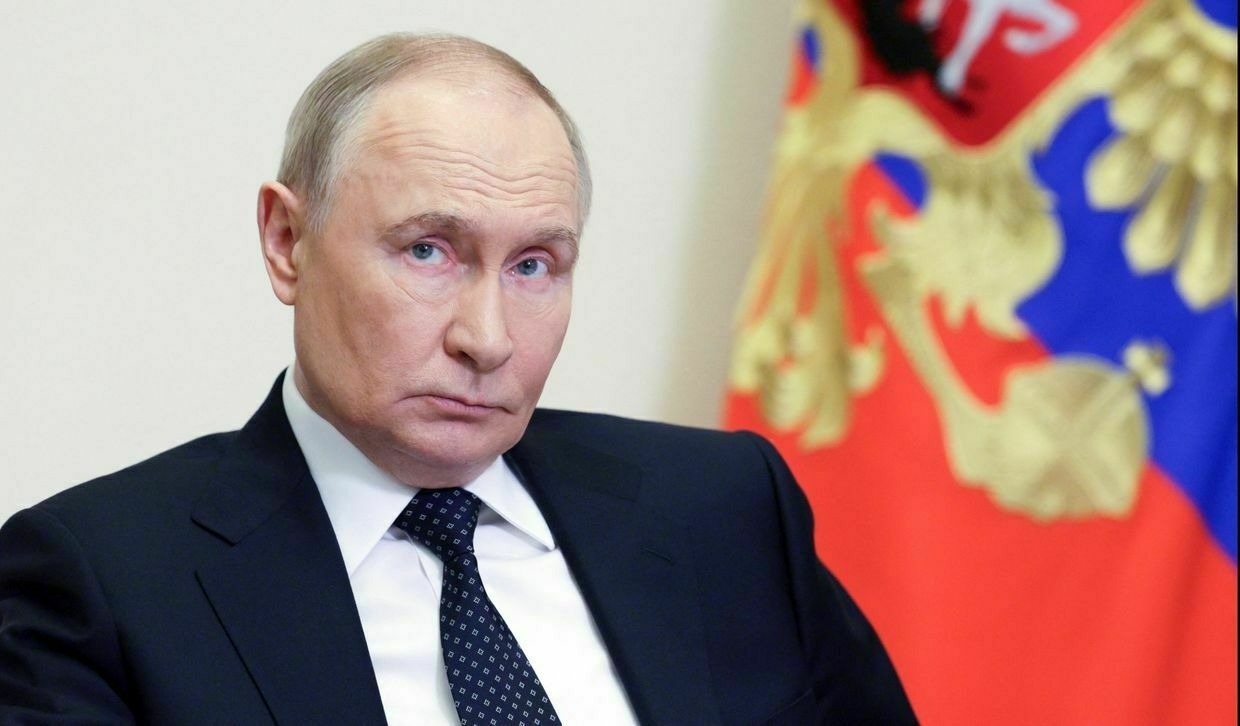
Despite suffering over 1 million casualties, pounding Ukrainian cities nightly with missiles and drones, and committing countless war crimes, one startling fact about Russia’s full-scale invasion remains — Moscow has yet to officially declare war on Ukraine.
In February 2022, Russian President Vladimir Putin described what he believed was going to be a swift victory and the capture of Kyiv within days as a “special military operation."
Nearly three-and-a-half years later, the Kremlin is stuck with the term, caught in a quandary of its own making — waging by what any measure is a war, while being unable to call it one for fear of a domestic backlash.
“Putin has protected himself in this war by separating the direct effects of the war from the majority of the Russian population.”
A formal declaration of war would have far-reaching implications for the country's industry and economy, as well as allowing the Kremlin to launch a full mobilization.
But partial mobilization announced in September 2022 led to the only widespread protests against the war inside Russia, making clear to Putin that announcing anything more would cause him serious political problems.
"Putin has protected himself in this war by separating the direct effects of the war from the majority of the Russian population," Karolina Hird, Russia deputy team lead at the Institute for the Study of War, told the Kyiv Independent.
"But as soon as that starts to spill over and actually be felt by more of the Russian domestic population, that's when he gets into more trouble."
According to reports, there has recently been unrest within the Kremlin after Ukraine's audacious Operation Spiderweb, with hardliners reportedly pressuring Putin to make a formal war declaration that would permit true retaliation and escalation, and give the Russian government sweeping authority to shift the country fully onto a wartime footing.
But experts who spoke to the Kyiv Independent say this is unlikely, arguing that for all intents and purposes, Russia's industry and economy are already on a wartime footing even if Kremlin officials deny this, and that Putin simply can't risk his hold on power by launching what would be a deeply unpopular mobilization.
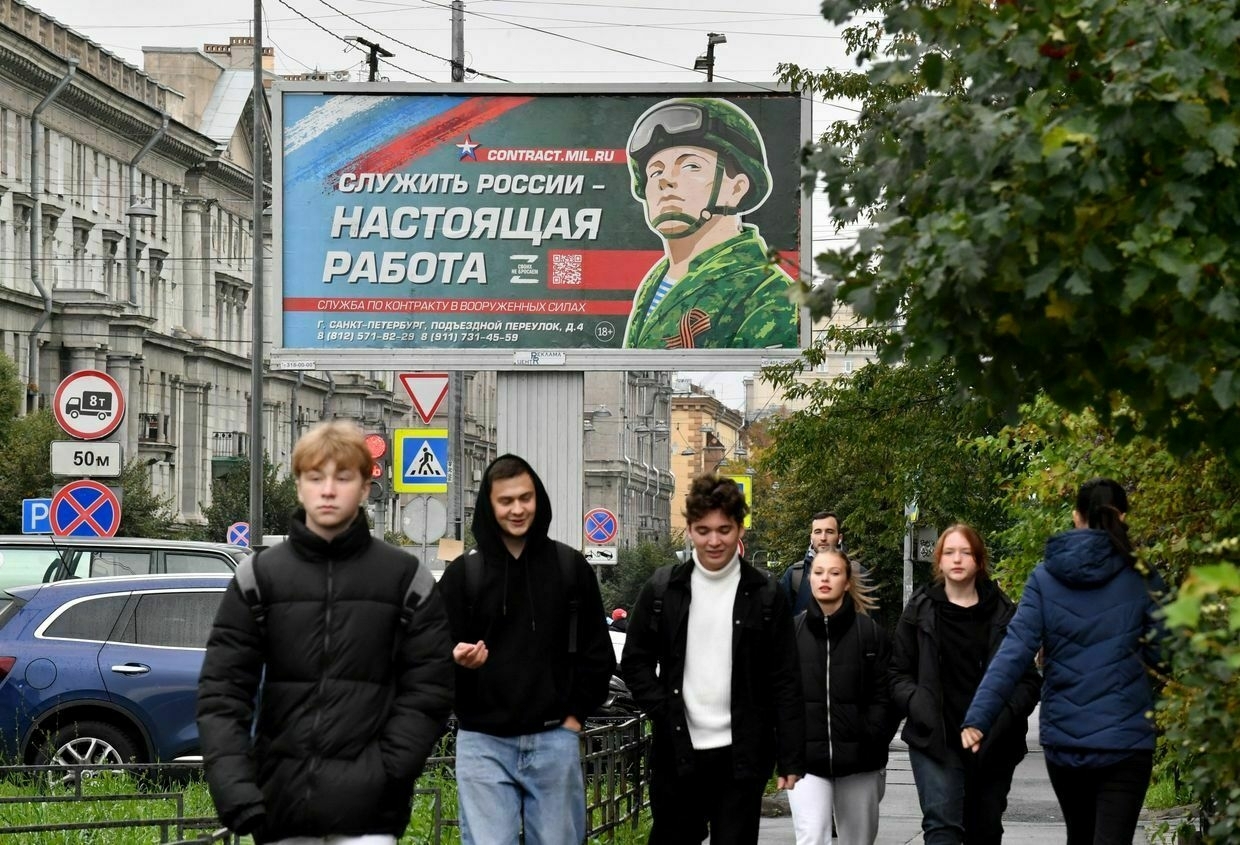
Youths walk past a billboard promoting contract army service with an image of a serviceman and the slogan “Serving Russia is a real job” in Saint Petersburg, Russia, on Sept. 29, 2022. (Olga Maltseva / AFP via Getty Images) 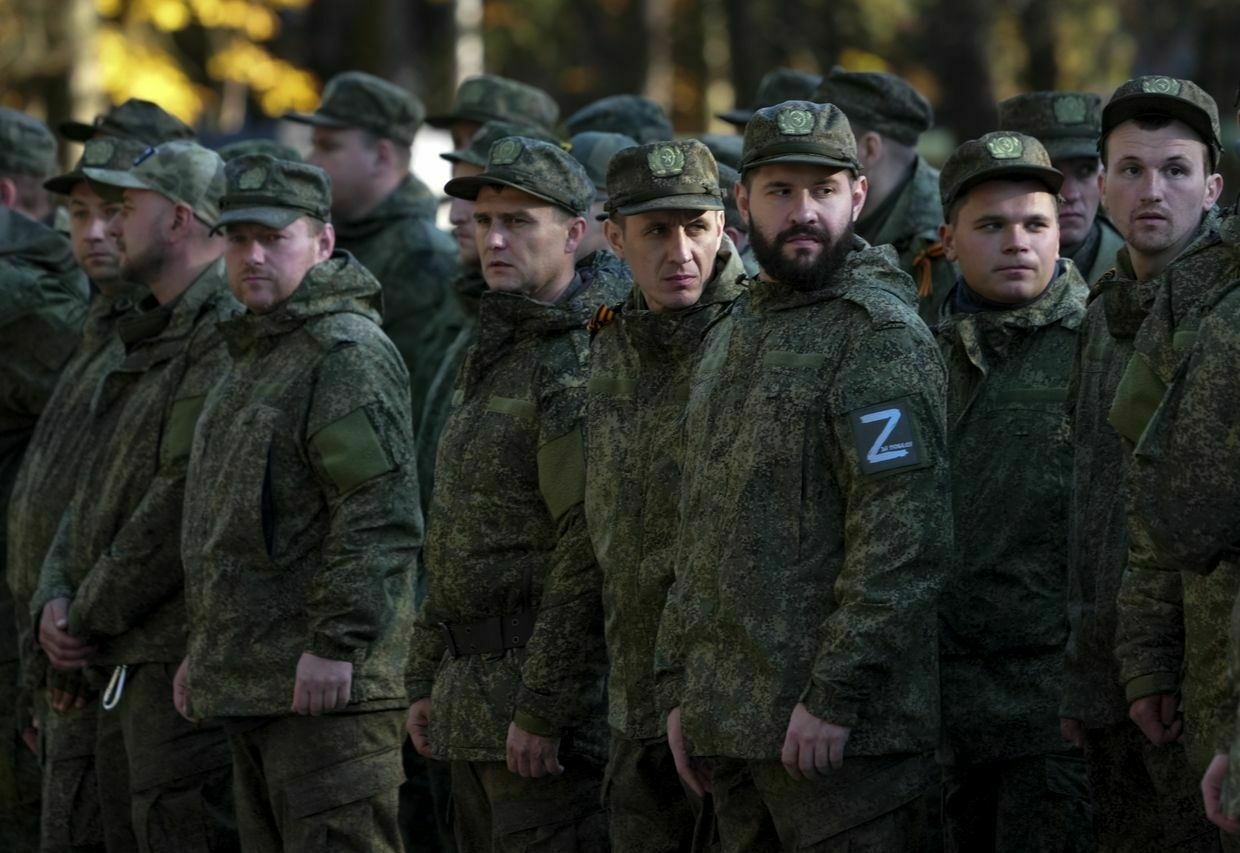
Russian citizens drafted during the partial mobilization are seen being dispatched to combat coordination areas after a military call-up for the Russian invasion of Ukraine in Moscow, Russia, on Oct. 10, 2022. (Stringer / Anadolu Agency via Getty Images) What would a Russian declaration of war mean?The two major factors that would come into play are the Russian economy and the Russian people.
A full war footing would be a complete pivot of the economy and its workers towards defense and the production of weapons, and allow for a full mobilization to conscript the necessary manpower to use them.
The Kremlin is projected to allocate 6.3% of its GDP to defense this year — the highest level since the Cold War — yet still far below what would typically indicate a country fully mobilized for war.
By contrast, Ukraine spent 34% of its GDP on defense last year, while British military spending surpassed 50% of GDP during the Second World War.
These same figures were cited by Russian Ambassador to the U.K. Andrey Kelin in an interview with CNN last week as evidence that Russia was in fact still fighting a "special military operation," and not a war.
Experts are not convinced.
"The Russian economy is already on a war footing, and the 6.5% of GDP spent on defense for 2025 is likely an underestimation," Federico Borsari, a defense expert at the D.C.-based Center for European Policy Analysis, told the Kyiv Independent.
"Defense production in key capability segments such as drones, missiles, and armored vehicles is at full steam, with up to three worker shifts per day."
Russia has drastically upped weapons production in recent months as it drains its stockpiles.
According to data from Ukraine's military intelligence (HUR) shared with the Kyiv Independent earlier this month, production of ballistic missiles, for example, has increased by at least 66% over the past year.
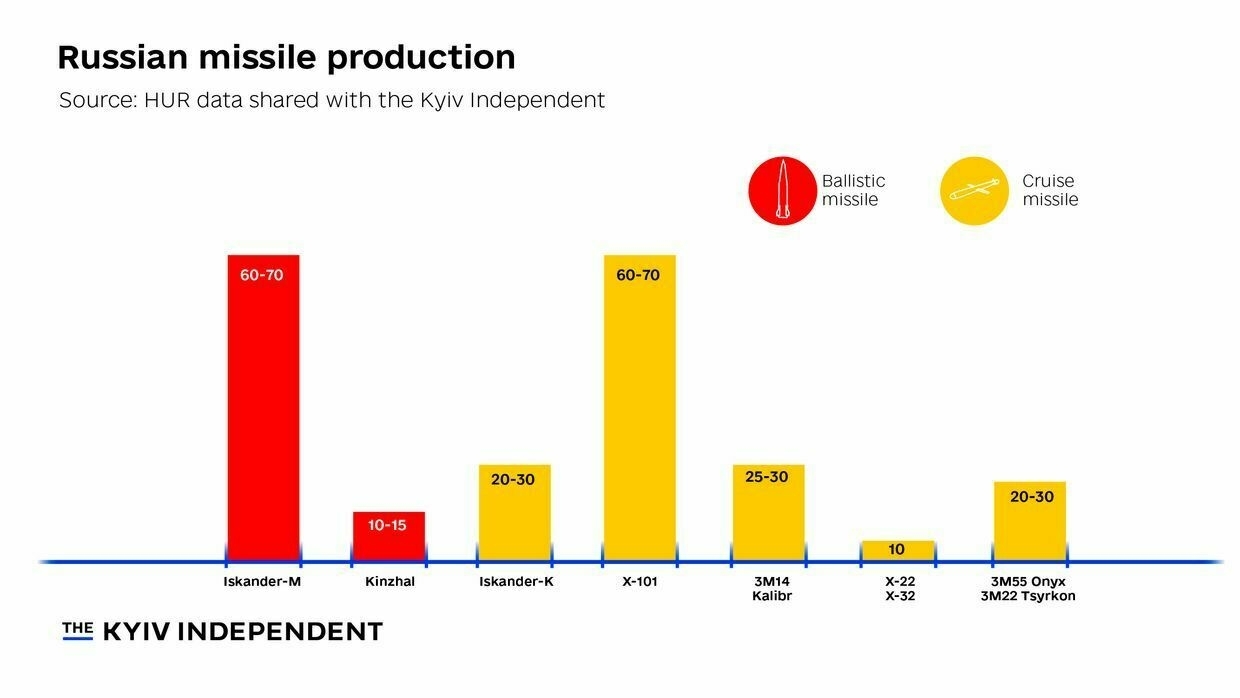
Russian missile production per month. (The Kyiv Independent) Hird agrees with Borsari's analysis, saying the massive boost in defense manufacturing is a sign that, despite Russia's claims that it isn't at war, its depleted stockpiles are a pretty clear sign they are.
"It's not like Russia has a secret reserve of weapons in the background that it can somehow kind of unlock and unleash on Ukraine," she said.
"Russia is already fighting an all-out war in Ukraine, so there's actually not much more that can be done on their side."
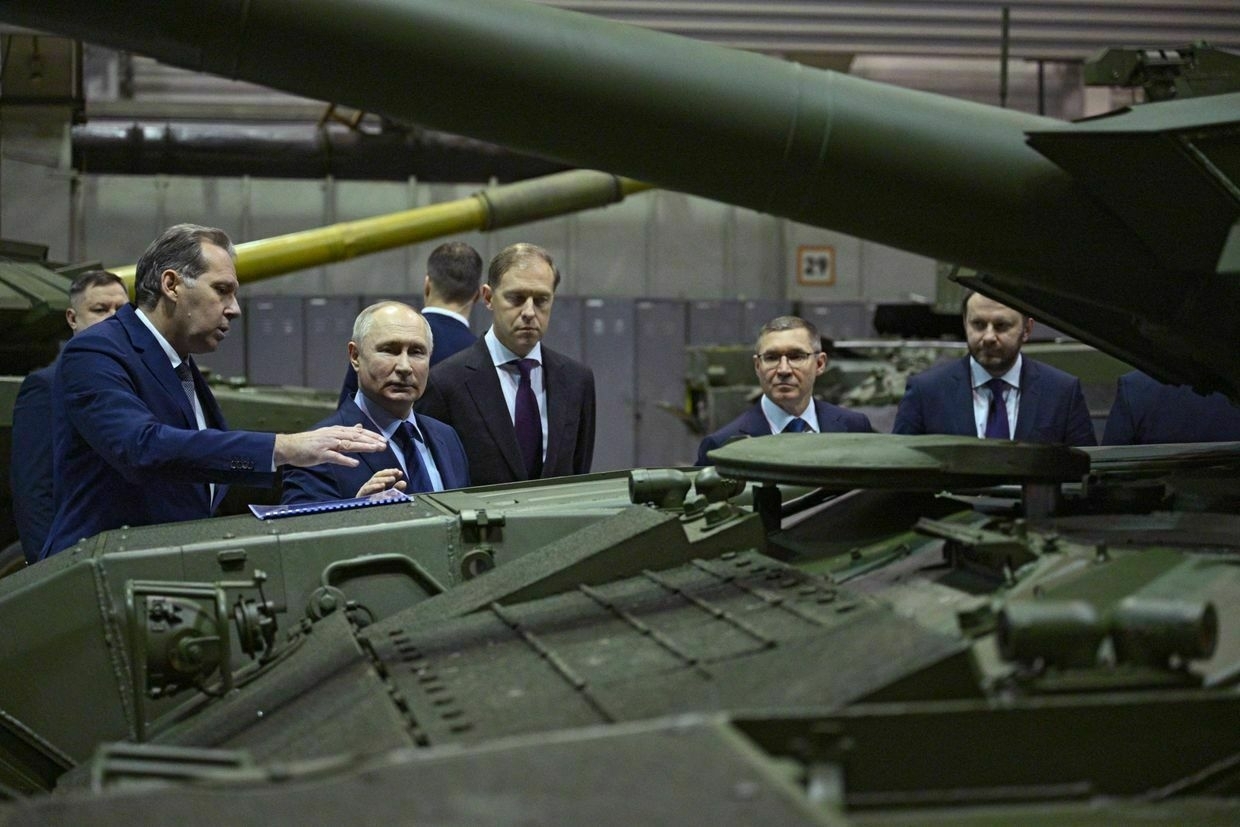
Russia’s President Vladimir Putin visits Uralvagonzavod, the country’s main tank factory in the Urals, in Nizhny Tagil, Russia, on Feb. 15, 2024. (Ramil Sitdikov / Pool / AFP via Getty Images) 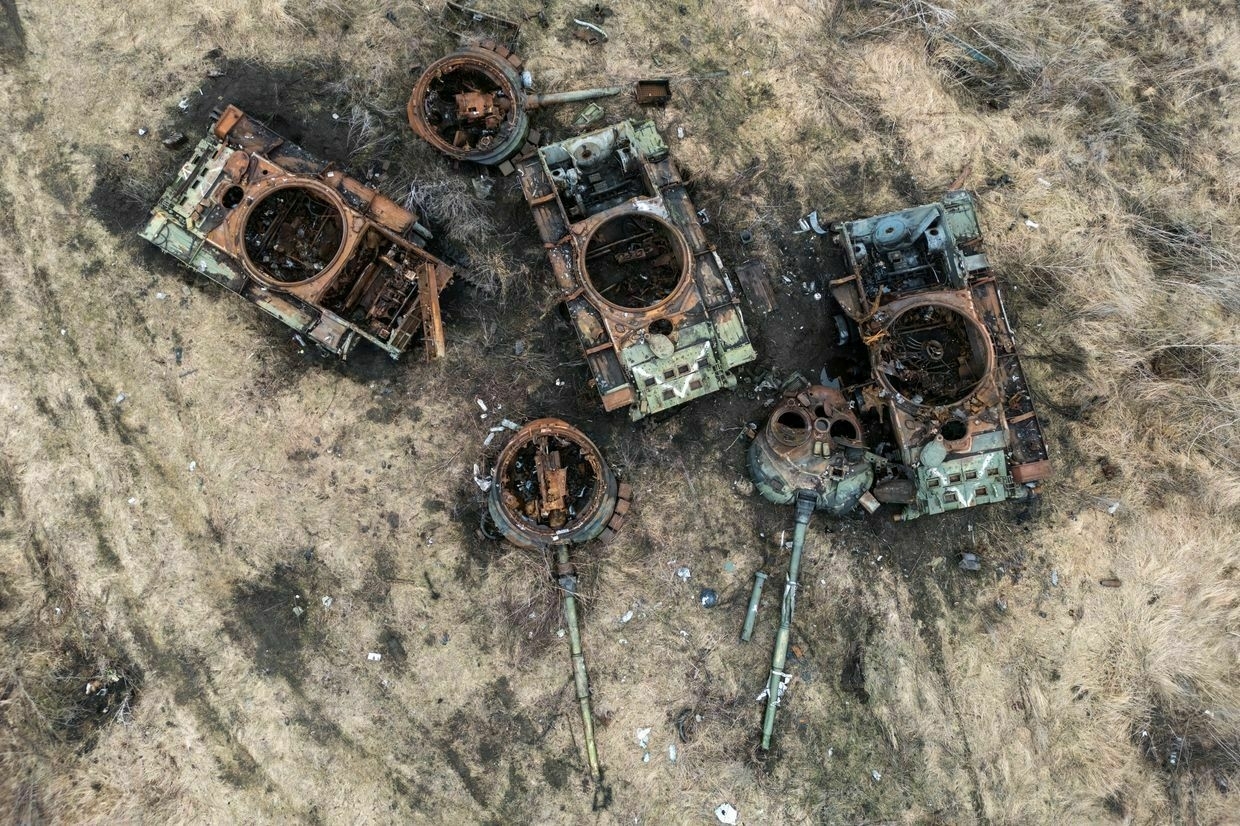
Destroyed Russian tanks lie in a field near the village of Bohorodychne in Donetsk Oblast, Ukraine, on Feb. 13, 2024. (Maxym Marusenko / NurPhoto via Getty Images) The manpower issueThe one crucial area in which a declaration of all-out war against Ukraine could significantly boost Russia's ability to wage war is manpower.
Throughout the full-scale invasion of Ukraine, Putin has steered clear of a full mobilization, conscious of the domestic backlash it would create.
Instead, the Kremlin has simply paid people to fight, offering huge sign-up bonuses to encourage people to volunteer, a method which, up to now has managed to replenish the huge losses the army has incurred, but which many experts think is unsustainable.
"In terms of manpower, Russia still has a sizeable population pool it can draw from, at least in the near term, especially in peripheral regions," Borsari said.
"However, this pool may not be sufficient to sustain the current pace of losses, with thousands of casualties each week, beyond the first half of 2026."
With no end to the war in sight, that looming deadline will likely pose a huge dilemma for Putin — how to find enough men to fight, without losing his hold on power?
"They are aware of the massive risks involved and Putin is rather risk-aversive," Ryhor Nizhnikau, a Russia expert at the Finnish Institute of International Affairs, told the Kyiv Independent.
"Full mobilization is expected to have a destabilizing effect on Putin’s regime, the already ailing Russian economy, and it will certainly unbalance the current public consensus on the war."
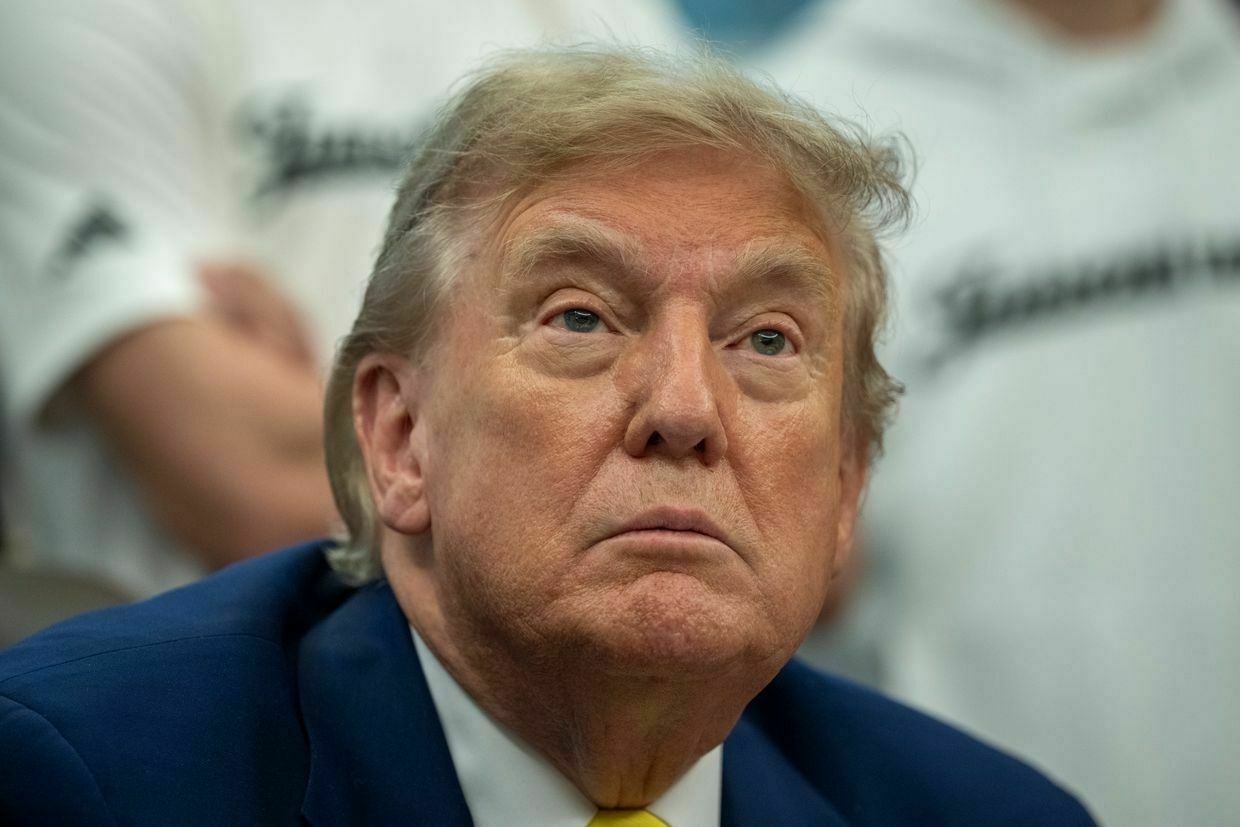
US President Donald Trump in the Oval Office of the White House in Washington, DC, U.S., on June 18, 2025. (Ken Cedeno / UPI / Bloomberg via Getty Images) The geopolitical aspectDeclaring war on Ukraine would also have international ramifications for Putin, Shea said.
"He will no longer be able to pretend to (U.S. President Donald Trump and (U.S. Special Envoy Steve) Witkoff that he is interested primarily in a partial victory by taking only the Donetsk region and Crimea," he said.
"He also said in St Petersburg last week that Russia posed no threat to NATO and that NATO was rearming for nothing. But a formal Russian declaration of war will convey the entirely opposite message."
Putin insists the Russian economy is fine, but Kremlin officials say otherwiseIn a rare public sign that all is not well in Russia, two high-ranking Moscow officials last week issued separate warnings about the state of the country’s economy. Russian Central Bank Governor Elvira Nabiullina and Economy Minister Maxim Reshetnikov both highlighted that amid the Kremlin’s full-scale war against Ukraine, the tools Moscow once relied on to maintain wartime growth are nearly exhausted. Almost immediately, Russian President Vladimir Putin on June 20 dismissed the concerns, clai The Kyiv IndependentTim Zadorozhnyy
The Kyiv IndependentTim Zadorozhnyy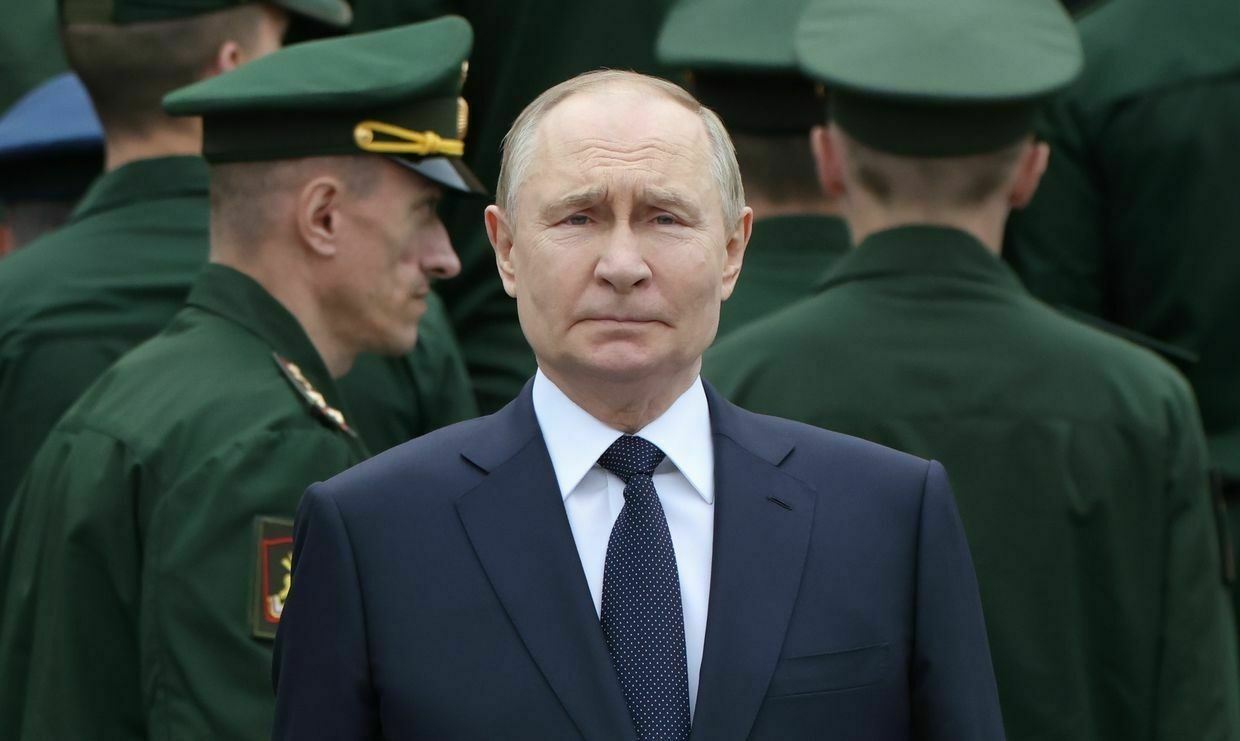
-
The Kyiv Independent reaches 20,000 paying members — thanks to our global community
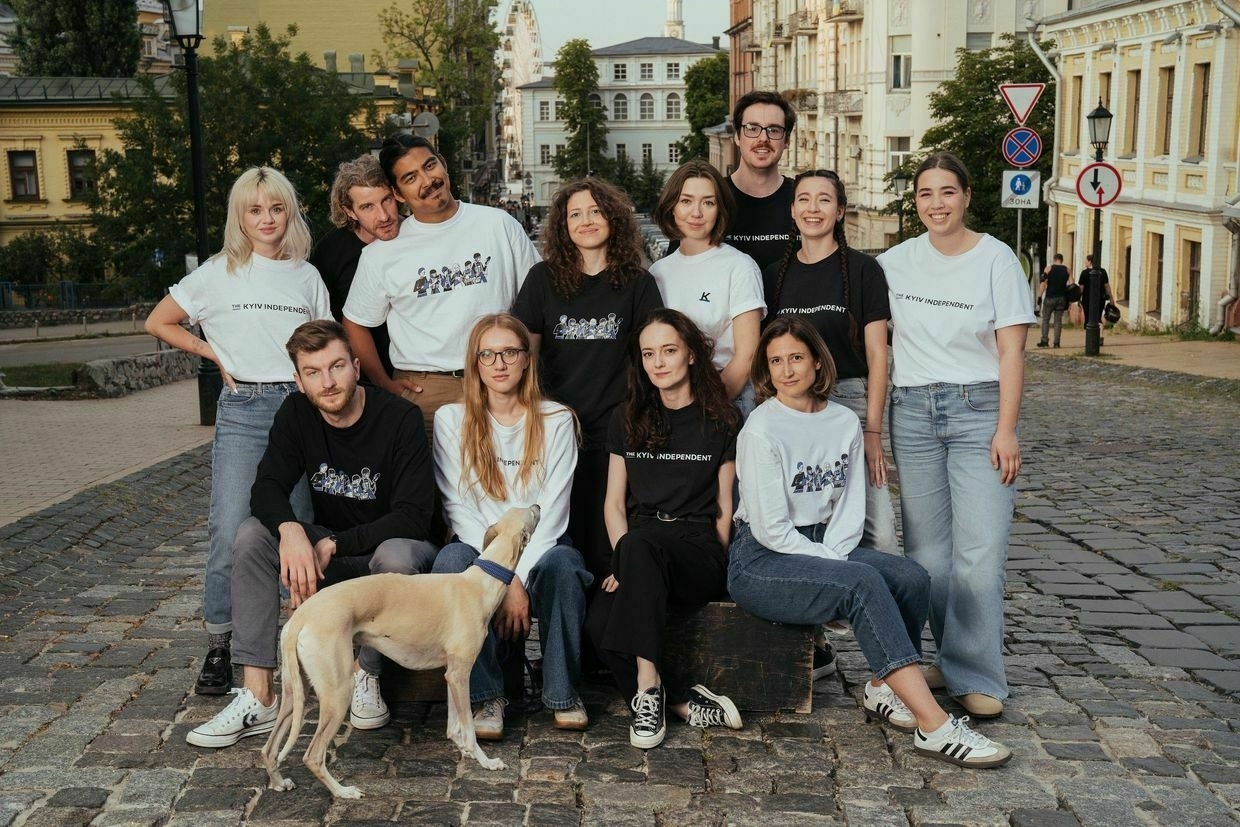
The Kyiv Independent has officially reached 20,000 paying members, becoming the first Ukrainian media outlet in history to cross this milestone.
This is not just a number — it’s a reminder that people around the world believe in the importance of independent journalism from Ukraine, and are willing to stand behind it.
When Russia launched its full-scale invasion in February 2022, the Kyiv Independent knew how important it would be to keep its reporting free and accessible — to show the world what was really happening on the ground.
More than three years later, that mission hasn’t changed. That´s why, in May, the Kyiv Independent launched a campaign to ensure that no matter what happens, it would be able to continue showing the threat Russia poses to the world, and the consequences of when it is allowed to do so unchecked.
In less than one month, 2,400 people became new members of the Kyiv Independent community.
- Support came from more than 60 countries, with the highest number of new members joining from North America and Europe.
- To help members feel more connected, an updated interactive community map was unveiled — since the update, over 700 people have added their pins to show where they’re supporting from.
- A live campaign counter allowed every person who joined to see their impact in real time — and know they were contributing to something bigger.
- Visitors to the Kyiv Independent website saw country-specific messages during the campaign — small touches of language or culture that helped people feel seen, no matter where they were coming from.
Since its founding in late 2021, more than 50,000 people from over 130 countries have contributed financially to support the Kyiv Independent — either through one-time donations or recurring membership. In 2024, reader contributions accounted for 70% of revenue.
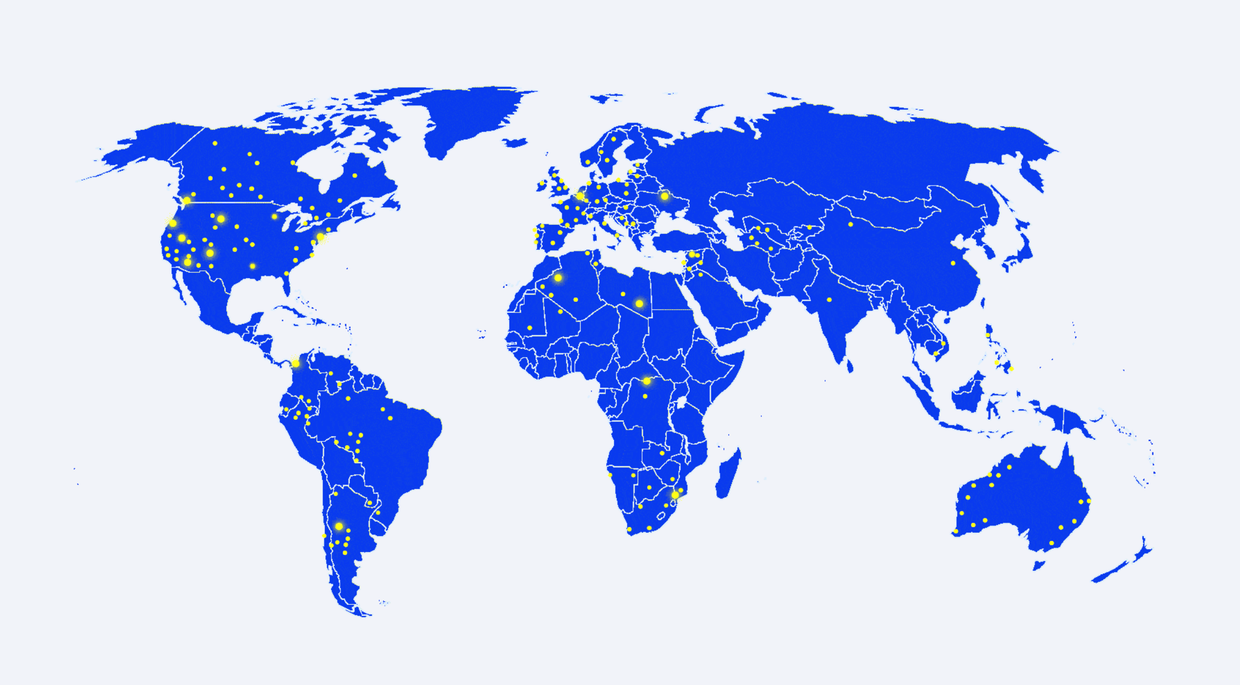
A map of The Kyiv Independent supporters from around the world. (The Kyiv Independent) “The journey to twenty thousand took us 3.5 years and thousands of hours of work by the most talented people I know. It’s a testament to our journalism and our mission to provide high-quality reporting from Ukraine to the world.” said Zakhar Protsiuk, COO of The Kyiv Independent. “These twenty thousand people are our secret power that allows us to do our work and grow.”
All of this is a powerful reminder of what a committed community can do, and how reader-funded journalism can thrive, even in the hardest conditions.
The team at the Kyiv Independent is incredibly grateful to everyone who joined, gifted a membership, or shared the campaign. This achievement belongs to all of them — and it shows what’s possible when journalism is powered by community.
For more information, please contact: news@kyivindependent.com
-
Facing manpower shortage, Ukrainian brigade turns to women in first-ever female recruitment drive
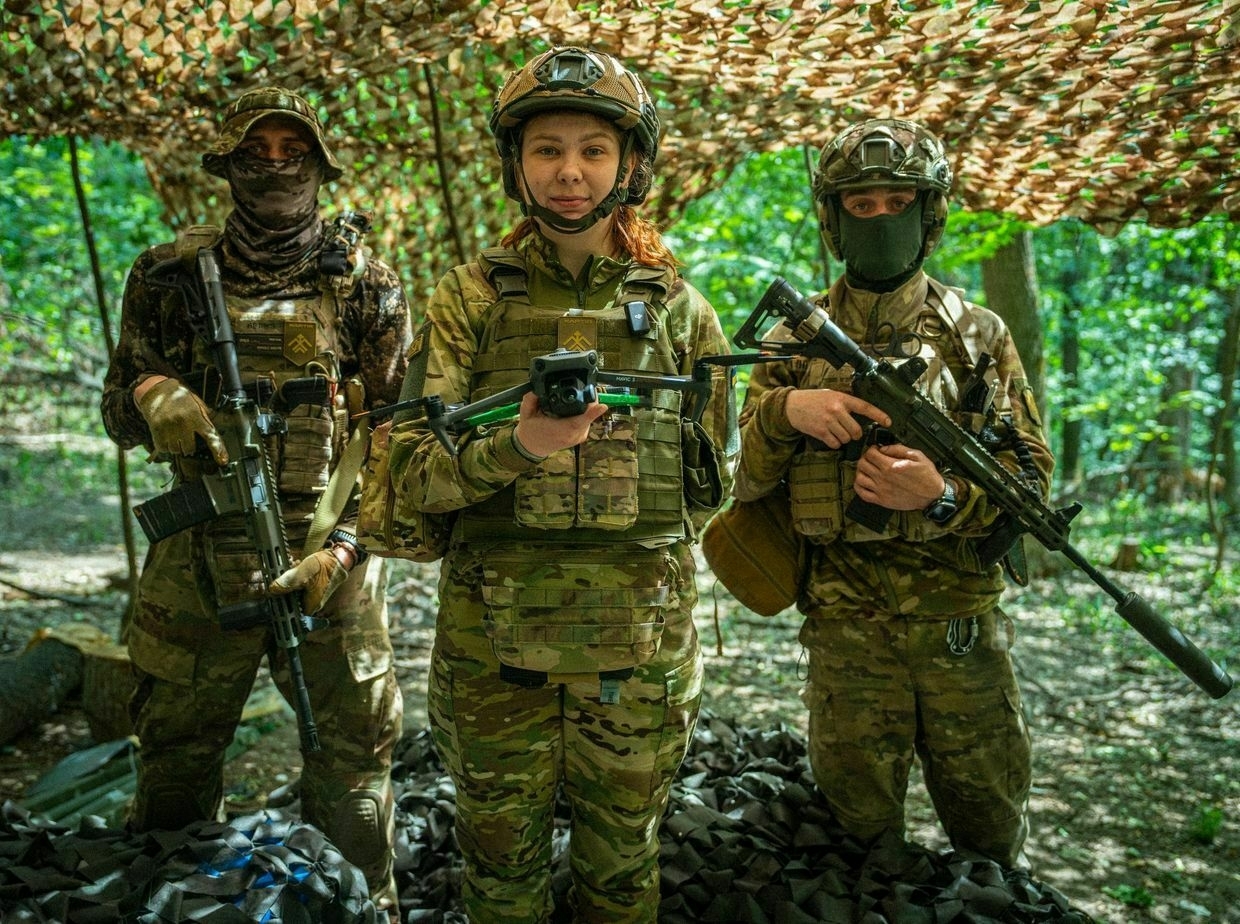
Editor’s note: This article originated as a winning story idea in a vote by members of the Kyiv Independent’s community. Join our community today and join our exclusive members-only Discord channel, where you can discuss and suggest stories, ask our journalists questions, and more.
“Her strength is her mind. Her choice is Khartiia.” That was the message — written in sleek neon green script — shared across all social media accounts of Ukraine’s 13th National Guard Khartiia Brigade this May.
The short tagline headed Ukraine’s first-ever military recruiting campaign targeting women, launched by the brigade to attract them to tech roles in the army.
Around 70,000 women are serving in Ukraine’s nearly million-strong military as of 2025, according to the Defense Ministry. But military service largely remains an unwelcoming environment for female soldiers, who face Soviet-rooted prejudice, limitations on education, career growth, and access to combat positions.
Some progressive units like Khartiia are working to change the situation, in particular by updating internal practices to better integrate women into units. With the new campaign, Khartiia says its hope is to show women they are welcome and can thrive in different positions.
As Ukraine continues to face critical shortages in manpower to fight Russia, the military needs all the help it can get in attracting new recruits.
Motivated and skilled recruitsAfter nearly 3.5 years of full-scale war, Ukraine’s military increasingly relies on mobilized, rather than volunteer, recruits, leading to units often receiving less motivated soldiers.
Since Ukraine doesn’t conscript women, female volunteers represent a highly motivated yet severely under-utilized category in the army, according to soldiers and activists.
“Motivated women are better at any job than unmotivated men,” said Alina Andreieva, a drone operator in a Khartiia’s reconnaissance unit and the key driver of the campaign.
Andreieva told the Kyiv Independent that she was “obsessed” with the idea of recruiting women since she joined the army about a year and a half ago while working as a photographer.
When in 2025, Khartiia collaborated with two non-profits, Dignitas Fund and the Dutch organization “Protect Ukraine,” to create the campaign, Andreieva and other female soldiers from Khartiia were closely involved in its development.
Another female soldier in Khartia, a 21 year old nurse by training who requested to be identified only by her callsign “Jess,” quickly became a pioneering operator of ground robotic systems within months of joining the brigade.
“I quickly learned basic things like soldering and assembling communication kits for our drones and figured out how the drones worked (and was then able to) propose new ideas — different flight controllers and what we could connect to them to make it informative,” she told the Kyiv Independent in a video interview.
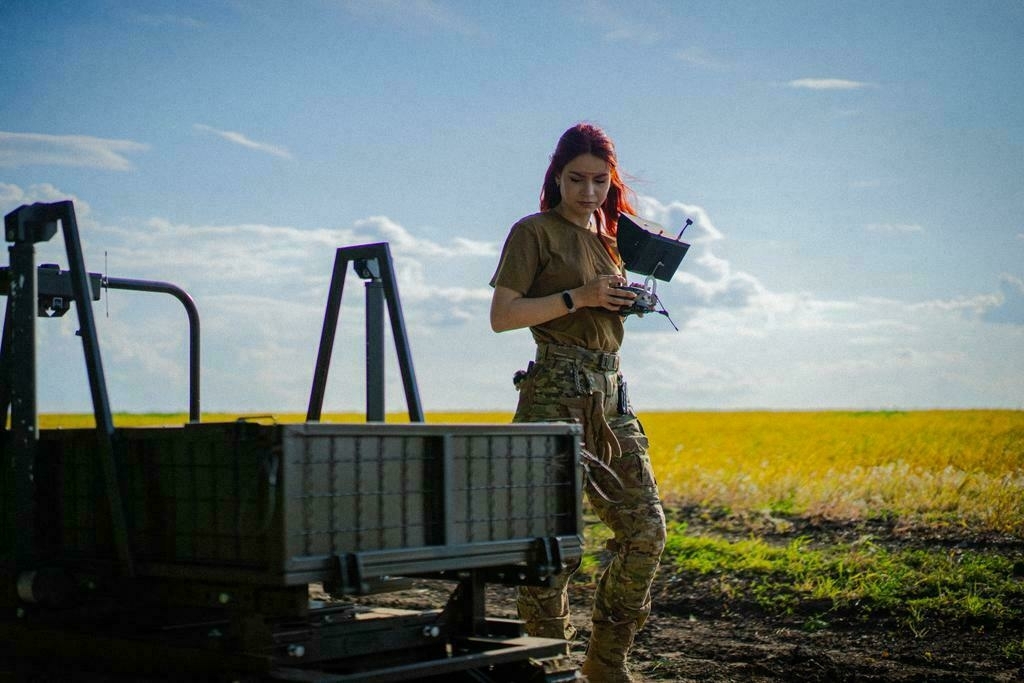
‘Jess’, an operator of Khartiia’s Unmanned Ground Vehicle, prepares for a mission in unspecified location, Ukraine on an unspecified date. (X/Khartiia Brigade) The tech jobs that Khartiia invites women to fill include drone and ground robotic systems operators, electronic warfare and intelligence specialists, and ISTAR (Intelligence, Surveillance, Target Acquisition, and Reconnaissance) dispatchers, involved in a NATO approach towards planning combat operations.
“We really need women in STEM,” said Sofiia Pryduvalova, 30, who does public relations for Khartiia and who co-developed the campaign. “There are many of them (in Ukraine), and they could make the brigade so much stronger.”
Progressive cultureKhartiia, well-known for its incorporation of technology and NATO standards into its workflow, became a flagship of the military corp reform together with the 12th Special Forces Azov Brigade in 2025.
Since its formation in 2022, Khartia has stood out in Ukraine’s post-Soviet military, with its progressive management style cultivating a more welcoming atmosphere for women.
Pryduvalova shared her and her friends' disheartening recruitment experiences, saying that some of them abandoned their plans to join certain units as a result.
“There are brigades that consciously discourage women from joining them, explicitly saying so,” Pryduvalova said.
“The time is ripe for women who want to take matters into their own hands.”
All the women from Khartiia interviewed for this story said they feel safe in the brigade, citing its top-down efforts to modernize and treat every soldier fairly, regardless of gender. Women of the brigade say they also frequently collaborate to advocate for further changes.
"I saw that an unbiased attitude towards women was fostered in recruits even during training," "Jess" said about one of her training courses with the brigade.
"Khartiia was the only brigade at the time (when I was enlisting in 2023) that considered women for a combat role," Andreieva said. As of 2025, around 5,500 women are serving in the Ukrainian army in front-line combat roles, compared to under 5,000 in 2023, according to official data.
"The commanders always treated women equally. The priority was not gender, but how you handled the job," Andreieva added.
Campaign resultsThe results of the campaign, launched in May, aren't expected until this fall, according to Khartiia’s press officer, Volodymyr Dehtiarov.
Accounting for the initial interviews, medical commission, and at least two basic training courses provided by the National Guard and additionally by Khartiia, it can take at least three months for a non-specialized recruit to join their unit’s daily tasks.
"The results so far are not in quantity, but quality," Dehtiarov told the Kyiv Independent. Before, women who applied rarely listed specific positions they were interested in, while now, more apply for “communications” or “UAV," thanks to the campaign videos where women of Khartiia talk about their respective jobs, he said.
Dehtiarov explained that Dignitas Fund, the non-profit sponsoring the campaign, also found donors to cover the training for dozens of female recruits.
"But we need to fill hundreds of positions (in the Khartiia Brigade), and thousands in the corps (led by the Khartiia brigade commander)," he added, referencing both male and female recruits.
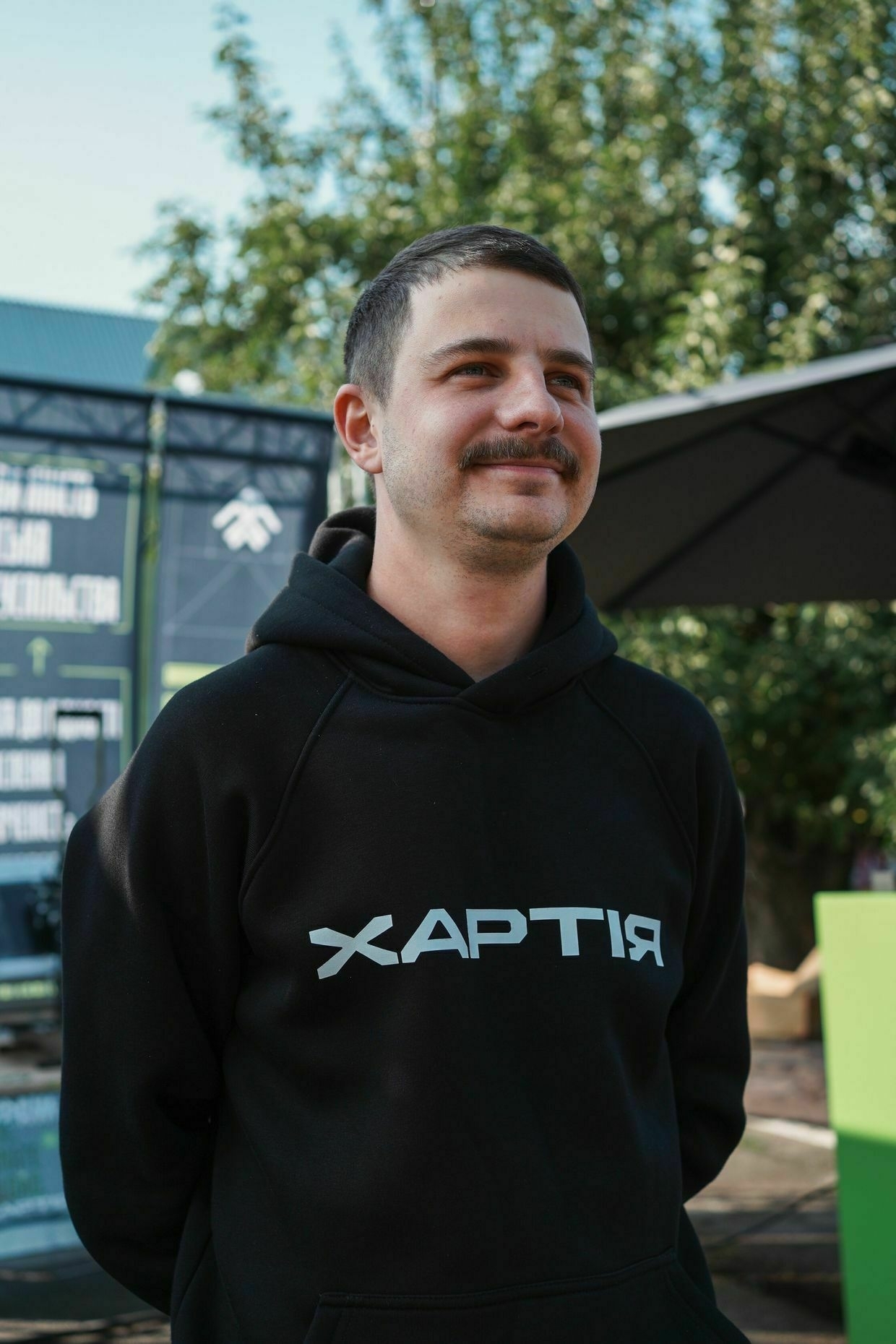
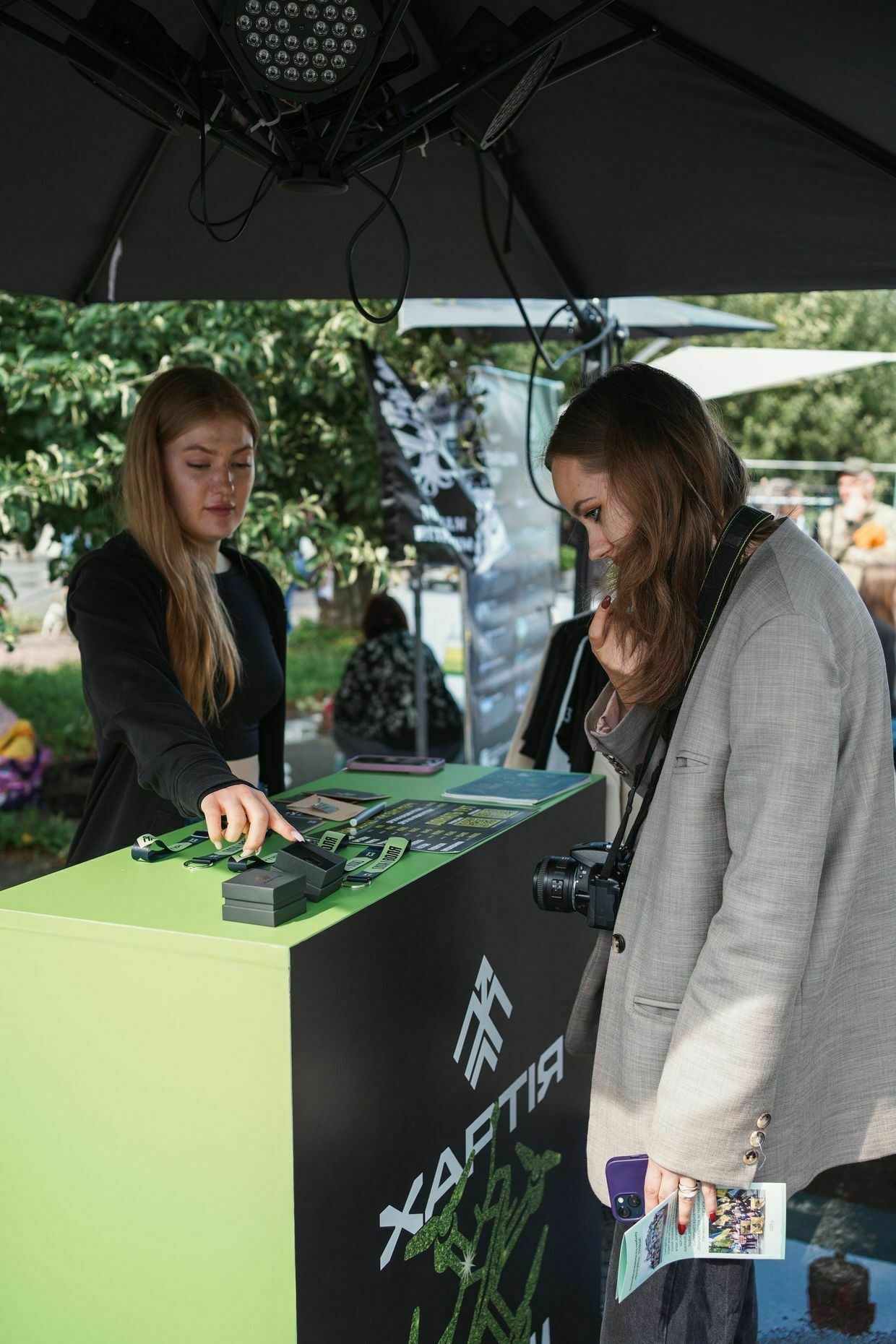
L: Khartiia serviceman Volodymyr Skoryk next to the Khartiia stand at Kurazh Bazar in Kyiv, Ukraine, on June 14, 2025. (Elena Kalinichenko/The Kyiv Independent) R: A woman stands near the Khartiia stand at Kurazh Bazar in Kyiv, Ukraine, on June 14, 2025. (Elena Kalinichenko/The Kyiv Independent) The future of women in Ukraine's armyAs female soldiers become more visible in the media, some people are concerned that it’s a step towards compulsory mobilization for women, said Kateryna Pryimak, a leader of the Ukrainian NGO Veteranka Movement which advocates for women in the army.
"It's untrue — our country is hardly ready to mobilize women forcibly," Pryimak added.
And Khartiia’s officers expect the percentage of women in the army to grow even without female conscription.
"There will be a lot of girls in the UAV (unmanned aerial vehicles) segment because (rather than physical strength,) it favors intellect, intuition, and tech skills," said Ihor Raikov, a UAV platoon commander in Khartiia’s anti-tank guided missile company, adding that he expects the number of female volunteers to increase.
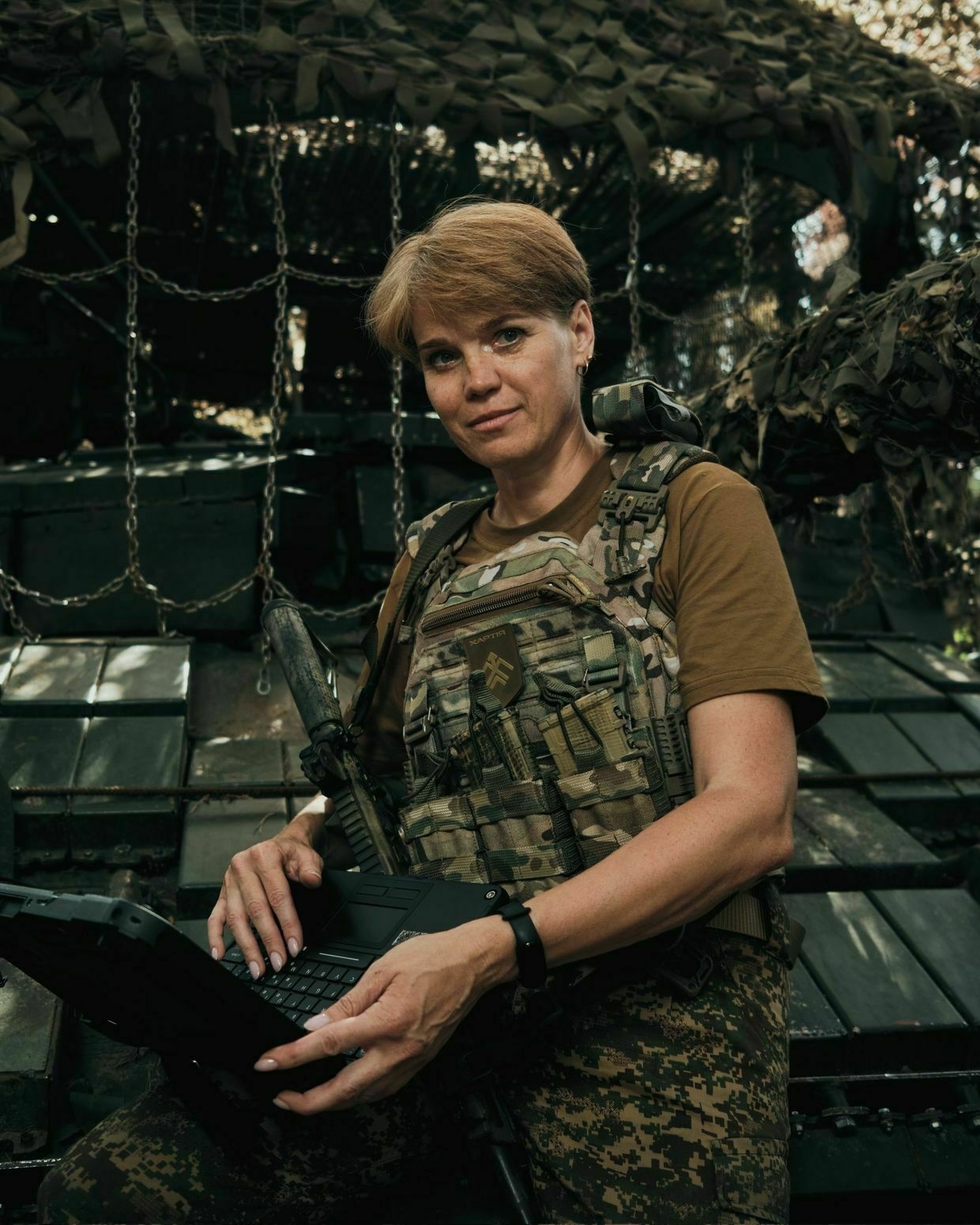
Vitalina, a soldier of Khartiia Brigade, restores communications inside a tank in an unspecified location, Ukraine, on an unspecified date. (X/Khartiia Brigade) Future female instructors, highly experienced with modern warfare, might also revolutionize military universities, where women face barriers in military education that directly affect career advancement, according to Pryimak.
"The time is ripe for women who want to take matters into their own hands," Andreieva told the Kyiv Independent in a written comment she sent from her front-line position in Kharkiv Oblast.
"Their husbands are either at war or dead; their homes have been destroyed, their loved ones killed or captured; they have seen too much to sit back idly," Andreieva said.
Note from the author:
Hello, this is Natalia Yermak. I wrote this story for you, which was selected by our members through voting on Discord. All the Kyiv Independent members are welcome to join our Discord community and help choose between several options for the story from Ukraine that you are most interested in.
If you’d like to vote on what we should cover in the future and support our work, please consider becoming our member.Women account for 21% of applicants at Ukraine’s army recruitment centersSince the army recruitment centers began operation, 42,366 Ukrainians have applied, with the highest number of female candidates coming from western Chernivtsi, Khmelnytskyi, and Ternopil oblasts.The Kyiv IndependentTim Zadorozhnyy
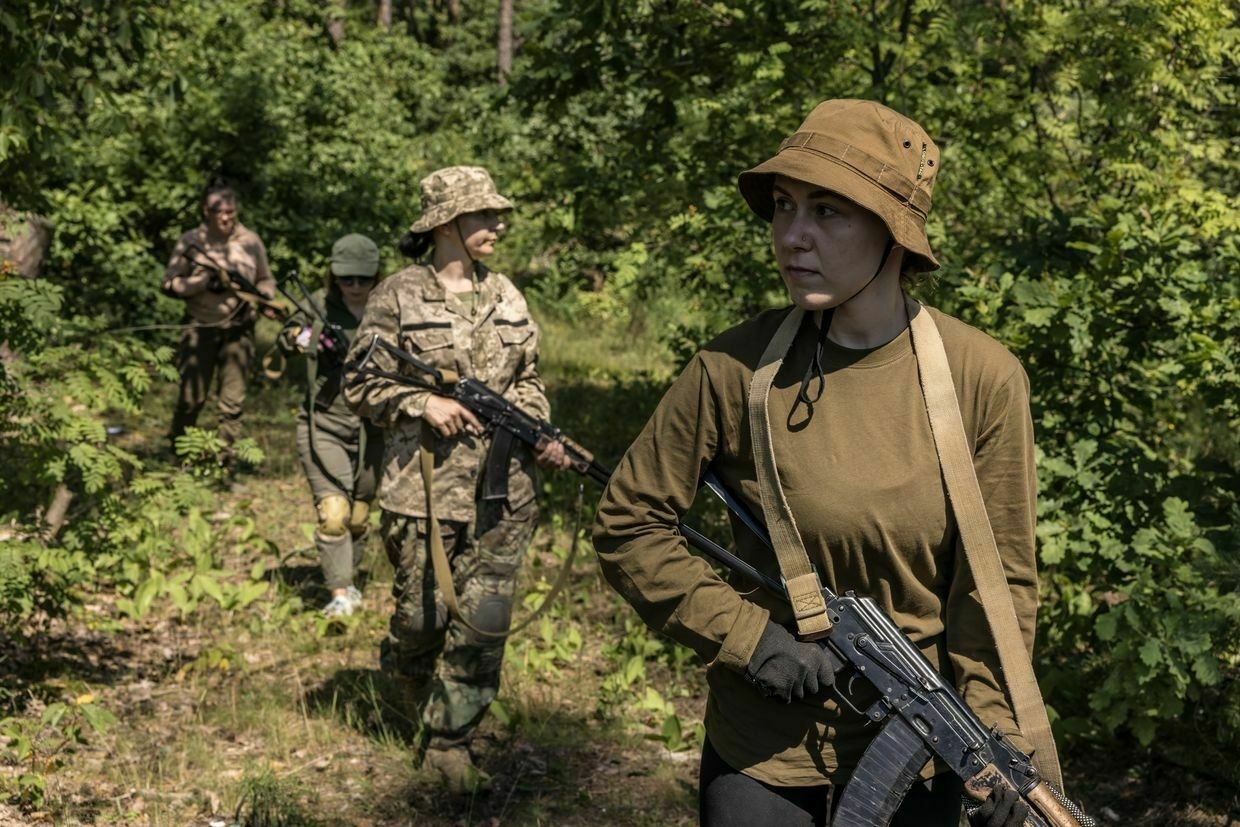
-
Ukraine, Russia conduct new POW swap under Istanbul deal
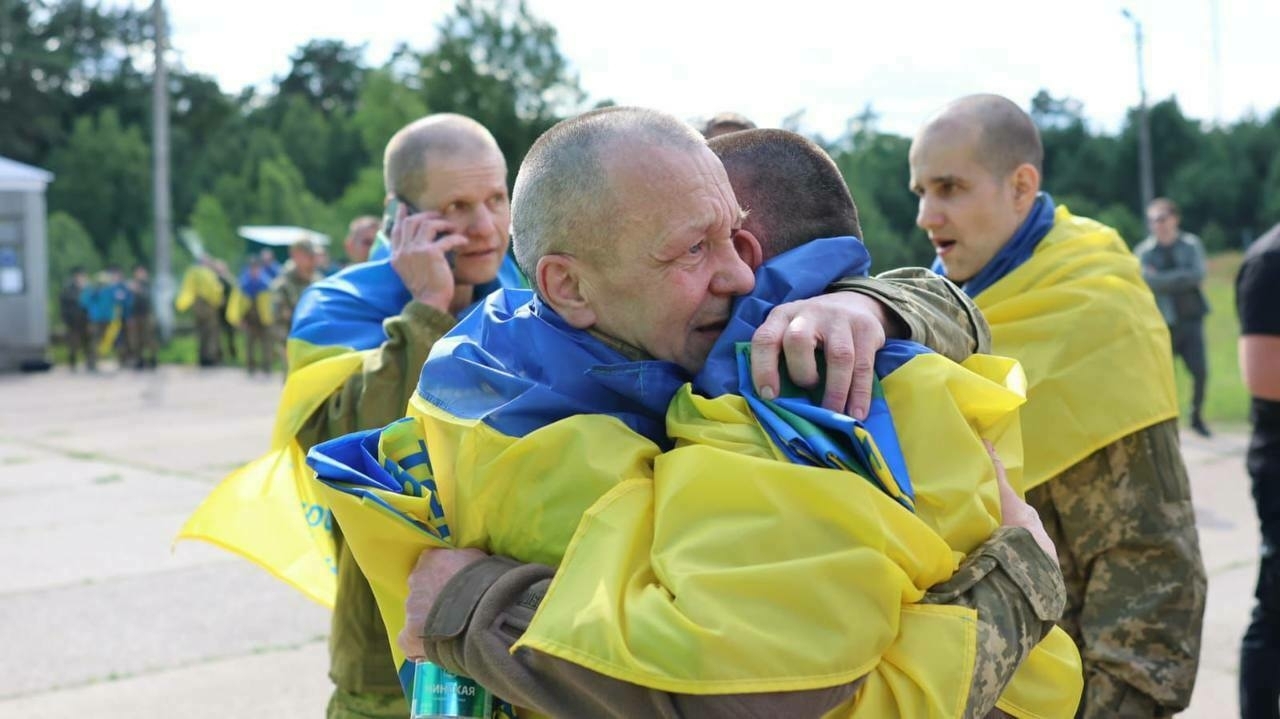
Ukraine has brought home a group of soldiers released from Russian captivity, President Volodymyr Zelensky said on June 26, marking yet another in a recent series of exchanges with Moscow.
“Today, soldiers of the Armed Forces, the National Guard, and the State Border Guard Service are returning home,” Zelensky said without revealing their numbers.
The exchange follows five similar swaps carried out in recent weeks in accordance with agreements reached between Kyiv and Moscow at the second round of peace talks in Istanbul on June 2.
As in the other recent swaps, the latest one focused on severely ill and wounded POWs and also included a group of young soldiers under the age of 25, the Coordination Headquarters for the Treatment of Prisoners of War (POWs) said.
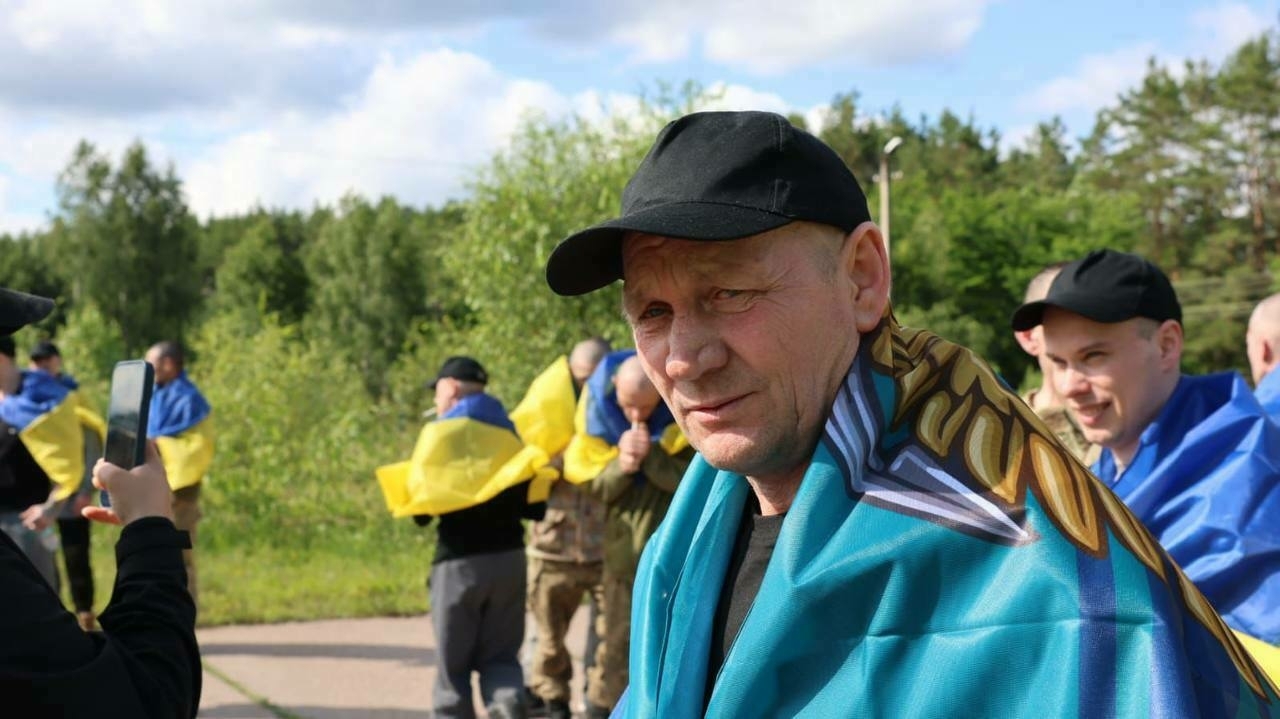
A Ukrainian soldier pictured after being released from Russian captivity on June 26, 2025. (President Volodymyr Zelensky/Telegram) 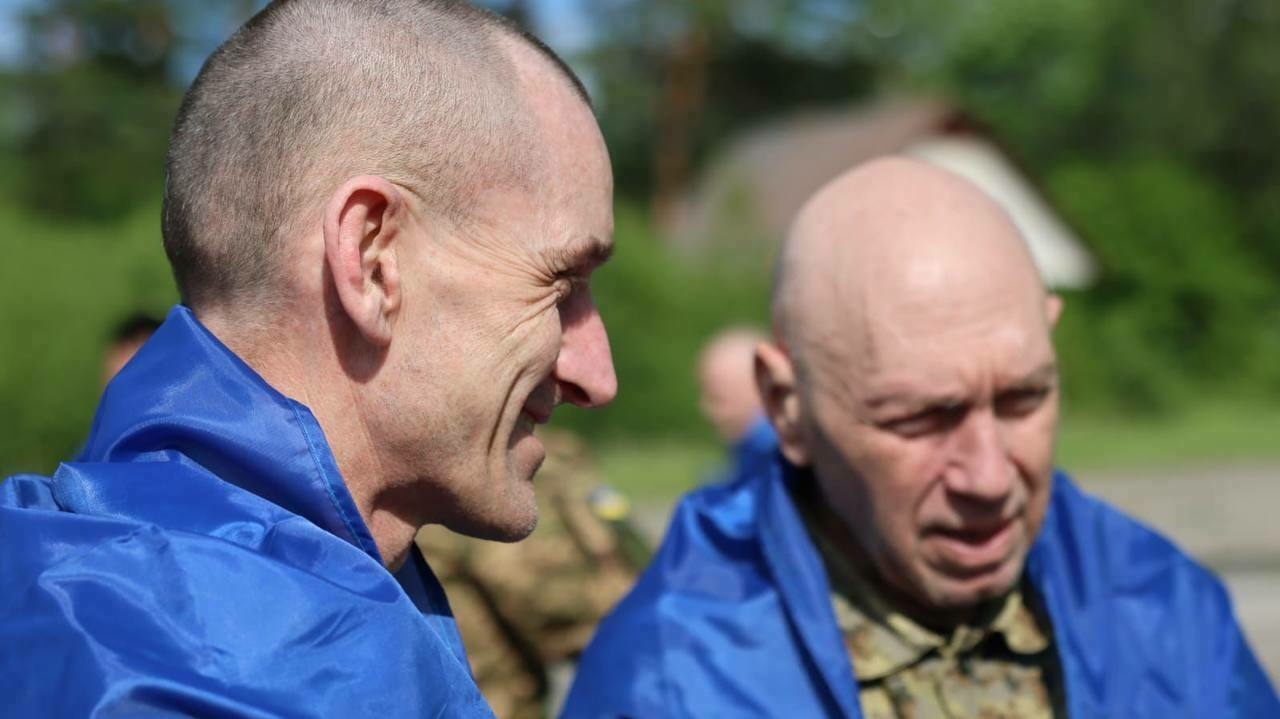
Ukrainian soldiers pictured after being released from Russian captivity on June 26, 2025. (President Volodymyr Zelensky/Telegram) 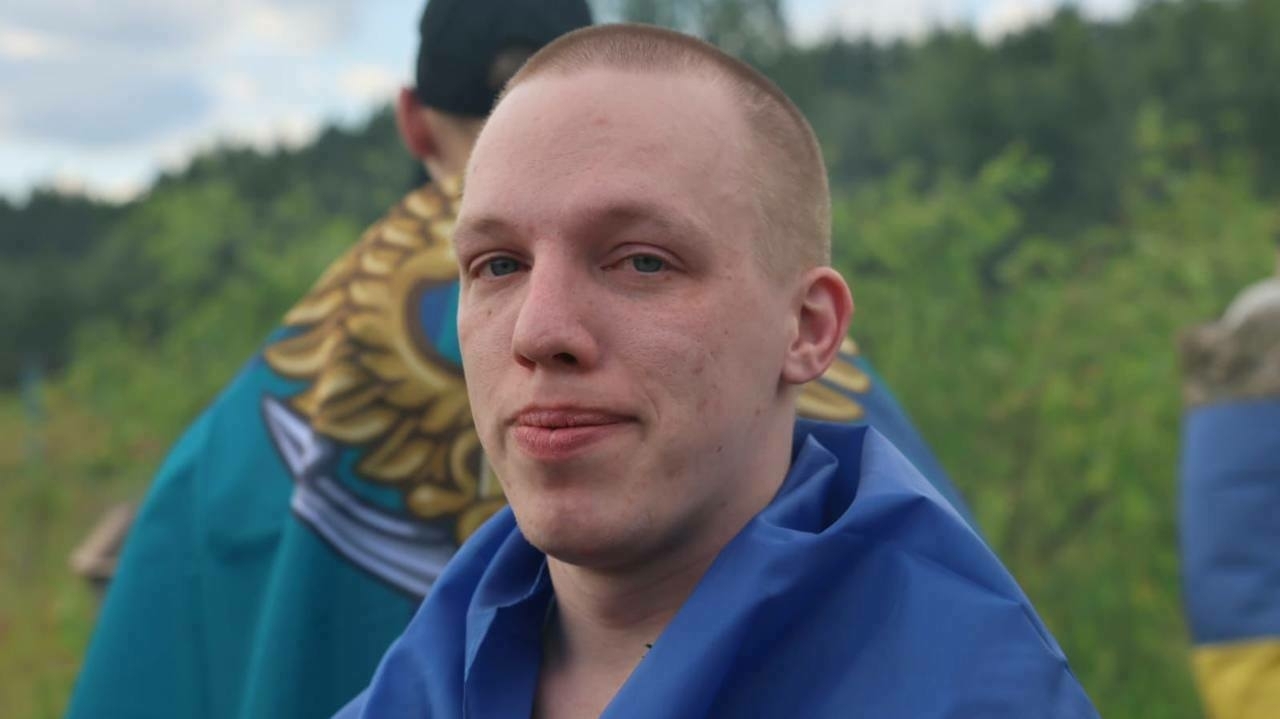
A Ukrainian soldier pictured after being released from Russian captivity on June 26, 2025. (President Volodymyr Zelensky/Telegram) Most of those released had been in Russian captivity since 2022, with the youngest being a 24-year-old soldier taken prisoner during the battle for Mariupol. The oldest of the freed captives was 62.
The released soldiers fought elsewhere in Donetsk, Luhansk, Kherson, Kharkiv, Sumy, and Kyiv oblasts. Among those freed are several officers, according to the headquarters.
“We are doing everything possible to find each person and verify information about every name,” Zelensky said. “We must bring all our people home."
Russia’s Defense Ministry also announced a prisoner exchange with the Ukrainian side, without specifying the number of soldiers involved.
While no political breakthrough was achieved, both sides agreed to a phased exchange of prisoners and the repatriation of fallen soldiers' bodies. As part of that agreement, Russia pledged to return the bodies of up to 6,000 Ukrainian service members and citizens.
Moscow has handed over 6,057 bodies to Ukraine in several stages over the past few days. President Volodymyr Zelensky later said Ukrainian authorities have confirmed that at least 20 of the bodies Russia returned as Ukrainian were actually Russian soldiers.
According to Zelensky, Moscow is using this tactic as a tool for manipulation to obscure the scale of its military losses from the public.
The June 2 agreements came after the largest-ever POW swap in late May, when 1,000 prisoners were exchanged on each side.
Ukraine repeatedly called for a prisoner exchange in an all-for-all format, but Russia continues to reject the offer.
Explained: How Ukraine negotiates prisoner of war swaps with RussiaEven after Ukraine cut diplomatic ties with Russia in 2022, prisoner exchanges have continued as one of the few remaining channels of communication between the two countries. Negotiated behind closed doors and carried out irregularly, POW swaps — and the decisions surrounding them — have long been shrouded in secrecy. Controversies haveThe Kyiv IndependentDaria Shulzhenko
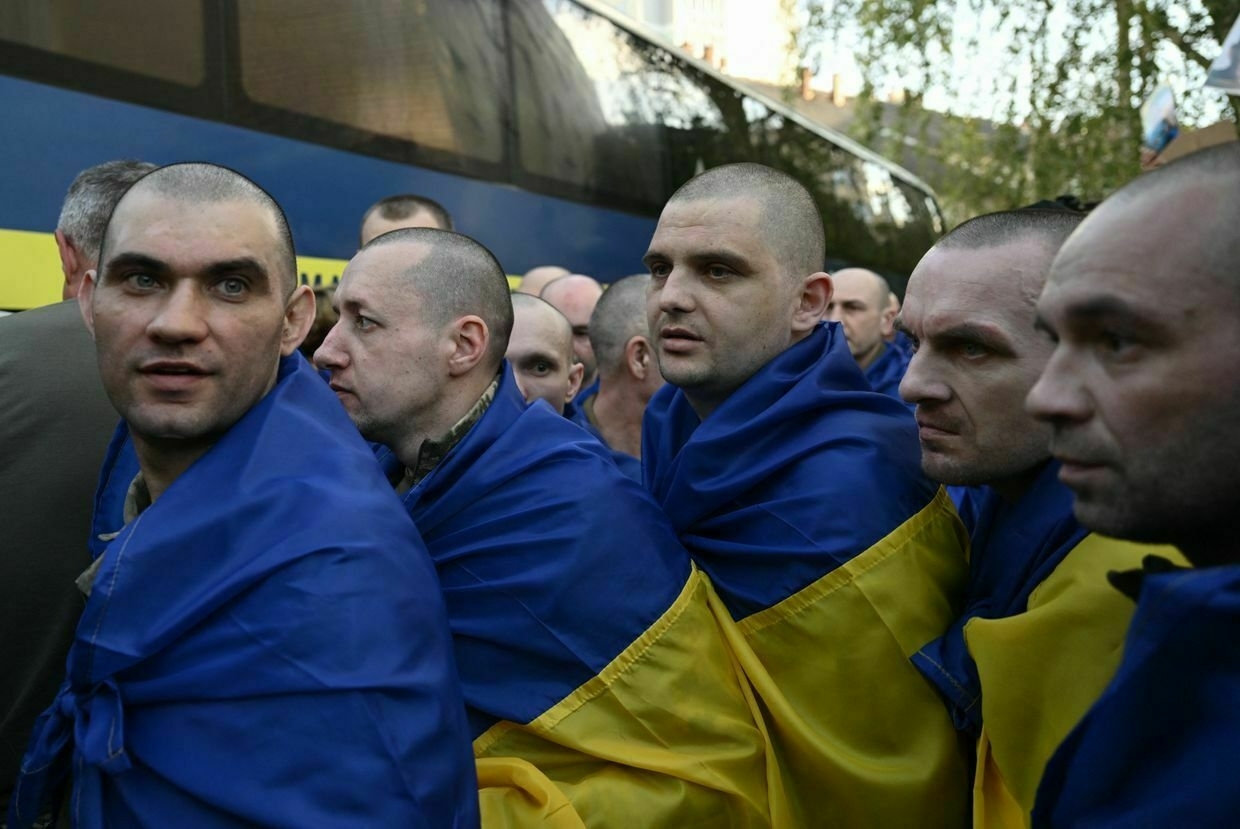
-
Erdogan says Trump ready to join Zelensky-Putin talks in Turkey
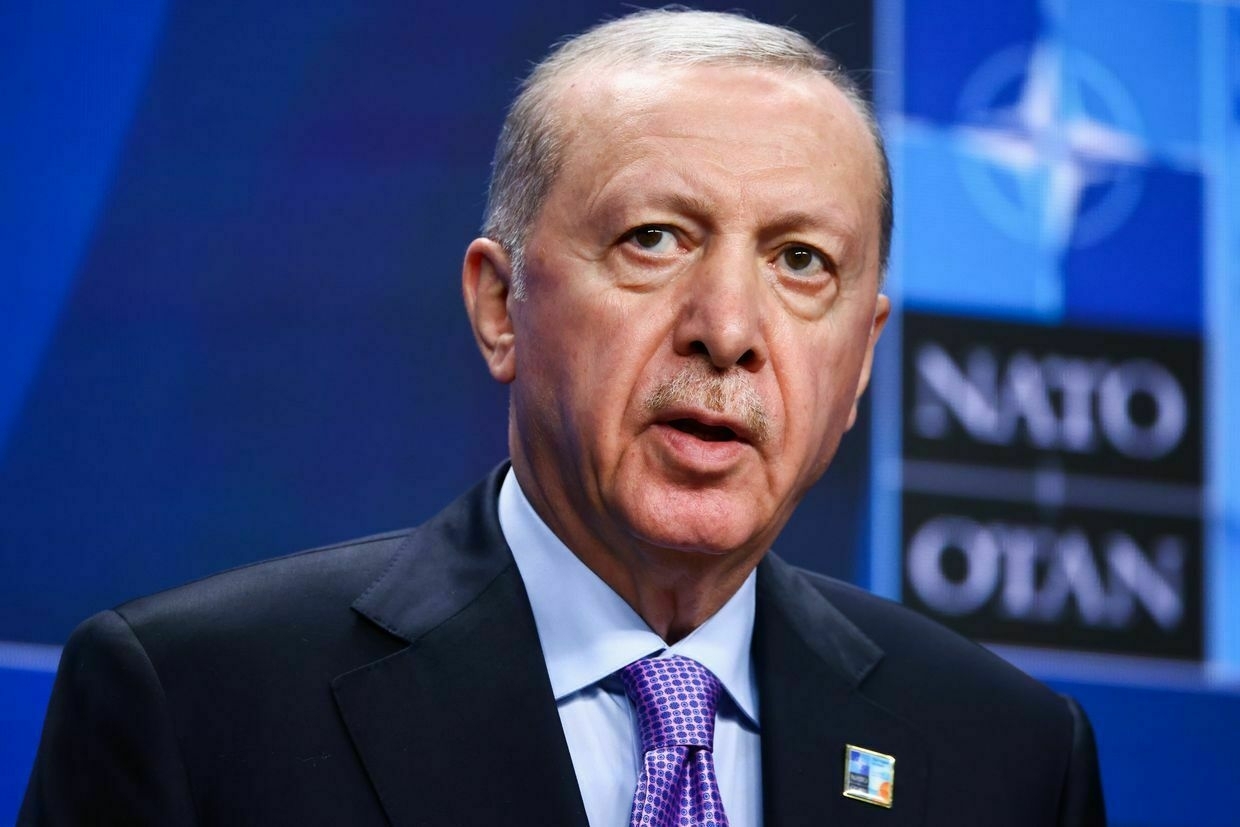
Turkish President Recep Tayyip Erdogan said Ankara is working to organize a meeting between President Volodymyr Zelensky and Russian President Vladimir Putin, with U.S. President Donald Trump potentially joining the talks, Reuters reported.
Speaking after his meeting with Trump, Erdogan said on June 26 that the U.S. president expressed interest in participating if the meeting were to take place in Turkey.
“He said,‘If Russian President Vladimir Putin comes to Istanbul or Ankara for a solution, then I will also come,'” Erdogan told reporters. “We will hold the necessary contacts and, God willing, realize this meeting as soon as possible."
Zelensky and Trump met during the NATO summit on June 25, where the two leaders discussed battlefield developments, Kyiv’s need for additional air defense systems, and the potential for co-production of drones.
Zelensky has previously voiced openness to a trilateral meeting. On May 27, he told public broadcaster Suspilne that he was ready to sit down with both Trump and Putin.
Putin has claimed he is also willing to meet, but did not attend previous talks proposed in Istanbul, opting instead to send lower-level delegates to peace discussions held on May 16.
The Kremlin has long sought to portray Zelensky as “illegitimate”, with spokesperson Dmitry Peskov in February claiming that any talks must consider “legal aspects” of his mandate.
Turkey previously hosted direct peace talks in March 2022 and has remained one of the few countries with open lines to both Kyiv and Moscow. The latest round of direct talks on June 2 was held in Istanbul.
Trump gets king’s treatment at NATO summit while Ukraine sits on the sidelinesTHE HAGUE, Netherlands — As NATO leaders convened in The Hague for a two-day summit on June 24–25, allies and Kyiv braced for the first annual meeting since U.S. President Donald Trump’s return to office. With the Israel-Iranian conflict dominating the news and the summit agenda focused onThe Kyiv IndependentMartin Fornusek
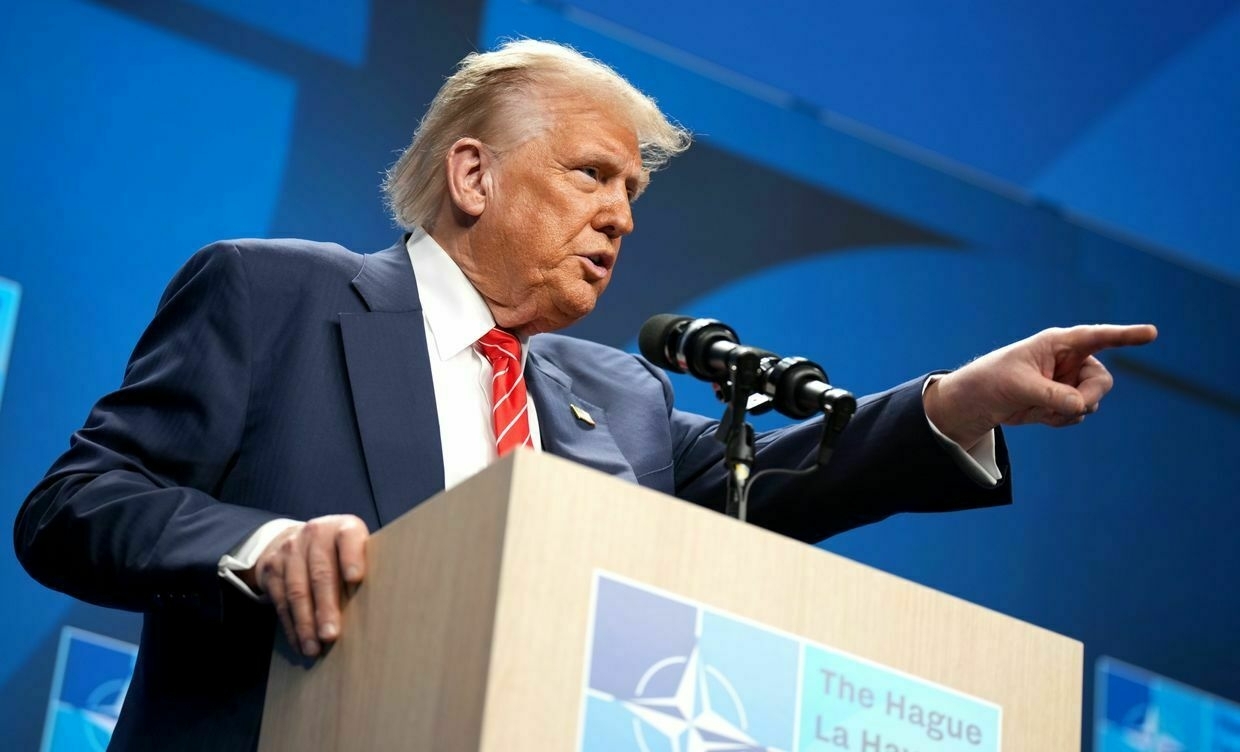
-
North Korea likely to send more troops to Russia by August, South Korea says
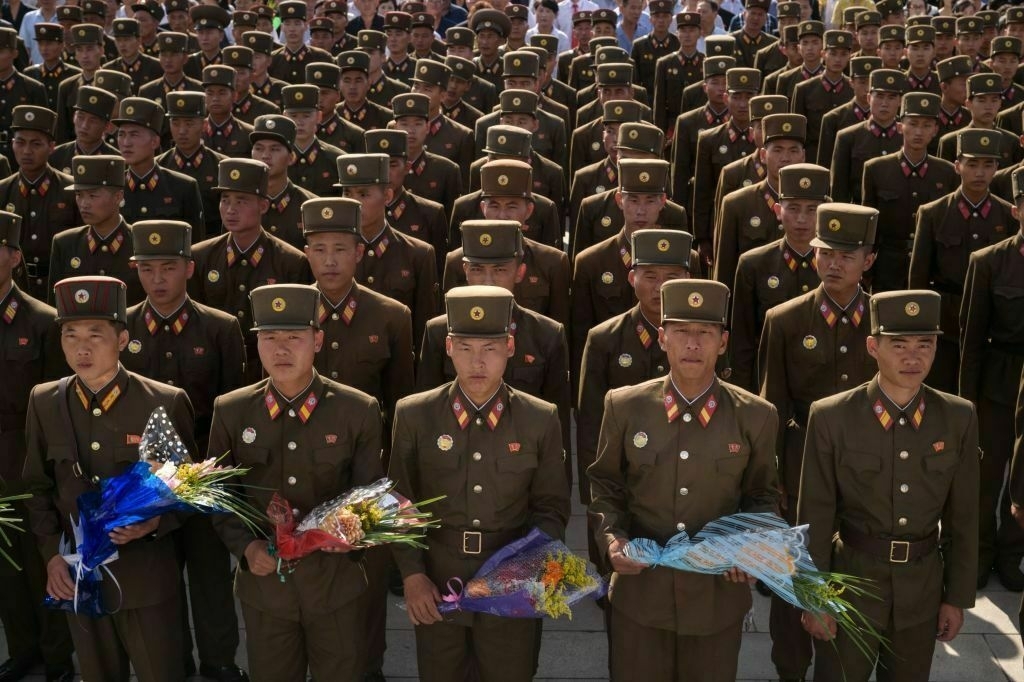
North Korea is likely to send more troops to Russia as early as July or August to bolster Moscow’s war effort against Ukraine, South Korea’s National Intelligence Service (NIS) said during a closed-door briefing, Yonhap reported on June 26.
According to lawmakers briefed by the NIS, Pyongyang has already begun recruiting soldiers for deployment to Russia. The latest intelligence adds to growing concerns about the expanding scope of North Korea’s involvement in Russia’s war.
The additional troop deployment would come on top of what Seoul estimates is already substantial support from North Korea, including the transfer of over 10 million artillery shells, and ballistic missiles in exchange for economic and technical assistance.
Yonhap’s reporting follows recent findings that Pyongyang may send up to 25,000 laborers to Russia to support drone production, specifically Shahed-type loitering munitions, at the Alabuga Special Economic Zone in Tatarstan, according to Japan’s NHK broadcaster.
In return, Pyongyang reportedly seeks training in drone operations, signaling an effort to integrate advanced unmanned aerial capabilities into its own military arsenal.
Putin insists the Russian economy is fine, but Kremlin officials say otherwiseIn a rare public sign that all is not well in Russia, two high-ranking Moscow officials last week issued separate warnings about the state of the country’s economy. Russian Central Bank Governor Elvira Nabiullina and Economy Minister Maxim Reshetnikov both highlighted that amid the Kremlin’s full-scale war against Ukraine, the tools Moscow once relied on to maintain wartime growth are nearly exhausted. Almost immediately, Russian President Vladimir Putin on June 20 dismissed the concerns, clai The Kyiv IndependentTim Zadorozhnyy
The Kyiv IndependentTim Zadorozhnyy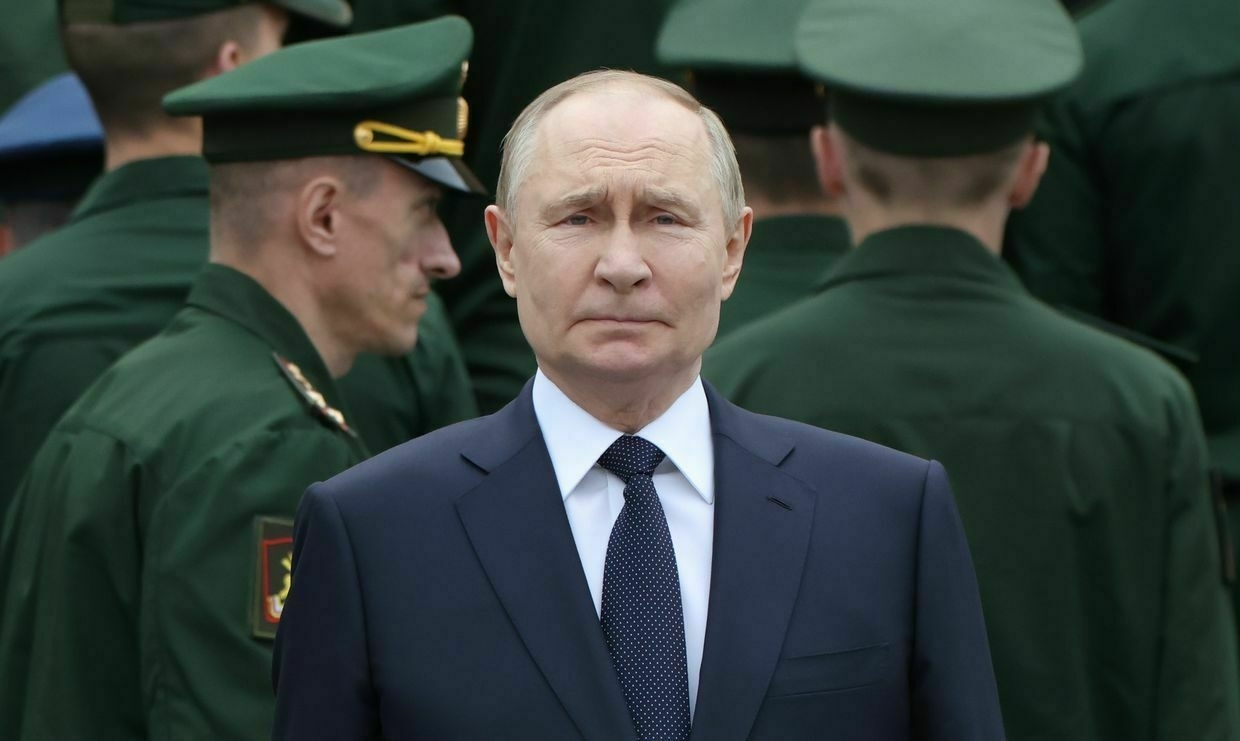
The developments come amid intensifying diplomatic exchanges between the two authoritarian regimes. Russian Security Council Secretary Sergei Shoigu traveled to North Korea on June 17 under a special directive from President Vladimir Putin.
After meeting North Korean leader Kim Jong Un, Shoigu announced that Pyongyang had agreed to dispatch 1,000 sappers and 5,000 military engineers to Russia’s Kursk Oblast.
North Korean combat units have already participated in front-line operations. Thousands of troops helped Russia repel a Ukrainian cross-border offensive into Kursk Oblast that began in August 2024.
Ukraine briefly held 1,300 square kilometers in the region before losing most of the territory during Russia’s March 2025 counteroffensive, which was supported by Pyongyang. The U.K. defense intelligence estimates place North Korean casualties at over 6,000.
Kyrylo Budanov, Ukraine’s military intelligence chief, said on June 9 that Russia and North Korea had agreed to begin domestic production of Shahed-136 drones on North Korean territory, further solidifying their military partnership.
During Russia’s May 9 Victory Day Parade in Moscow, President Putin personally greeted North Korean troops in Red Square, underscoring the alliance’s symbolic and operational depth.
Kim did not attend but remains one of the Kremlin’s staunchest foreign backers.
Russia reportedly helping North Korea build warships, but questions over seaworthiness remain after failed launchSatellite imagery and launch footage suggest a clear Russian design influence. The Kyiv IndependentTim Zadorozhnyy
The Kyiv IndependentTim Zadorozhnyy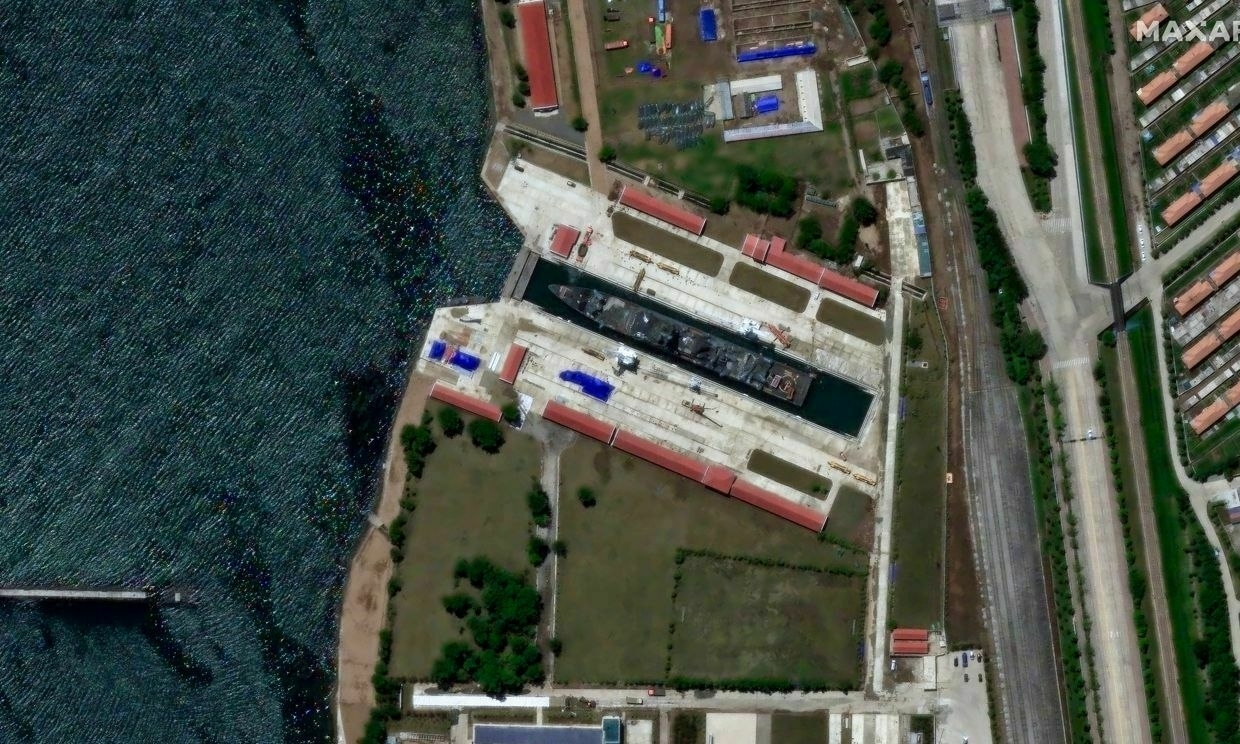
-
'50,000 Russian troops pinned down' — Ukraine halts advance in Sumy Oblast, summer offensive 'faltering,' Syrskyi says
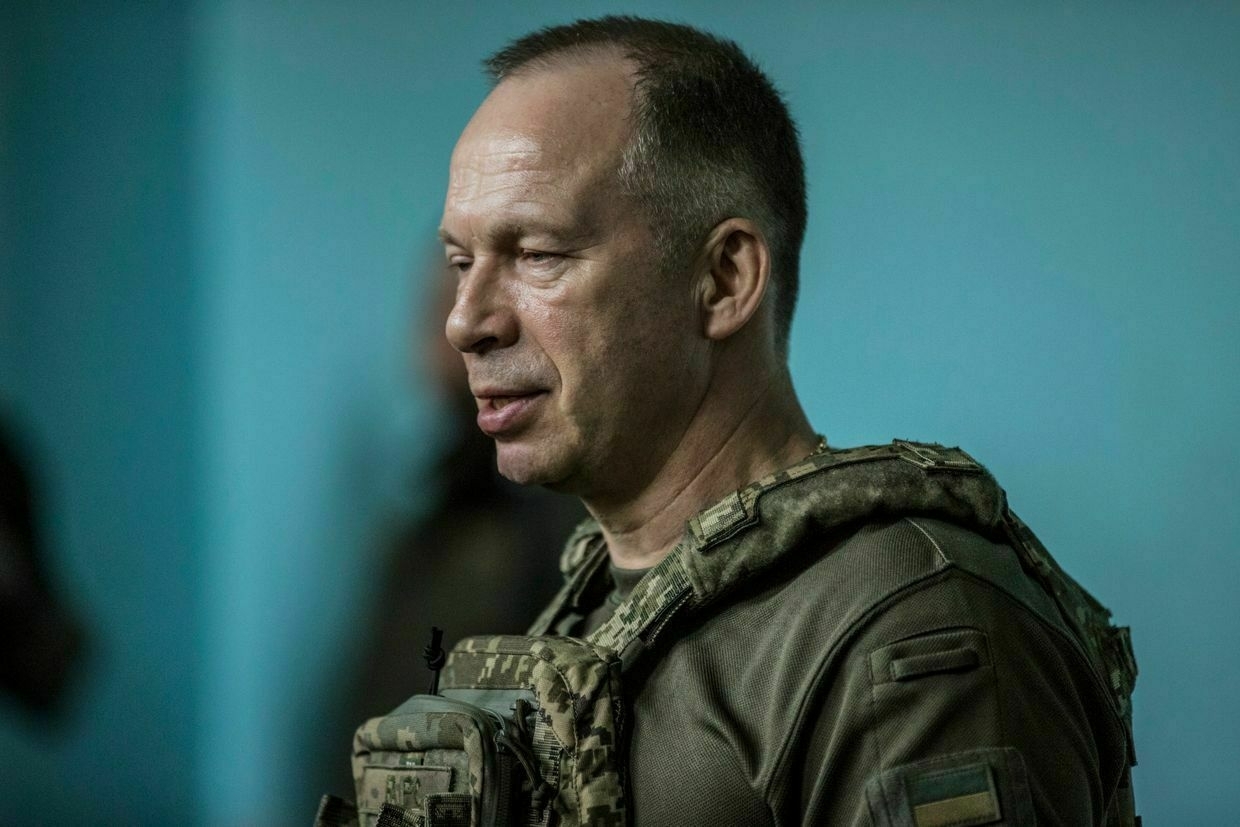
Ukraine has halted Russia’s advance in Sumy Oblast, stabilizing the front line and blunting the momentum of Moscow’s summer offensive, Commander-in-Chief Oleksandr Syrskyi said on June 26.
“Based on the results of May and June, we can say that this year’s wave of the enemy’s summer offensive from Russian territory is faltering,” Syrskyi said, reporting that Russian troops in the northeastern border region had been stopped.
Moscow launched its new summer campaign in May, aiming to push deeper into Ukraine’s northeast and eastern regions, disregarding Kyiv’s calls for an unconditional ceasefire.
Russian forces had made modest gains, occupying around 449 square kilometers (173 square miles) in May, the highest monthly total in 2025, according to the open-source intelligence group DeepState.
In Sumy Oblast, however, the line of contact has stabilized. Syrskyi said Ukrainian troops are not only defending but also reclaiming ground using active defense tactics.
“In certain areas, our units are liberating Ukrainian territory,” he said.
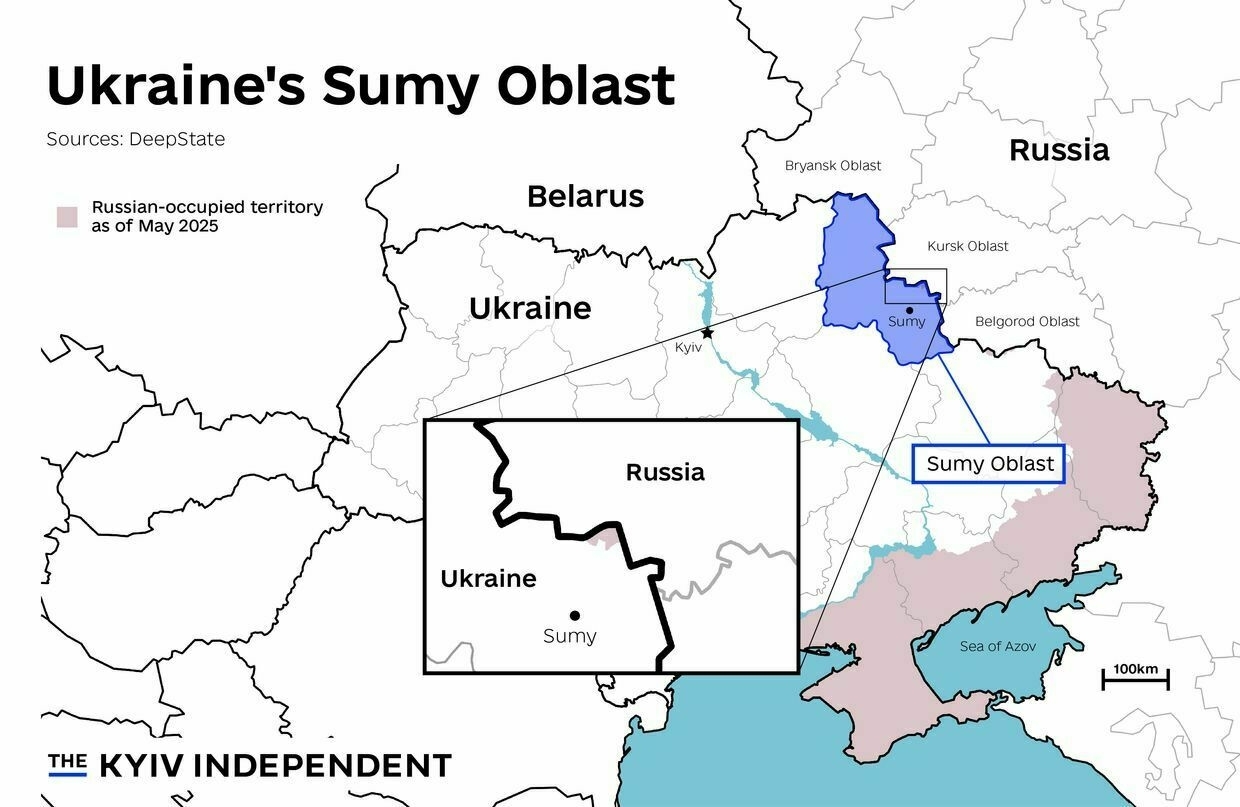
A map of Ukraine’s Sumy Oblast (Nizar al-Rifal/The Kyiv Independent) Syrskyi said Ukrainian operations in Russia’s Glushkovsky district had forced Moscow to shift elite units, including Airborne Forces and Marine Corps brigades, into defensive positions, undermining their offensive capabilities in Sumy.
“In the North Slobozhansky and Kursk directions, we have once again pinned down about 50,000 Russian Armed Forces personnel,” Syrskyi said. He provided no further details about how Ukraine had achieved this.
Ukraine launched a cross-border offensive into Russia’s Kursk Oblast in August 2024, initially capturing 1,300 square kilometers before losing most of that territory in a Russian counterattack earlier this year.
Russian officials declared complete control over the region on April 26, though the claim was later disputed by Kyiv and contradicted by Russia’s own local authorities.
Russia’s broader offensive aims to seize the remaining administrative borders of Donetsk and Luhansk oblasts and carve out a buffer zone along the Sumy and Kharkiv frontiers.
Sumy Oblast, which borders Russia to the east, remains a strategic region. Since the beginning of the full-scale invasion, it has faced near-daily attacks.
Putin insists the Russian economy is fine, but Kremlin officials say otherwiseIn a rare public sign that all is not well in Russia, two high-ranking Moscow officials last week issued separate warnings about the state of the country’s economy. Russian Central Bank Governor Elvira Nabiullina and Economy Minister Maxim Reshetnikov both highlighted that amid the Kremlin’s full-scale war against Ukraine, the tools Moscow once relied on to maintain wartime growth are nearly exhausted. Almost immediately, Russian President Vladimir Putin on June 20 dismissed the concerns, clai The Kyiv IndependentTim Zadorozhnyy
The Kyiv IndependentTim Zadorozhnyy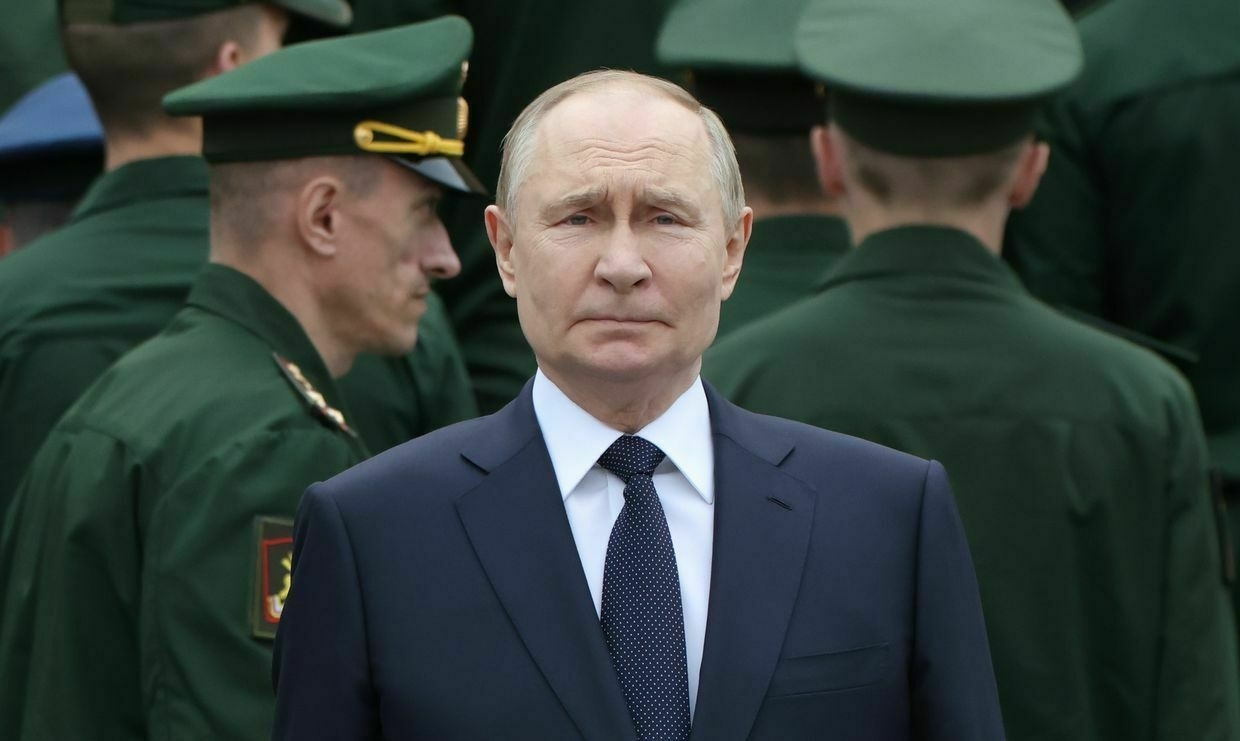
-
Trump gets king’s treatment at NATO summit while Ukraine sits on the sidelines
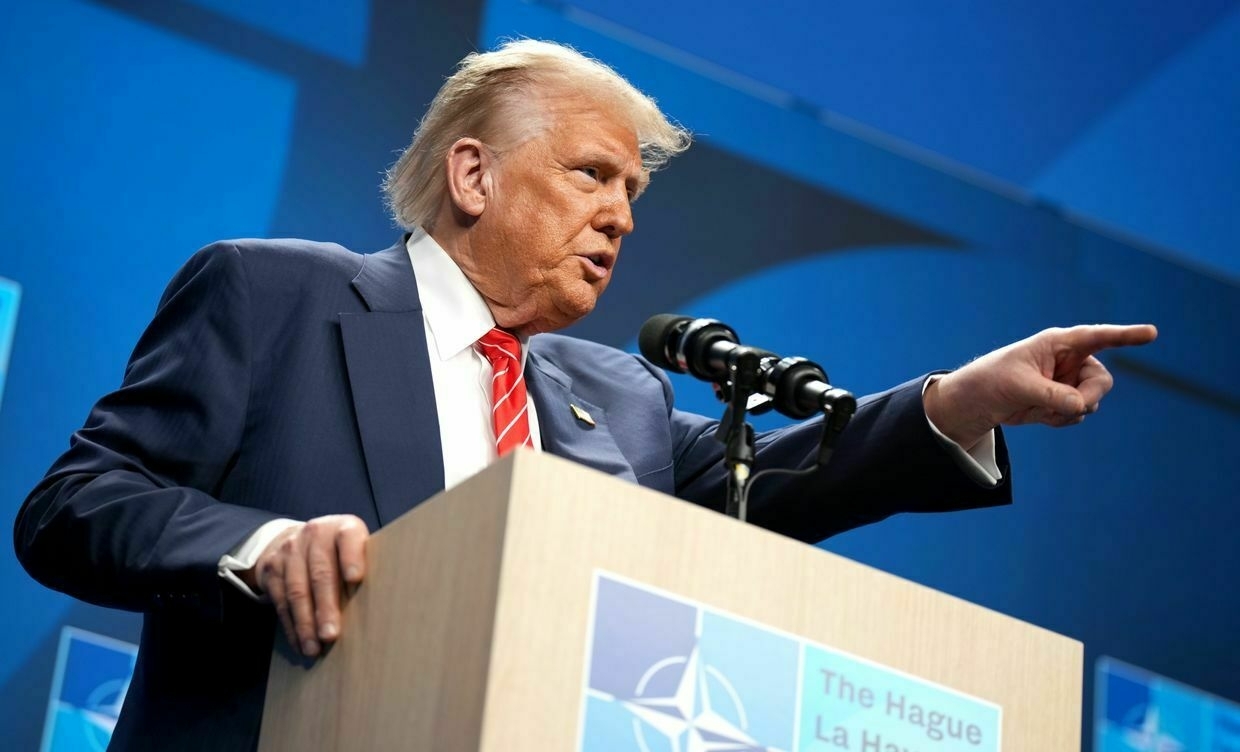
THE HAGUE, Netherlands — As NATO leaders convened in The Hague for a two-day summit on June 24–25, allies and Kyiv braced for the first annual meeting since U.S. President Donald Trump’s return to office.
With the Israel-Iranian conflict dominating the news and the summit agenda focused on the new 5% defense spending target, Ukraine no longer took center stage.
This was chiefly because of one man: Trump has shown little appetite for ramping up military assistance for Ukraine, and there are growing fears he might disengage from the war altogether.
He has also ruffled the feathers of his NATO allies by publicly doubting the U.S. commitment to Article 5.
NATO Secretary General Mark Rutte set out to demonstrate that transatlantic unity remains strong — even if that meant appeasing Trump with flattery and deprioritizing potentially divisive topics like Ukraine.
This shift was underscored by the summit’s final statement, which offered little more than stale words of comfort to the war-torn country, even as Russia launched new large-scale attacks against its cities.
President Volodymyr Zelensky did not leave the summit empty-handed, however. He got his much-desired meeting with Trump, which seemed to have gone smoothly.
Rutte also sought to reassure Kyiv that support for Ukraine holds, stressing that allies have committed some 35 billion euros ($40 billion) in aid to Ukraine this year so far, about 10 billion euros more than in the first half of last year.
But it hasn’t dispelled the sense that an era is ending — one in which Ukraine’s struggle against Russia held an unquestioned place at the center of NATO’s agenda.
Ukraine’s small victoriesThe NATO summit wasn’t a complete failure for Ukraine. In fact, the most pessimistic rumors swirling around in the lead-up to the event did not come true.
Zelensky did, after all, receive an invitation to the summit, dispelling speculation that Ukraine would be left out due to opposition from the U.S. He also managed to have a face-to-face meeting with Trump for the first time since their brief talk in the Vatican in April, rectifying the missed opportunity at the G7 summit.
“Everybody understands that the attack against Ukraine is an attack against us as well. Ukraine belongs to Europe.”
Though details of the meeting are scarce, Trump left the talk uncharacteristically critical of Russian leader Vladimir Putin.
Responding to a journalist during a press conference, the U.S. president acknowledged it is “possible” Putin may have territorial ambitions beyond Ukraine – a rare admission for Trump, who always professed his trust in the Russian leader.
"I consider him (Putin) a person I think is misguided," Trump said.
"I think it’s a great time to end it (war). I’m going to speak to Vladimir Putin, see if we can get it ended," Trump added. "He (Zelensky) is fighting a brave battle, it's a tough battle."
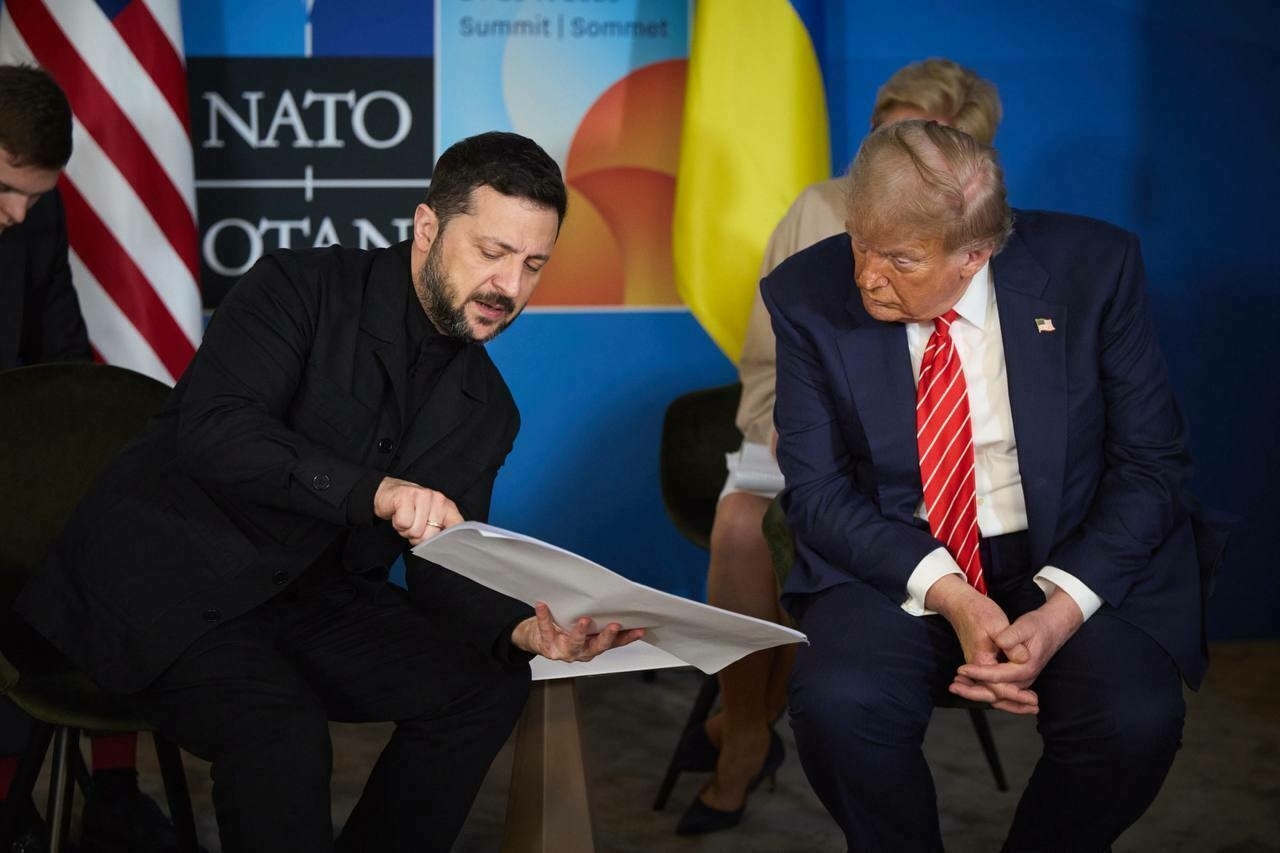
President Volodymyr Zelensky (L) and U.S. President Donald Trump (R) meet during the NATO Summit in The Hague, Netherlands, on June 25, 2025. (Zelenskiy / Official Telegram Account / Handout / Anadolu via Getty Images) Trump also carefully signaled support for sending Ukraine additional missiles for Patriot air defense systems, though no concrete commitment was made. Asked about further air defense assistance by a Ukrainian journalist whose husband is a soldier fighting in Ukraine, Trump, in a rare show of sympathy toward Ukrainians, acknowledged her distress over Russia’s escalating aerial attacks.
"They (Ukraine) do want to have the anti-missile missiles, as they call them, the Patriots, and we're going to see if we can make some available," Trump said.
Other NATO leaders reaffirmed their steadfast support for Ukraine as it continues to resist Russia’s full-scale invasion, now in its fourth year.
“Everybody understands that the attack against Ukraine is an attack against us as well. Ukraine belongs to Europe,” Estonian Foreign Minister Margus Tsakhna told the Kyiv Independent during an interview at the summit.
Zelensky’s rhetoric was focused on pressuring Russia to accept a just peace and on raising more international funding for the Ukrainian defense industry.
Individual countries and other partners responded. The Netherlands and Norway pledged hundreds of millions to the Ukrainian defense industry, while the EU confirmed that its new, ambitious $175-billion SAFE defense spending program will be open to Kyiv.
But as the summit unfolded, it became increasingly clear that the spotlight is on Trump.
Putin insists the Russian economy is fine, but Kremlin officials say otherwiseIn a rare public sign that all is not well in Russia, two high-ranking Moscow officials last week issued separate warnings about the state of the country’s economy. Russian Central Bank Governor Elvira Nabiullina and Economy Minister Maxim Reshetnikov both highlighted that amid the Kremlin’s full-scale war against Ukraine, the tools Moscow once relied on to maintain wartime growth are nearly exhausted. Almost immediately, Russian President Vladimir Putin on June 20 dismissed the concerns, clai The Kyiv IndependentTim Zadorozhnyy
The Kyiv IndependentTim Zadorozhnyy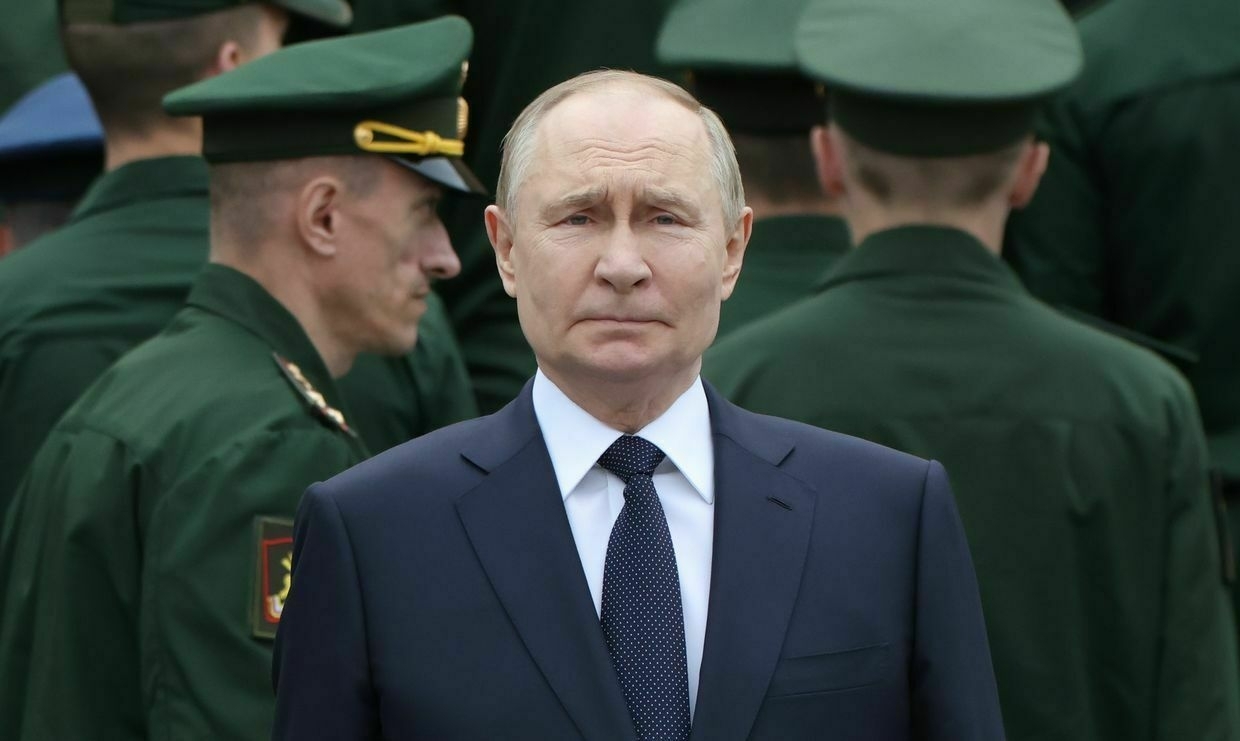
Charm offensive, aimed at TrumpTo say that The Hague summit took place at a precarious moment would be an understatement.
NATO is gripped by what is arguably its greatest existential crisis yet, and the most challenging security situation since the Cold War.tes
Since taking office, Trump has signaled plans to reduce military presence in Europe and cast doubt on his commitment to Article 5 – including just before his trip to the summit.
As Trump’s attention wanders away from Europe and Ukraine to the Israel-Iran conflict and other regions, Europeans are left to grapple with the fears that they might have to face Russian aggression on their own.
“Mr President, dear Donald, Congratulations and thank you for your decisive action in Iran, that was truly extraordinary, and something no one else dared to do. It makes us all safer.”
Perhaps that is why NATO leaders were so dead set on bringing Trump to the summit.
As the Kyiv Independent learned from a Ukrainian official, member countries pulled out all the stops to get Trump to attend, giving him a king’s treatment during the dinner and keeping the summit deliberately short.
Leading this charm offensive was the secretary general himself.
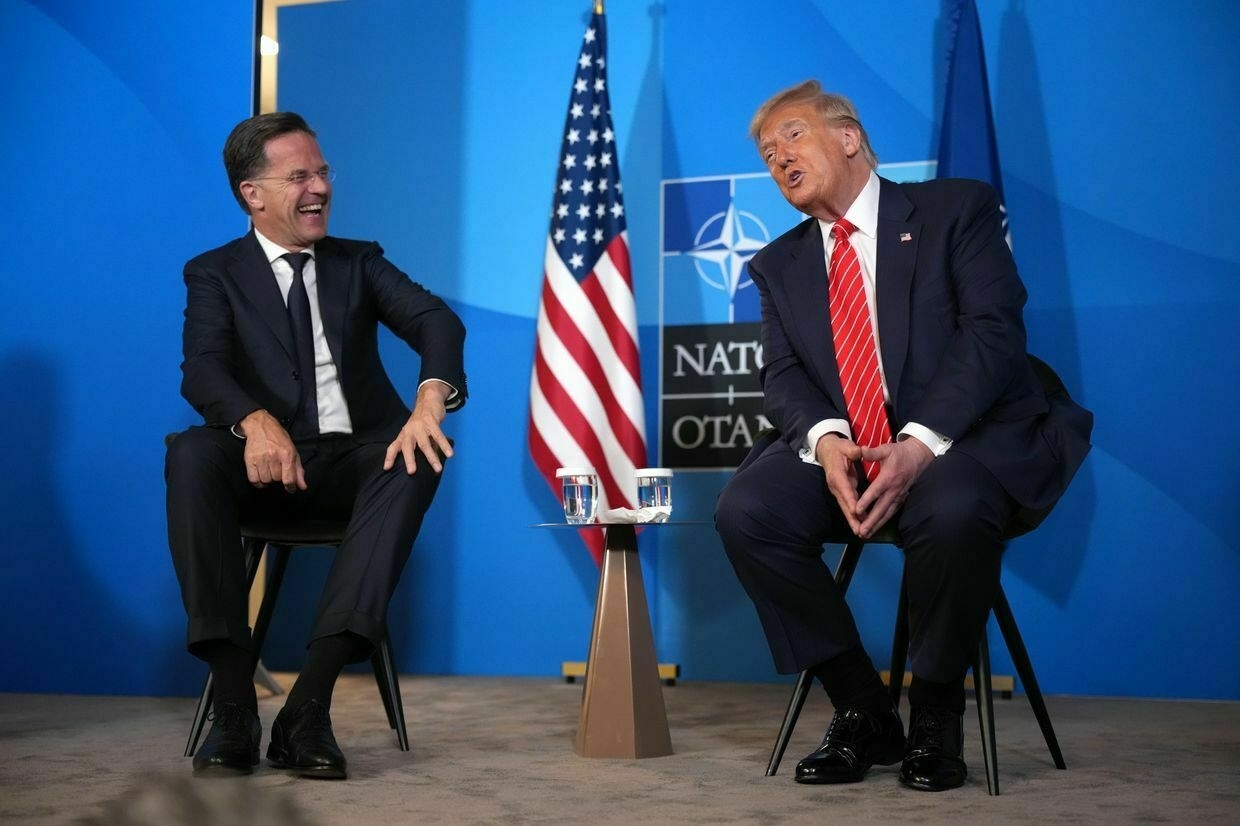
U.S. President Donald Trump (R) and NATO Secretary General Mark Rutte (L) speak to media at the start of the second day of the 2025 NATO Summit in The Hague, Netherlands, on June 25, 2025. (Andrew Harnik / Getty Images) 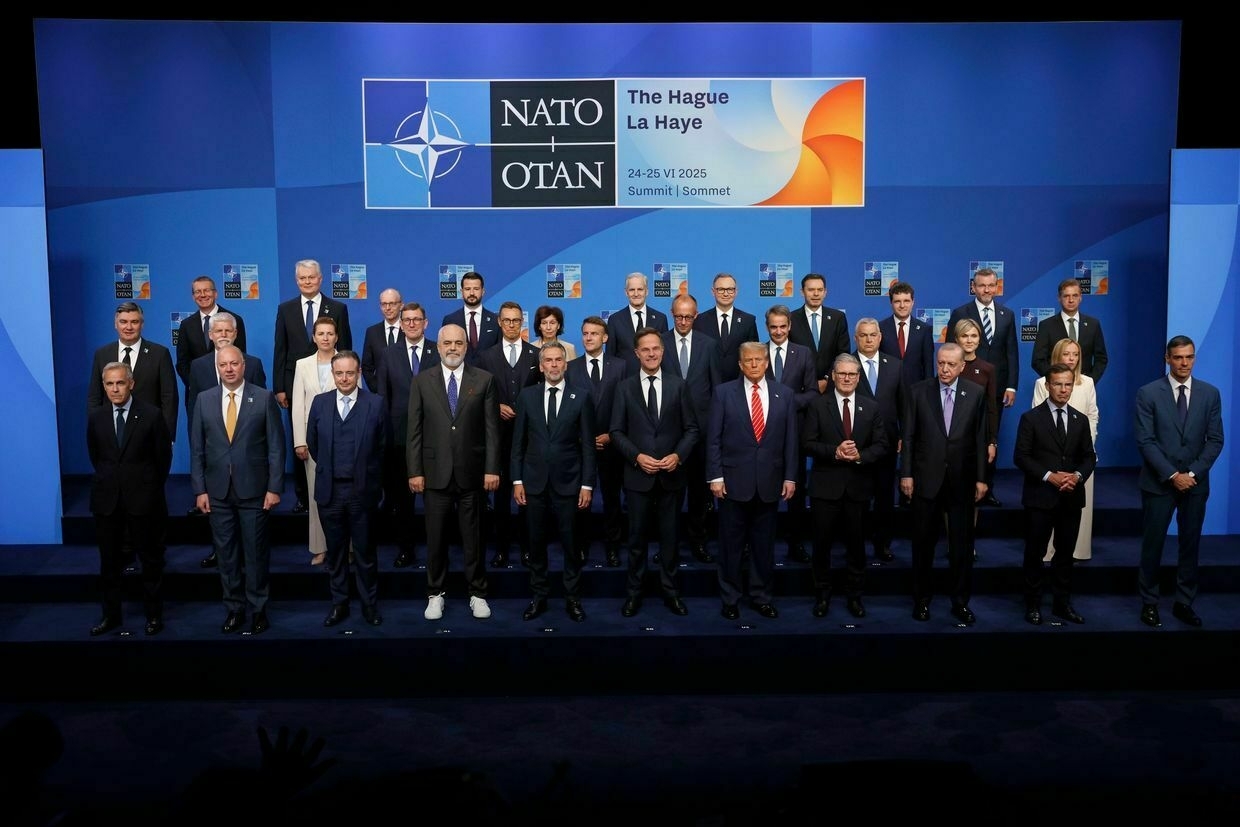
NATO heads of state and government pose for an official photo on the second day of the 2025 NATO Summit in The Hague, Netherlands, on June 25, 2025. (Omar Havana / Getty Images) “Mr President, dear Donald, Congratulations and thank you for your decisive action in Iran, that was truly extraordinary, and something no one else dared to do. It makes us all safer,” Rutte wrote in a message to Trump ahead of the summit, which the U.S. president promptly published.
“Europe is going to pay in a BIG way, as they should, and it will be your win,” he continued, referring to an agreement to raise the defense spending benchmark to 5% of GDP in a style strikingly similar to Trump’s.
Asked by a journalist whether the revelation of this text was not embarrassing for him, Rutte only doubled down, jokingly referring to Trump as a “daddy” during a briefing.
The summit’s focus on defense spending was likely a deliberate offering to Trump, who has lambasted European allies as underpaying freeloaders. When Rutte managed to get a unanimous agreement on the new spending target despite protests from Spain, he had a big win to present to Trump.
"Your leadership on this has already produced $1 trillion in extra spending from European allies since 2016. And decisions today will produce trillions more for common defense,” Rutte told Trump during the summit.
Trump has not been alone in this criticism. NATO’s eastern members, who devote considerably more to defense than their western and southern partners, echoed the sentiment.
“I totally agree with President Trump… Europe must pay more, Europe must take more responsibility for its own defense,” Tsakhna said.
“Europe has been like an old, lazy cat who was just waiting for something bad to happen, and the U.S. would come and solve the problems.”
Rutte's strategy seemed to have paid off. Trump appeared in good spirits, praising the new defense pledge while enjoying a flurry of questions from journalists that, in the absolute majority, focused on recent U.S. strikes on Iran.
Trump also signed off on the final statement that reaffirmed commitment to Article 5, mollifying his earlier comments.
Ukraine sidelinedWhile the final communique of the NATO summit in Washington last year was 38 paragraphs long, with six devoted to support for Ukraine, this year’s joint declaration was a mere five paragraphs.
The document did name Russia as a threat to the Euro-Atlantic security and reaffirmed support for Kyiv, but stopped short of condemning Moscow, mentioning Ukraine’s NATO aspirations, or offering any concrete new assistance.
This did not come as a surprise. Already in the runup to the summit, Bloomberg reported that the joint communique would omit these topics to avert friction with the U.S. president, who has been averse to offending Russia.
Rutte used the summit to repeat the familiar pledge that Ukraine’s path toward NATO is “irreversible,” but it was obvious that Kyiv’s accession, openly opposed by Trump, would not see any development in the near future.
Even as Russia launched a brutal aerial attack against Dnipro during the summit, which killed 19 people and injured 300, NATO offered Ukraine little but words.
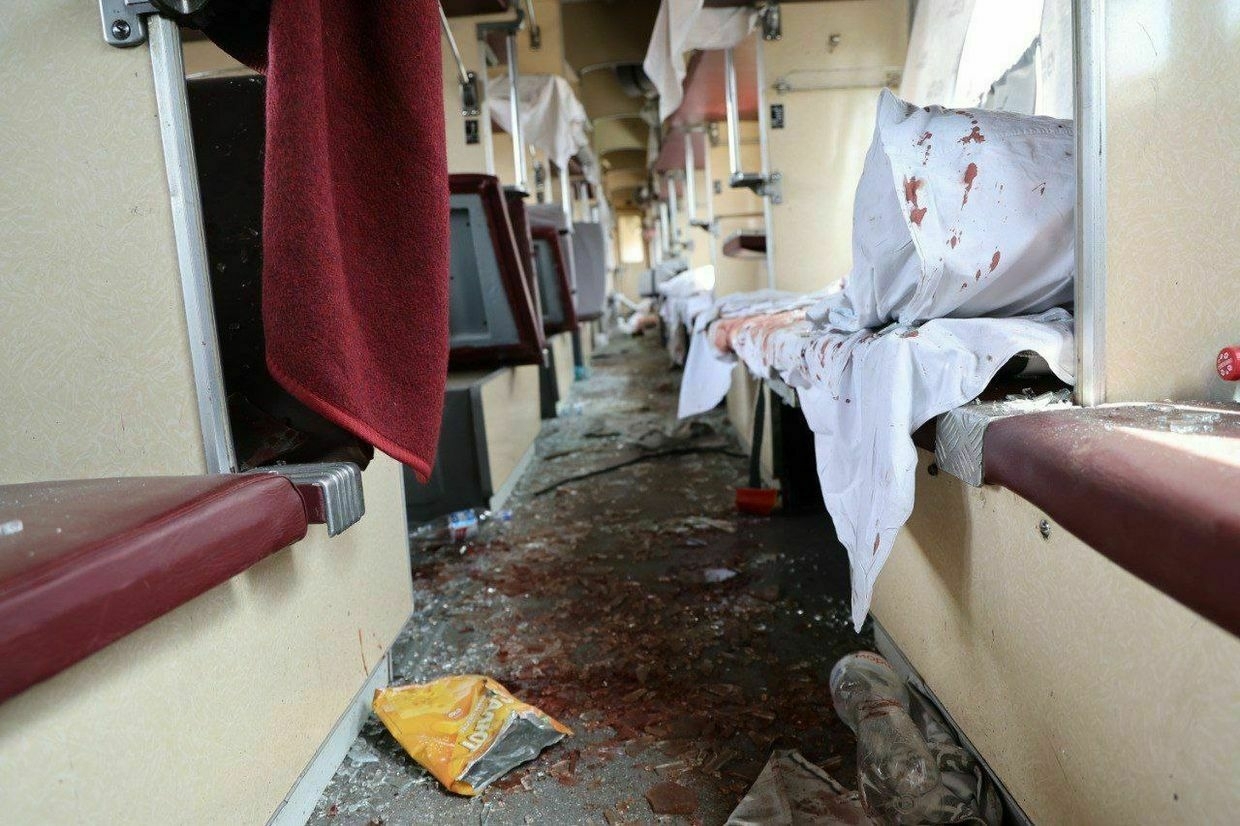
The aftermath of a Russian ballistic missile attack damaged a passenger train in Dnipro, Ukraine, on June 24, 2025. (Serhii Lysak / Telegram) What Ukraine received at this year’s NATO summit was a far cry from the bold pledges made last year in Washington.
But the meeting passed without any visible friction between Trump and his Ukrainian and European partners, with Ukraine even grabbing a few modest wins.
In the era of Trump, that might be a success of itself.
Asami Terajima contributed to reporting.Note from the author:
Hi, this is Martin Fornusek. I hope you enjoyed this article. If you want to help us continue covering crucial events like the NATO summit in The Hague, please consider becoming our member.
Thank you very much.
-
Orban claims 95% oppose Ukraine's EU accession in disputed Hungary referendum
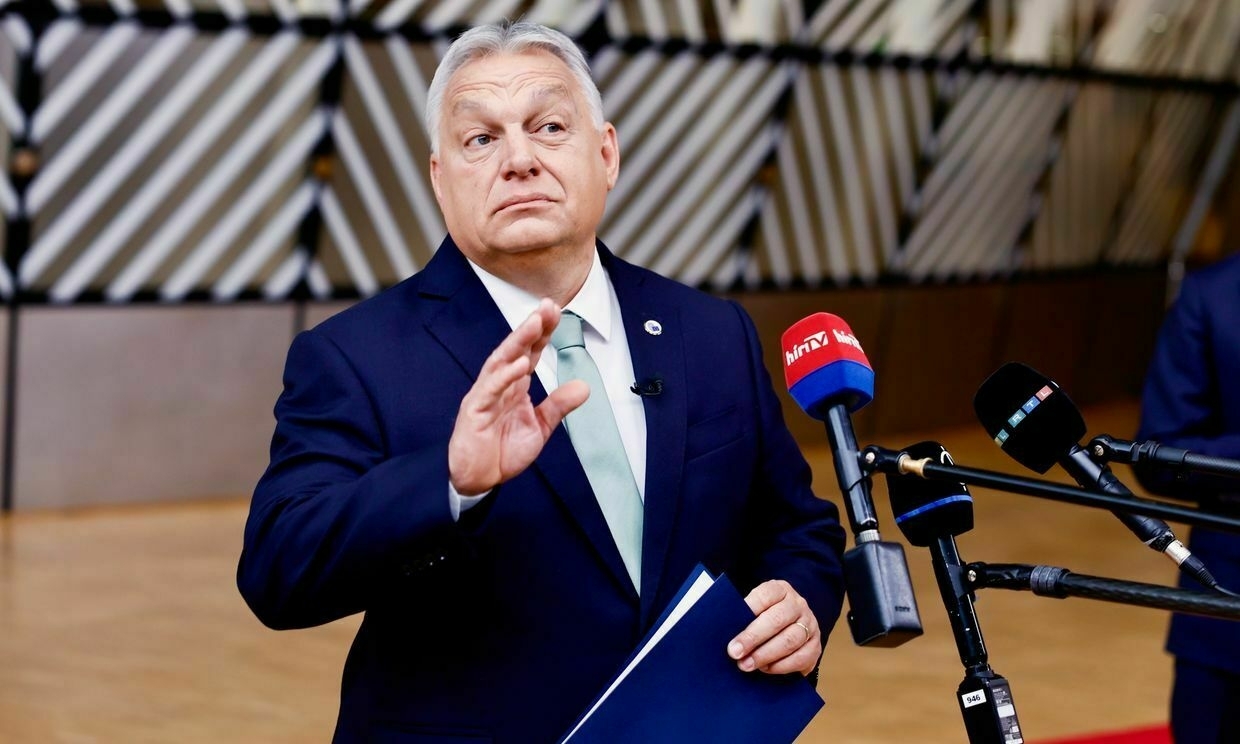
Hungary’s government announced on June 26 that 95% of participants in a national consultation opposed Ukraine’s accession to the EU, Hungarian news outlet Telex reported.
The poll, promoted by Prime Minister Viktor Orban’s government, has already drawn criticism over its credibility and turnout. Telex reported that the system could be manipulated — testing showed that users were able to vote twice using different email addresses.
According to Telex, 2,278,000 people participated in the consultation — approximately 29% of the electorate that voted in the 2024 European Parliament elections. Of those, the government claimed 95% voted against Ukraine joining the EU, while only 5% supported the bid.
Ukraine applied for EU membership shortly after Russia launched its war in 2022 and was granted candidate status within months. As an EU member, Hungary has veto power over further progress.
The consultation results were released on the eve of the European Council summit, giving Orban leverage to delay Ukraine’s membership. But the process itself has drawn skepticism.
Government spokesman Gergely Gulyas claimed printed ballots were notarized and secure, and that electronic votes, which made up 10% of the total, were being verified. However, he could not confirm whether the system could detect if someone voted both by mail and online.
Opposition leader Peter Magyar on June 22 dismissed the consultation as a “government propaganda campaign” and cited internal data from Magyar Posta indicating that only 3-7% of mailed ballots were returned.
“It’s the lowest-ever turnout for any such consultation,” Magyar wrote on social media.
Since 2010, Orban's government has conducted more than a dozen similar national consultations — non-binding letter campaigns with leading questions designed to reinforce government positions.
Previous campaigns targeted topics like LGBTQ rights and EU migration policy. In one 2023 consultation, voters were asked whether they supported Brussels' alleged plans to create "migrant ghettos" in Hungary — 99% voted no, with turnout under 20%.
On April 22, Orban said he voted against Ukraine's accession to the EU in the consultation, publicly sharing photos of himself marking "against" on the poll ballot. He warned earlier this year that allowing Kyiv to join the EU would "destroy" Hungary.
Orban, the EU's most openly pro-Russian leader, has blocked or delayed military aid to Ukraine, maintained close ties with President Vladimir Putin, and echoed Kremlin talking points.
Hungary's opposition and Western critics view his administration as increasingly authoritarian, citing the erosion of press freedom, judicial independence, and electoral fairness.
Despite the low turnout and widespread allegations of manipulation, Orban is expected to use the consultation's outcome to justify future obstruction of Ukraine's EU integration.
Hungary’s soft power meets Ukraine’s hard reality in ZakarpattiaBEREHOVE, Zakarpattia Oblast — Thin gray smoke drifts beyond the patchwork of Soviet-era apartment blocks, historical buildings, and hillside vineyards that make up Berehove — the heart of the Hungarian community in Ukraine’s westernmost Zakarpattia Oblast. “That’s Hungary, over there, where you see the smoke,” gestures Vitalii Antipov, a member of the local council, toward the not-so-distant horizon. He stands on top of a hill adorned by a massive white cross with a makeshift inscription thank The Kyiv IndependentMartin Fornusek
The Kyiv IndependentMartin Fornusek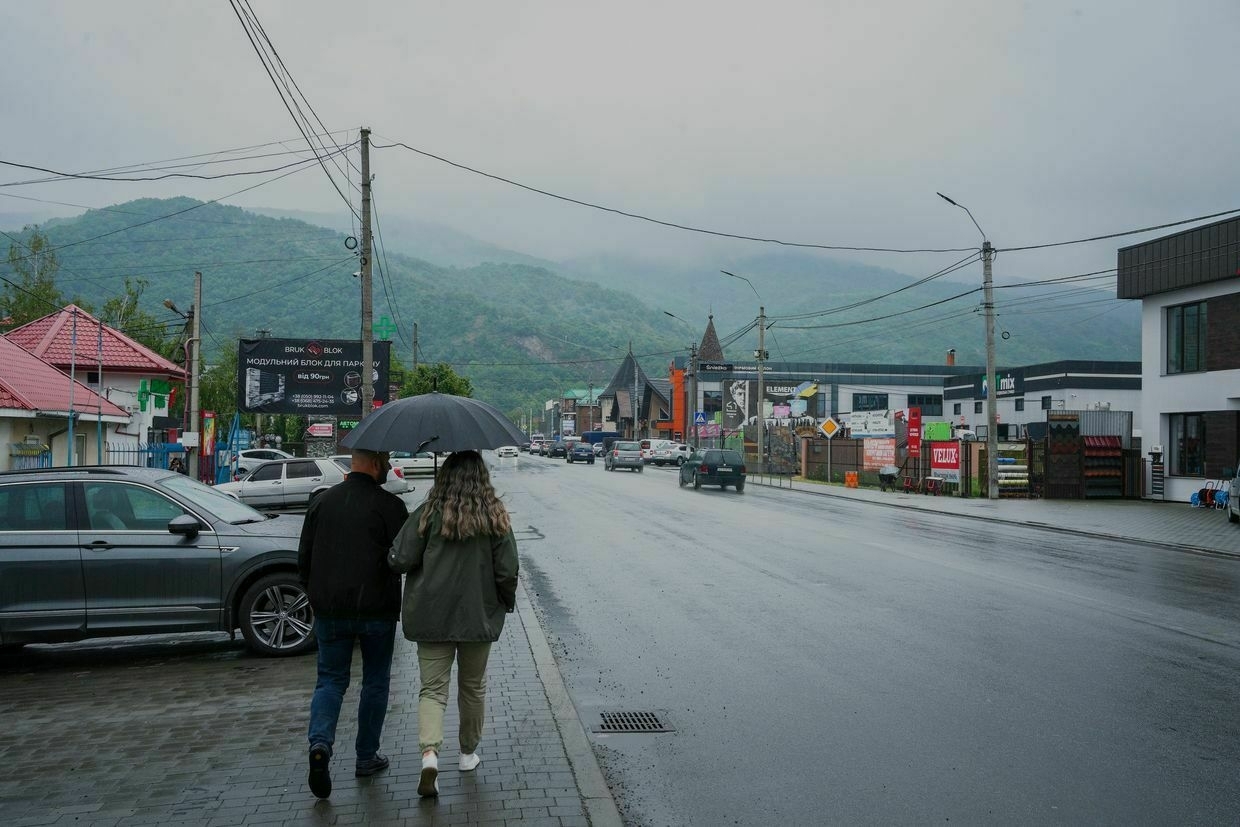
-
Russia reportedly helping North Korea build warships, but questions over seaworthiness remain after failed launch
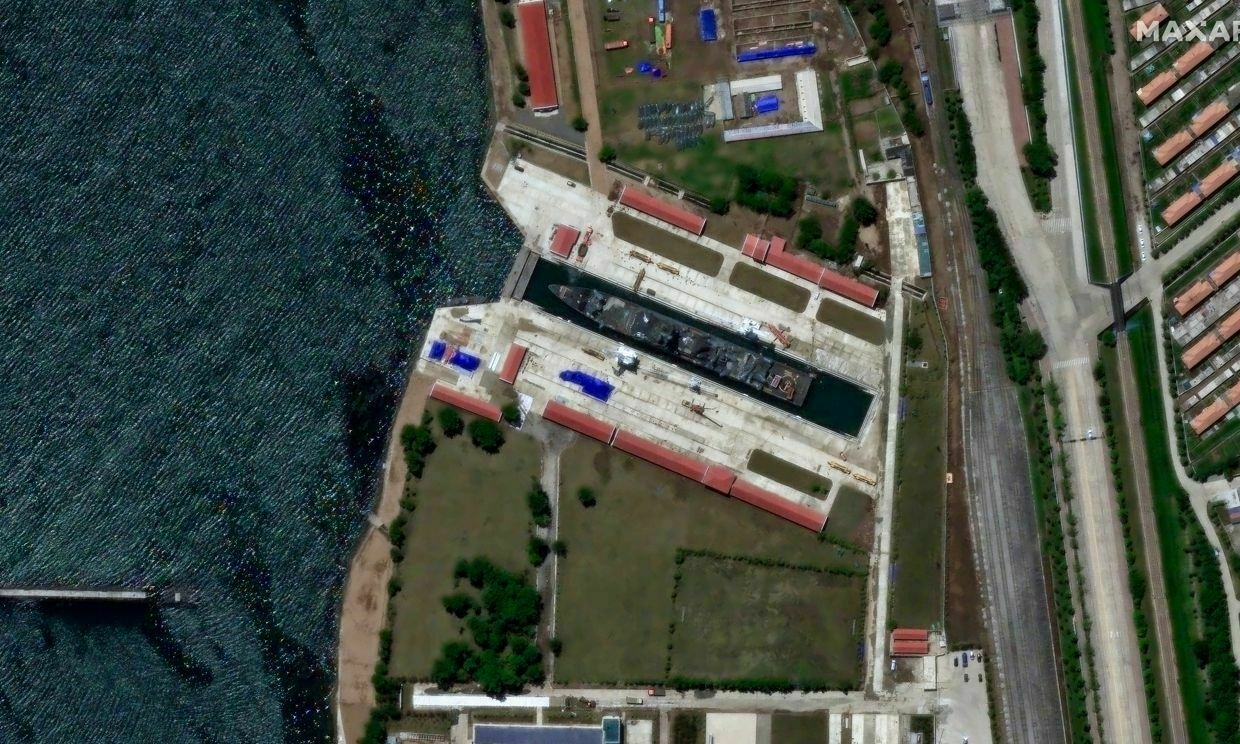
Russia appears to have provided North Korea with extensive assistance in designing and rapidly constructing two advanced destroyers, the most modern in Pyongyang’s fleet, the Wall Street Journal (WSJ) reported on June 25.
The destroyers, part of the new Choe Hyon class, were built in just over a year — an unusually fast timeline that analysts say would have been impossible without foreign support.
Satellite imagery and launch footage suggest a clear Russian design influence, including the distinctive bow and stern structure found on Russia’s Admiral Grigorovich-class frigates.
One of the destroyers, launched in April, was followed in May by a failed launch during which the second vessel capsized in front of North Korean leader Kim Jong Un.
The incident prompted outrage from Kim, who condemned the failed launch as a “criminal act” and placed blame on several state institutions, accusing relevant officials of “irresponsibility” which “could not be tolerated,“North Korean state-run Korean Central News Agency (KCNA) reported.
According to the agency, a malfunction in the launch mechanism caused the stern of the 5,000-ton destroyer to slide into the water too early, while the rest of the ship remained stuck.
Damage to the bottom of the ship threw it off balance, and the bow failed to move, resulting in “a serious accident."
The wreck was recovered in early June.
Mike Plunkett, a senior naval analyst at Janes, an open-source intelligence company, told the WSJ that the ships appeared to have signs of Russian involvement. He pointed to identical hull lines and profiles where the hull connects to the side, between the Korean and Russian vessels.
One of the destroyers appears to be equipped with the Russian Pantsir-M system, marking the first time this advanced air-defense system has been seen on a non-Russian warship.
Plunkett noted that the ventilation grilles for the engine room were sealed with metal plates, indicating the ships might not yet have engines.
The news comes amid deepening military ties between Russia and North Korea. According to a May 29 report by the Multilateral Sanctions Monitoring Team (MSMT), Pyongyang shipped up to 9 million artillery shells and at least 100 ballistic missiles to Russia in 2024 alone.
In fall 2024, North Korea’s role in Russia’s war grew as it sent thousands of troops to Russia’s western border to assist in repelling a Ukrainian incursion.
The partnership has also expanded into drone cooperation. On June 9, Ukraine’s military intelligence chief, Kyrylo Budanov, said the two nations had agreed to begin production of Iranian-designed Shahed-136 drones on North Korean territory.
‘Alarms went off everywhere’ — Explosions reported in Moscow, Russia claims 50 Ukrainian drones downed across countryExplosions were reported in Moscow overnight on June 26, prompting airport closures, as Mayor Sergey Sobyanin claimed that two drones were shot down.The Kyiv IndependentVolodymyr Ivanyshyn
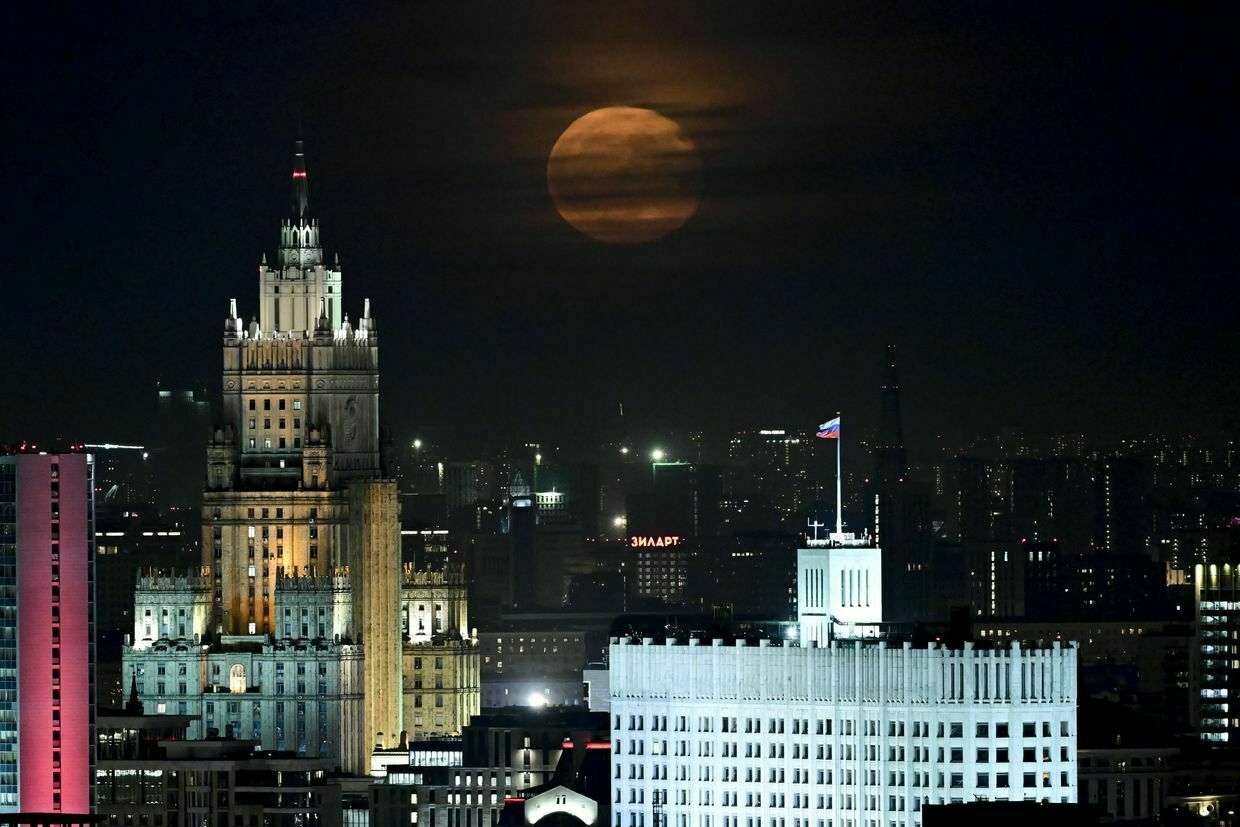
-
Taking lessons from Ukraine war, Trump's US defense budget prioritizes drones, missiles
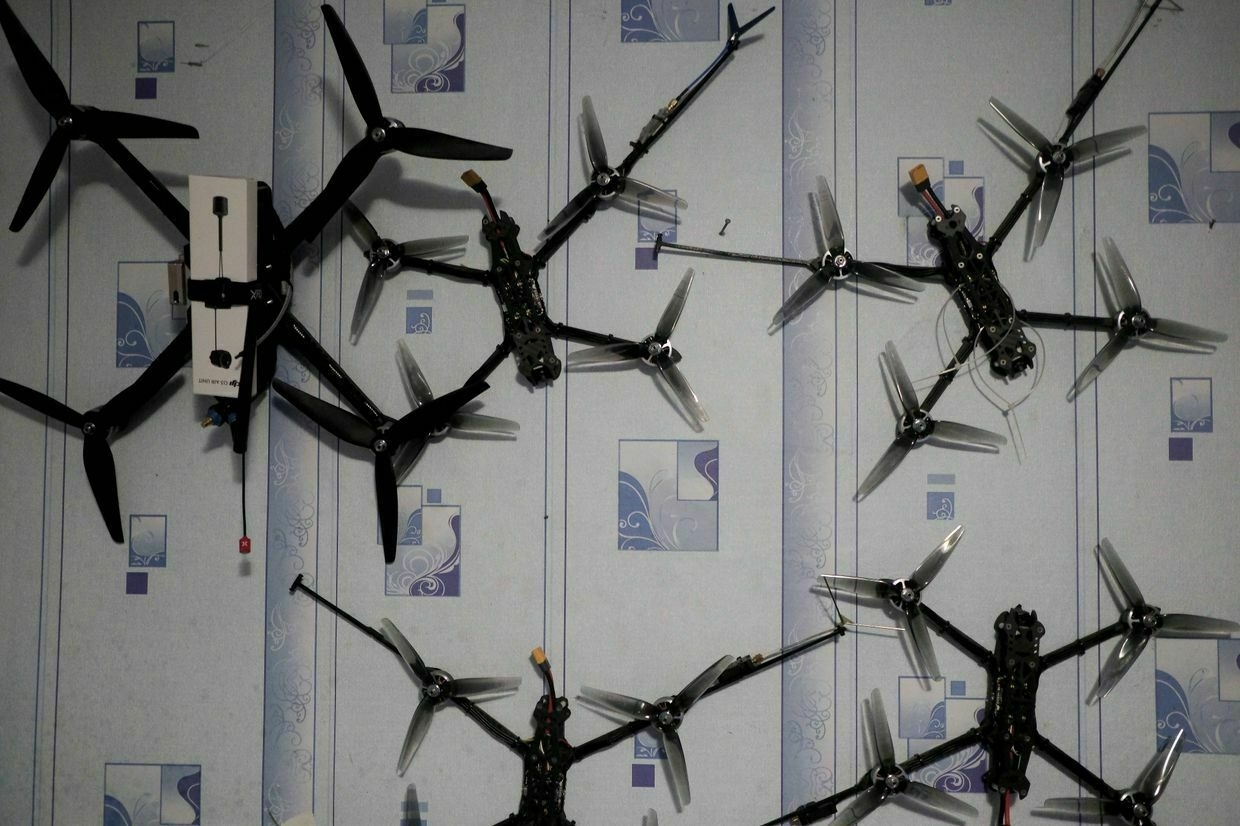
U.S. President Donald Trump’s proposed defense budget for fiscal year 2026 prioritizes drones and long-range missile systems over traditional air and naval platforms, Reuters reported on June 26.
The $892.6 billion request maintains the overall funding level from 2025 but shifts spending toward innovation and high-tech systems. The budget includes increased investment in small drones, a response to their proven battlefield value in Ukraine.
The proposal slashes procurement of key legacy systems. Trump’s plan includes just 47 F-35 fighter jets, down from the 68 planned by the Biden administration, and only three warships.
The Pentagon will continue to purchase Joint Air to Surface Standoff Missile – Extended Range and Long Range Anti-Ship missiles for the U.S. Air Force. Fewer Precision Strike Missiles, meant to replace the ATACMS, are included in the main request.
The proposal also includes a 3.8% increase in military salaries, while decommissioning aging and costly aircraft and ships. The Navy’s civilian workforce will be reduced by more than 7,000 employees to free up resources for technology and modernization.
The shift from traditional fleet expansion indicates a move towards asymmetric, precise warfare with drones playing a crucial battlefield role.
Ukraine’s experience has informed several elements of the request. Since Russia’s full-scale invasion in 2022, Kyiv has expanded drone production across all domains — air, land, and sea — with plans to manufacture 30,000 long-range drones in 2025.
Ukraine’s hybrid strike platforms, such as the Palianytsia and Peklo missile-drones, have drawn international attention for their range and versatility.
Putin insists the Russian economy is fine, but Kremlin officials say otherwiseIn a rare public sign that all is not well in Russia, two high-ranking Moscow officials last week issued separate warnings about the state of the country’s economy. Russian Central Bank Governor Elvira Nabiullina and Economy Minister Maxim Reshetnikov both highlighted that amid the Kremlin’s full-scale war against Ukraine, the tools Moscow once relied on to maintain wartime growth are nearly exhausted. Almost immediately, Russian President Vladimir Putin on June 20 dismissed the concerns, clai The Kyiv IndependentTim Zadorozhnyy
The Kyiv IndependentTim Zadorozhnyy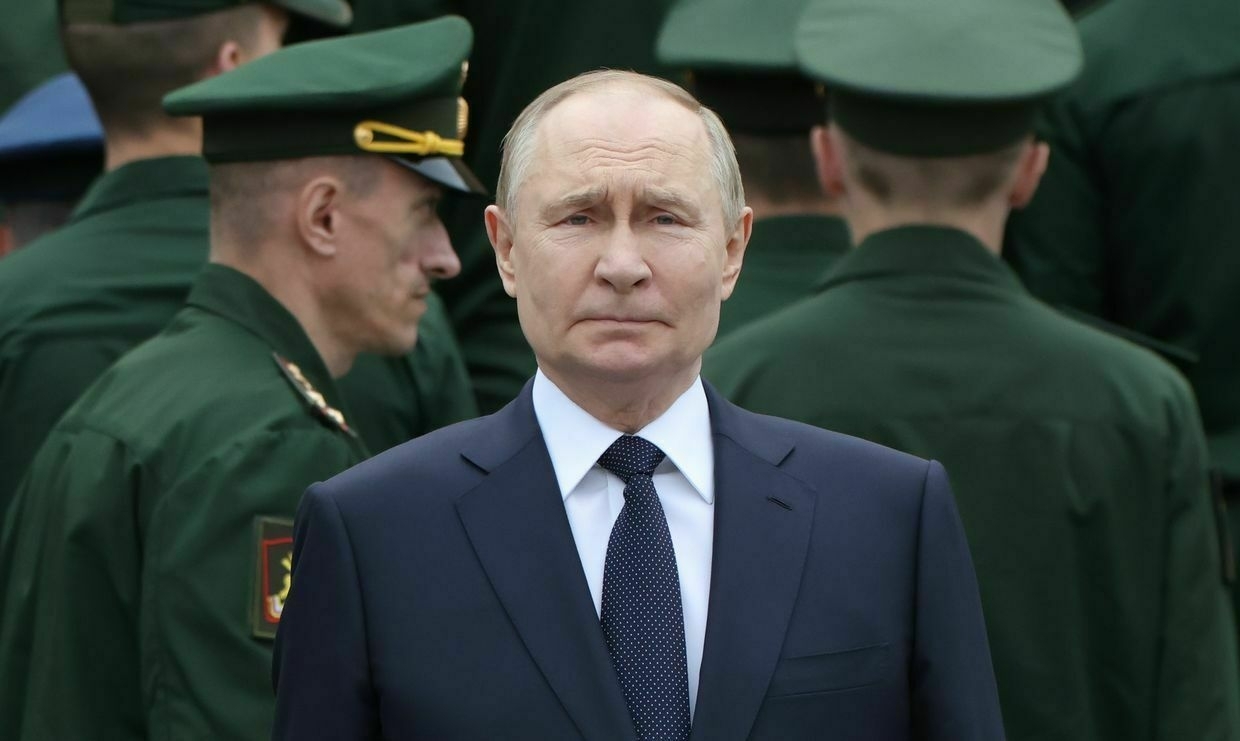
-
Ukraine to receive 20 new Rheinmetall Ermine vehicles — here's what they can do
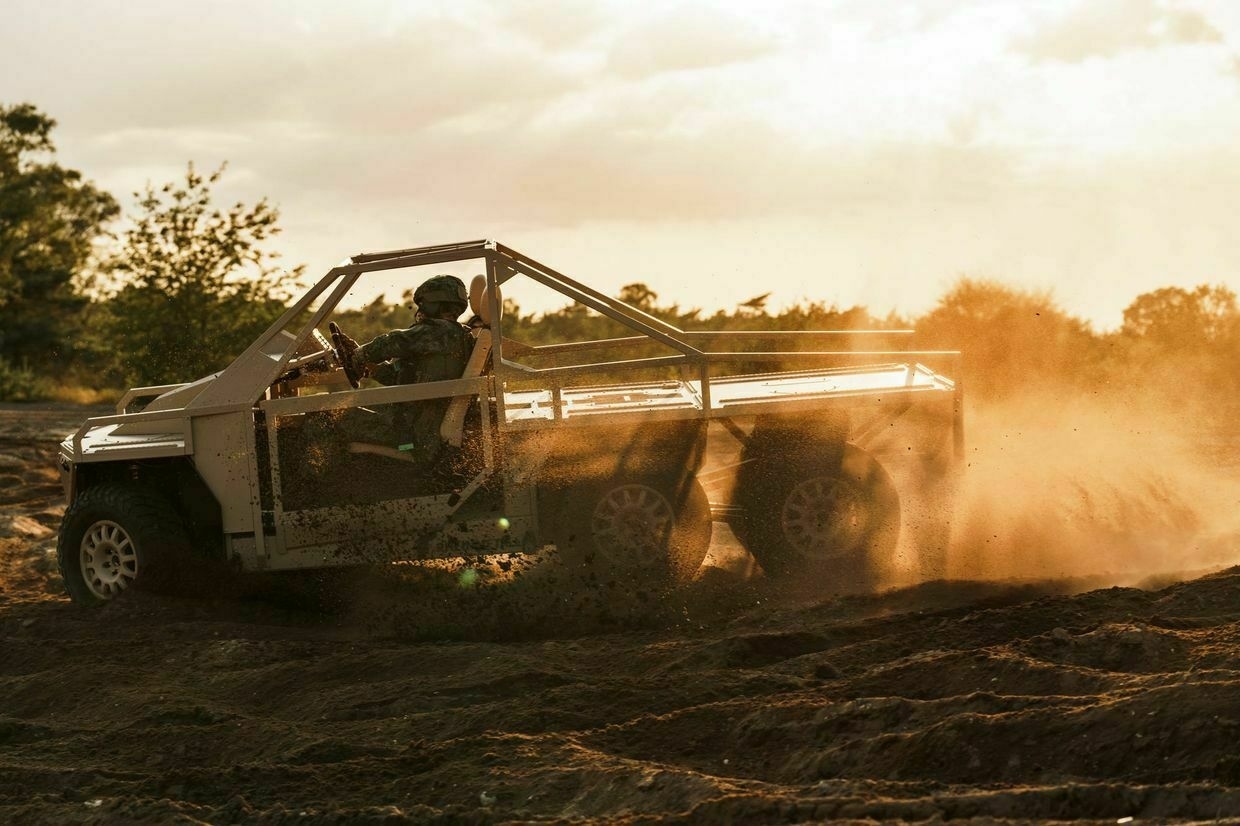
The Dutch Defense Ministry will finance the production of 20 Ermine ground vehicles for Ukraine, German defense manufacturer Rheinmetall announced on June 25.
The contract, signed during the NATO summit in The Hague, marks the first order for the new-generation tactical platform. Ukraine will become the first country in the world to receive the Ermine.
The Ermine, developed by Rheinmetall Defence Nederland, is designed primarily for front-line evacuation missions.
The light buggies provide fast, maneuverable transport for wounded personnel in combat zones. Rheinmetall said the deliveries are expected to begin in 2026.
According to Rheinmetall, the Ermine is a “lightweight tactical system that combines the robustness of a diesel unit with many advantages of an electric drive."
It’s a modular system that comes in four configurations — 4x4 quad, 4x4/6x6 buggy, or Unmanned Ground Vehicle (UGV).
The Ermine combines a diesel engine with an electric motor that allows for what Rheinmetall describes as “Silent Move & Silent Watch,” and has a range of up 1,200 kilometers, and can carry up to a tonne.
“The electrical powertrain makes the Ermine almost silent. It is capable of driving up to 50 km silently through heavy terrain and up to 100 km on the road,” the company said.
“The system offers its users significant tactical advantages in avoiding enemy reconnaissance."
The electrical engine can even provide charging points for soldiers out in the field.

An Ermine ground vehicle developed by Rheinmetall Defence Nederland mainly for front-line evacuation missions (Rheinmetall) On June 24, Dutch Prime Minister Dick Schoof presented a new military aid package for Ukraine, including 100 drone radar systems, front-line vehicles, and 80 million euros (over $90 million) for the drone initiative.
The NATO summit concluded on June 25 with a joint pledge by member states to raise defense spending to 5% of GDP by 2035. The updated target reflects shifting priorities within the Alliance as the war in Ukraine drags into its fourth year.
Unlike in previous years, the 2025 summit communique did not include an explicit condemnation of Russia’s invasion. Still, the final statement reaffirmed support for Ukraine and said assistance to its defense industry will count toward the new spending benchmark.
President Volodymyr Zelensky met with U.S. President Donald Trump during the summit, where the two leaders discussed battlefield developments, Kyiv’s need for additional air defense systems, and the potential for co-production of drones.
“They (Ukraine) do want to have the anti-missiles, as they call them, the Patriots, and we’re going to see if we can make some available,” Trump said. “They are very hard to get. We need them too. We are supplying them for Israel, and they are very effective."
Trump’s remarks signal a potential boost to Ukraine’s air defense capabilities, which have come under increasing strain amid intensifying Russian attacks.
Meloni tells Trump US must show ‘same determination’ on Ukraine as with Iran“I said the same determination is needed to achieve two other important ceasefires,” Meloni said.The Kyiv IndependentTim Zadorozhnyy
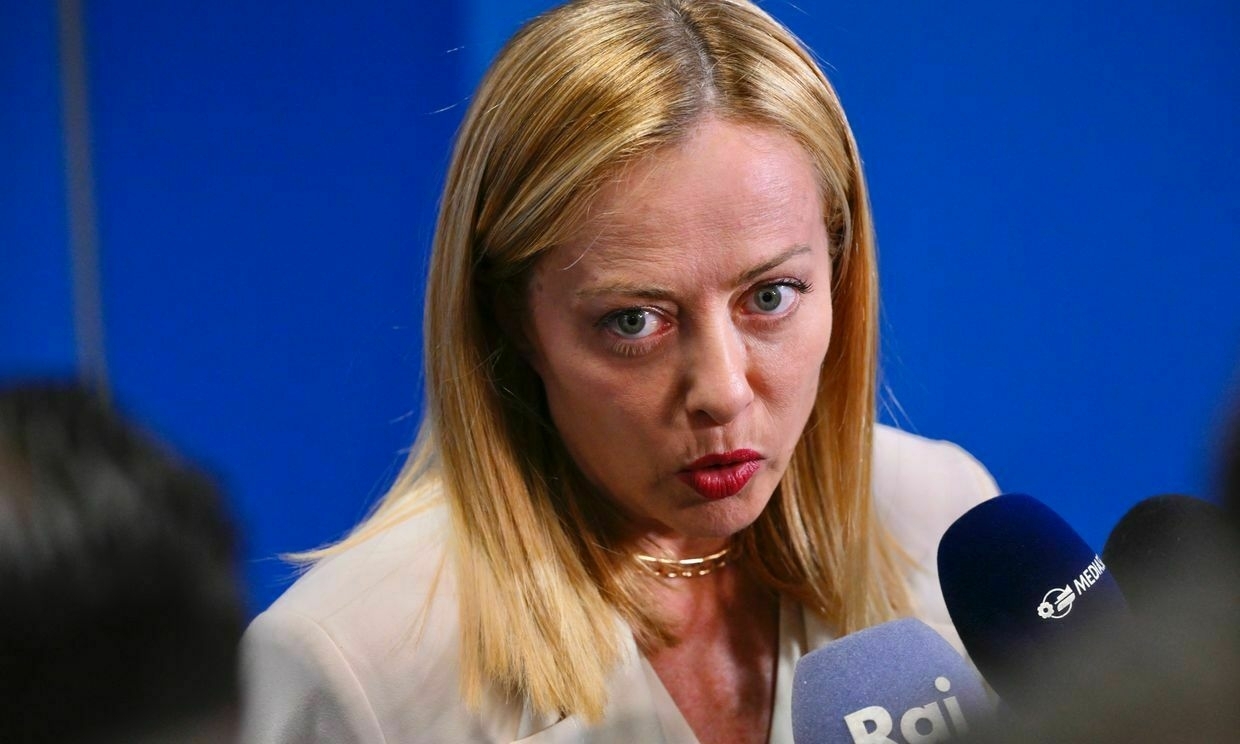
-
Meloni tells Trump US must show 'same determination' on Ukraine as with Iran
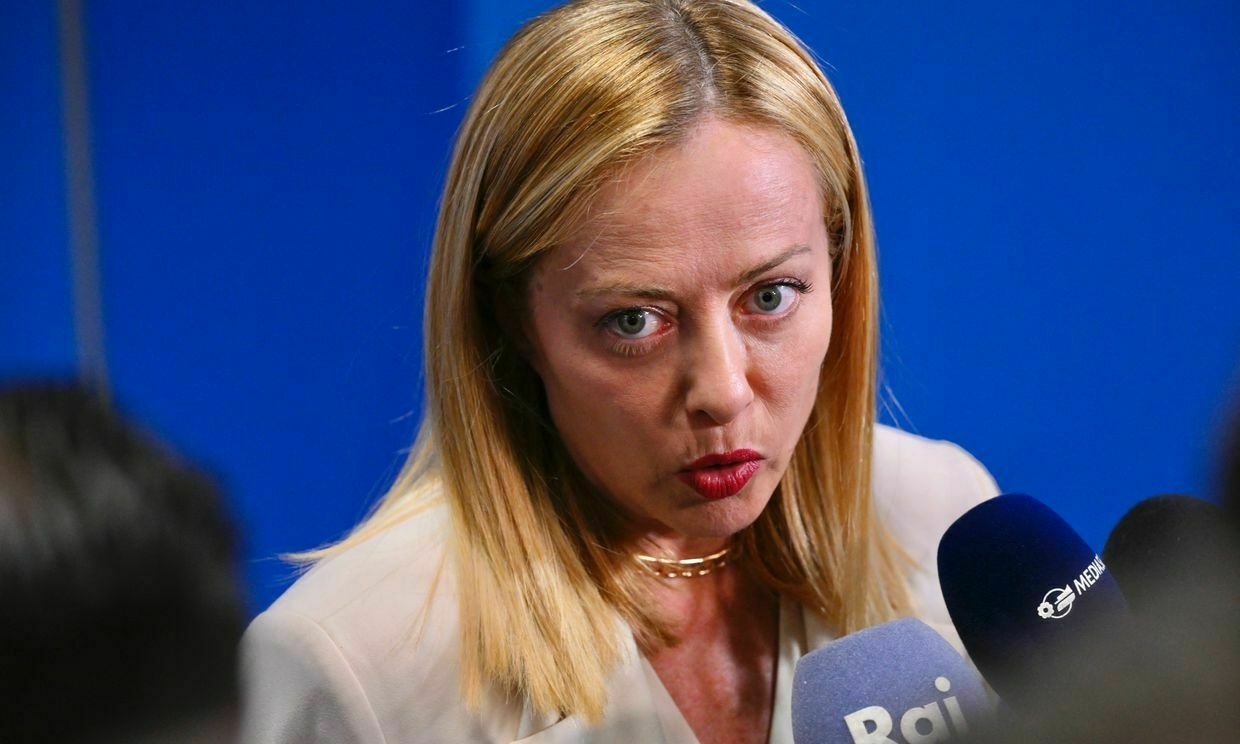
Italian Prime Minister Giorgia Meloni told U.S. President Donald Trump that the determination shown by the U.S. toward Iran should also be applied to ending Russia’s war against Ukraine, she said on June 25 on the sidelines of the NATO summit in The Hague.
Meloni, a close Trump ally and the only European leader invited to his 2025 inauguration, welcomed the recently announced ceasefire between Israel and Iran.
She emphasized that sustained commitment is also needed in Ukraine, where Russian President Vladimir Putin last week declared “all of Ukraine is ours."
“I spoke about this with President of the United States Donald Trump, to whom I said the same determination is needed to achieve two other important ceasefires,” Meloni said. “One in Ukraine, where Russia seems unwilling to take any steps forward, and one in Gaza."
On June 24, Trump announced that a ceasefire between Iran and Israel had taken effect following U.S. airstrikes on Iran’s nuclear infrastructure.
The escalation followed Israel’s June 13 attack that prompted Iran to retaliate with missile attacks on Tel Aviv and other cities, killing multiple civilians, including five Ukrainian citizens.
President Volodymyr Zelensky met with Trump during the summit, held amid concerns over waning U.S. support for Kyiv. Unlike in 2024, this year’s communique did not directly condemn Russia’s invasion, a shift that underscores changing political dynamics within the Alliance.
The leaders reaffirmed support for Ukraine’s defense, saying national contributions toward Ukraine’s military-industrial capacity will count toward NATO’s new defense spending goal.
All 32 NATO member states agreed to a new benchmark, committing to raise defense spending to 5% of GDP by 2035. Meloni praised the decision as a sign of unity.
“I believe the unity of the alliance and its willingness to strengthen itself is more important, especially in the context we are in, and is clearly a very important element,” she said.
The NATO summit comes just one week after Trump departed early from the G7 in Canada, delaying direct talks with Zelensky until June 25.
Ukraine war latest: US signals more Patriot missiles for Kyiv after Zelensky-Trump talks at NATO summitKey developments on June 25: * Zelensky, Trump hold talks on NATO summit sidelines * ‘Something unknown’ hits key Russian drone facility in Taganrog, Ukrainian official says * Russia has launched over 28,000 Shahed drones at Ukraine since 2022, with nearly 10% fired in June alone, Zelensky says * Donetsk Oblast city “onThe Kyiv IndependentThe Kyiv Independent news desk
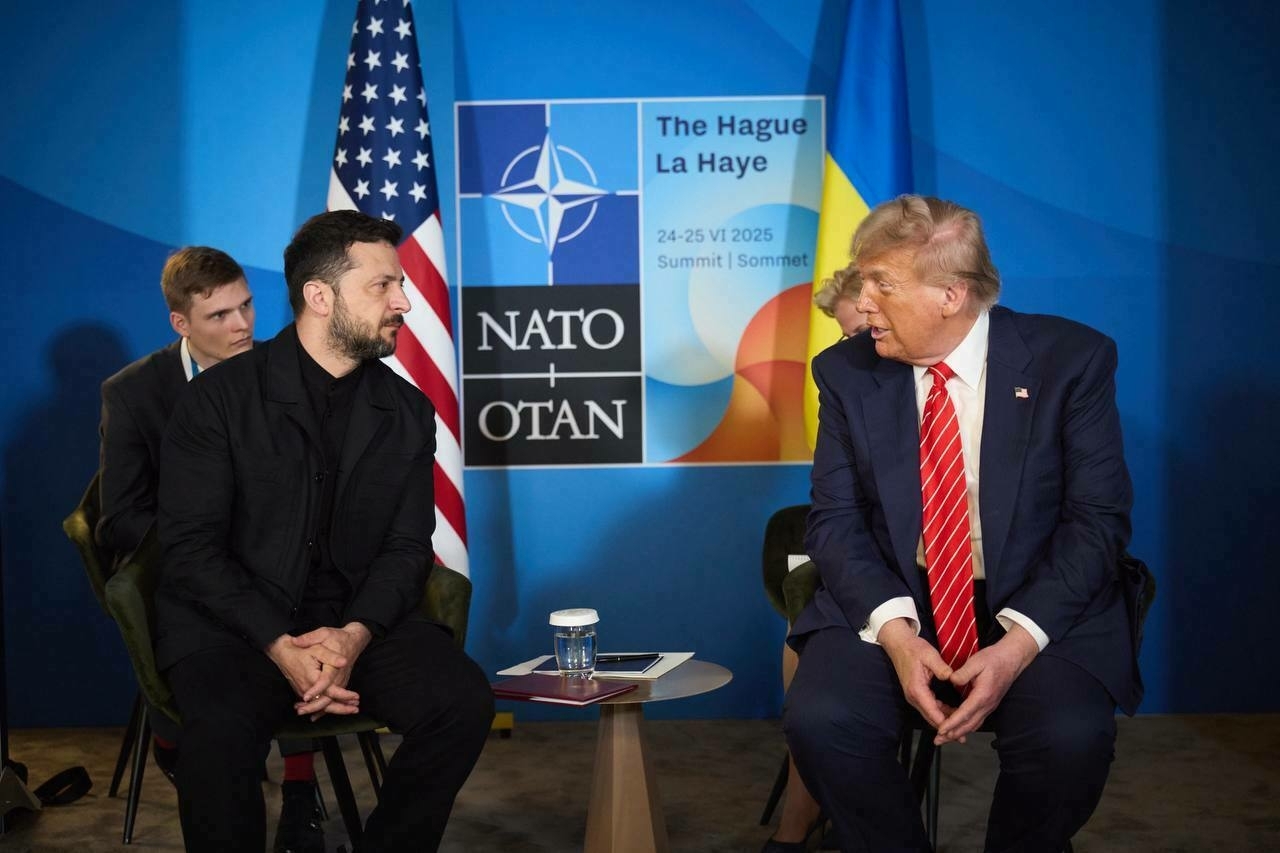
-
General Staff: Russia has lost 1,015,750 troops in Ukraine since Feb. 24, 2022
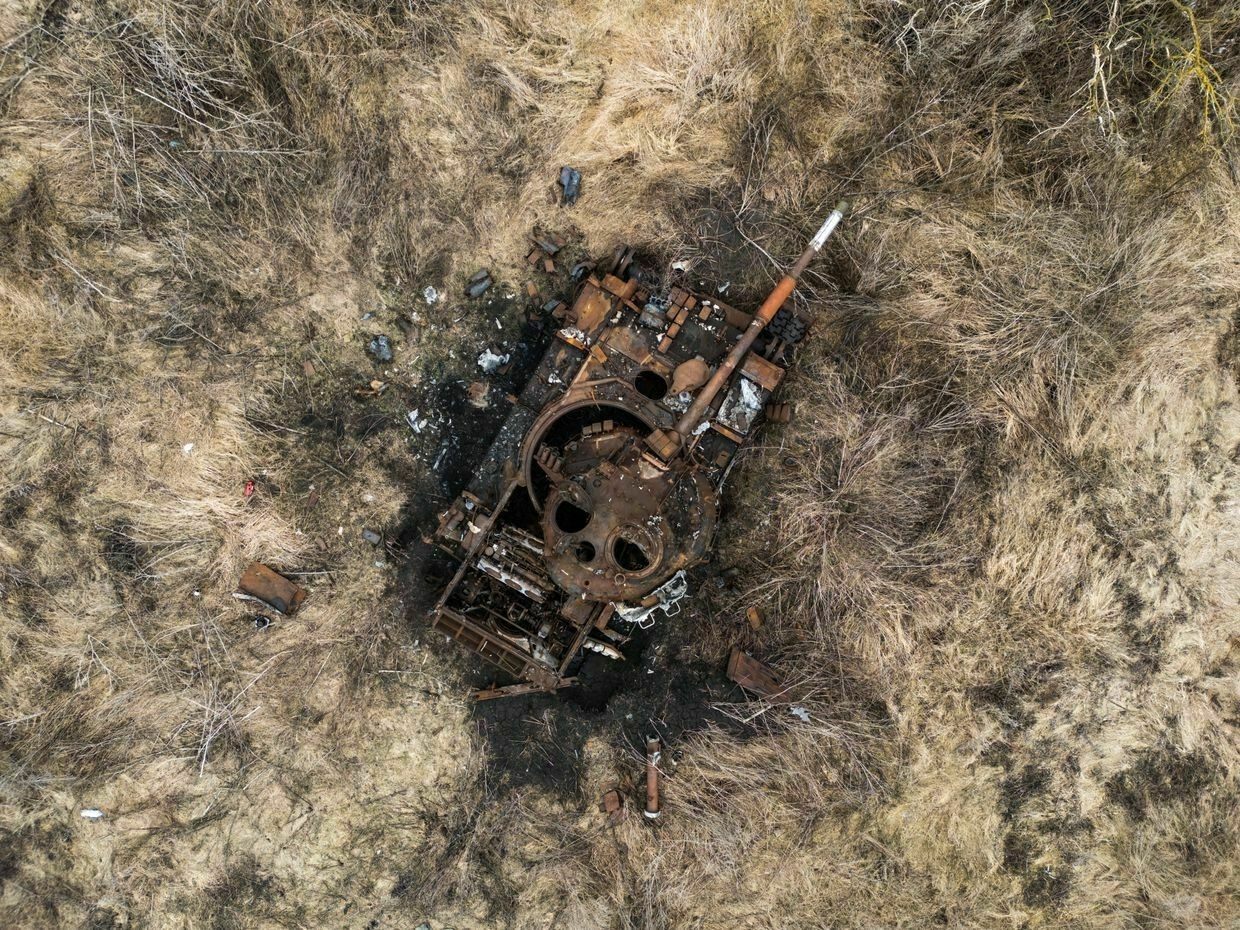
Russia has lost 1,015,750 troops in Ukraine since the beginning of its full-scale invasion on Feb. 24, 2022, the General Staff of Ukraine’s Armed Forces reported on June 26.
The number includes 1,100 casualties that Russian forces suffered just over the past day.
According to the report, Russia has also lost 10,968 tanks, 22,892 armored fighting vehicles, 53,195 vehicles and fuel tanks, 29,617 artillery systems, 1,425 multiple launch rocket systems, 1,188 air defense systems, 416 airplanes, 337 helicopters, 42,153 drones, 3,388 cruise missiles, 28 ships and boats, and one submarine.
Ukraine war latest: US signals more Patriot missiles for Kyiv after Zelensky-Trump talks at NATO summitKey developments on June 25: * Zelensky, Trump hold talks on NATO summit sidelines * ‘Something unknown’ hits key Russian drone facility in Taganrog, Ukrainian official says * Russia has launched over 28,000 Shahed drones at Ukraine since 2022, with nearly 10% fired in June alone, Zelensky says * Donetsk Oblast city “onThe Kyiv IndependentThe Kyiv Independent news desk
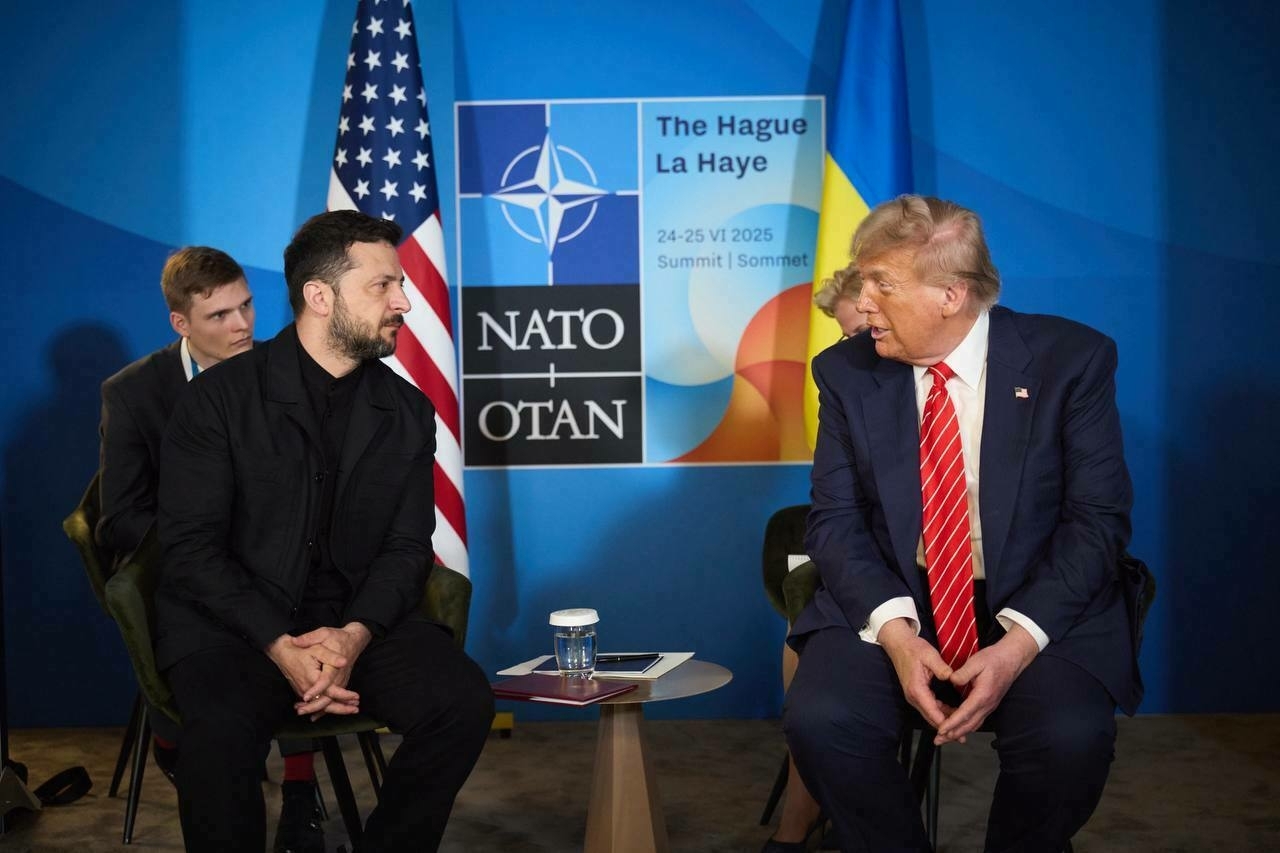
-
Russian court convicts 184 Ukrainian POWs captured in Kursk Oblast of terrorism, Mediazona reports
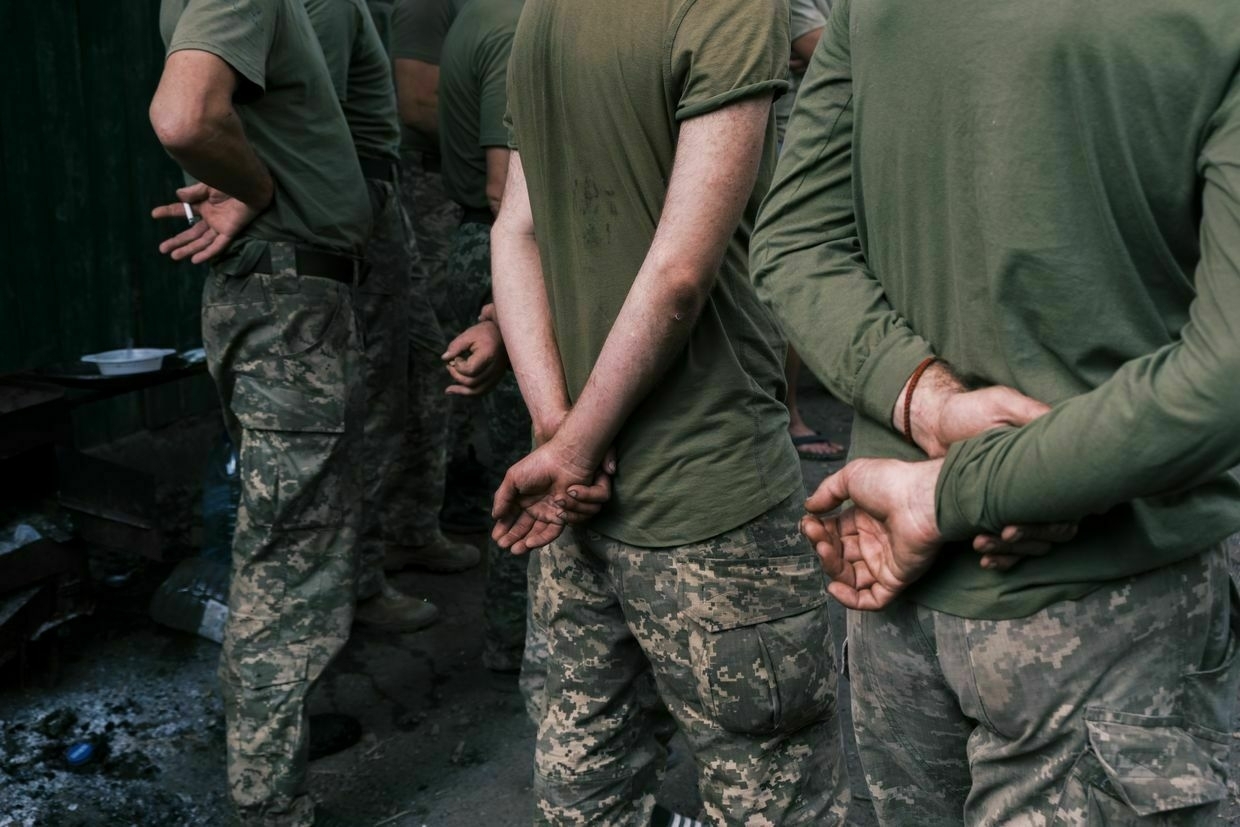
A Russian military court has convicted 184 Ukrainian prisoners of war (POWs) captured in Kursk Oblast of acts of terrorism, Mediazona reported on June 25.
Ukraine first launched a surprise offensive into Russia’s Kursk Oblast in August 2024. Ukrainian officials have said the incursion forced Russia to move resources away from its offensives in Eastern Ukraine.
Russia’s military prosecutors office convicts Ukrainian POWs captured in Kursk Oblast on a regular basis, independent Russian outlet Mediazona reported.
The POWs captured in Kursk were charged with carrying out a grave terrorist act by a group of individuals, as outlined by the Russian Criminal Code.
Junior Lieutenant Yevhen Hoch was convicted of allegedly carrying out an act of terrorism by taking part in Ukraine’s Kursk Oblast incursion.
Russia has waged its war against Ukraine since 2014 and initiated a full-scale invasion in February 2022.
Russian authorities accused Hoch of interfering with civilian evacuations for three weeks amid Ukraine’s Kursk offensive and for “intimidating them by openly carrying and using combat weapons."
Russia regularly convicts people of politically motivated charges in an effort to silence opposition to its war against Ukraine.
The Russian 2nd Western District Military Court has carried out the sentences against the 184 Ukrainian POWs since the beginning of the year.
Moscow has gone after journalists in Ukraine’s Russian-occupied territories. Ukrainian Journalist Viktoriia Roshchyna disappeared in August 2023 and died after being tortured in Russian captivity. Roschyna’s body was returned to Ukraine in February with missing organs.
Putin insists the Russian economy is fine, but Kremlin officials say otherwiseIn a rare public sign that all is not well in Russia, two high-ranking Moscow officials last week issued separate warnings about the state of the country’s economy. Russian Central Bank Governor Elvira Nabiullina and Economy Minister Maxim Reshetnikov both highlighted that amid the Kremlin’s full-scale war against Ukraine, the tools Moscow once relied on to maintain wartime growth are nearly exhausted. Almost immediately, Russian President Vladimir Putin on June 20 dismissed the concerns, clai The Kyiv IndependentTim Zadorozhnyy
The Kyiv IndependentTim Zadorozhnyy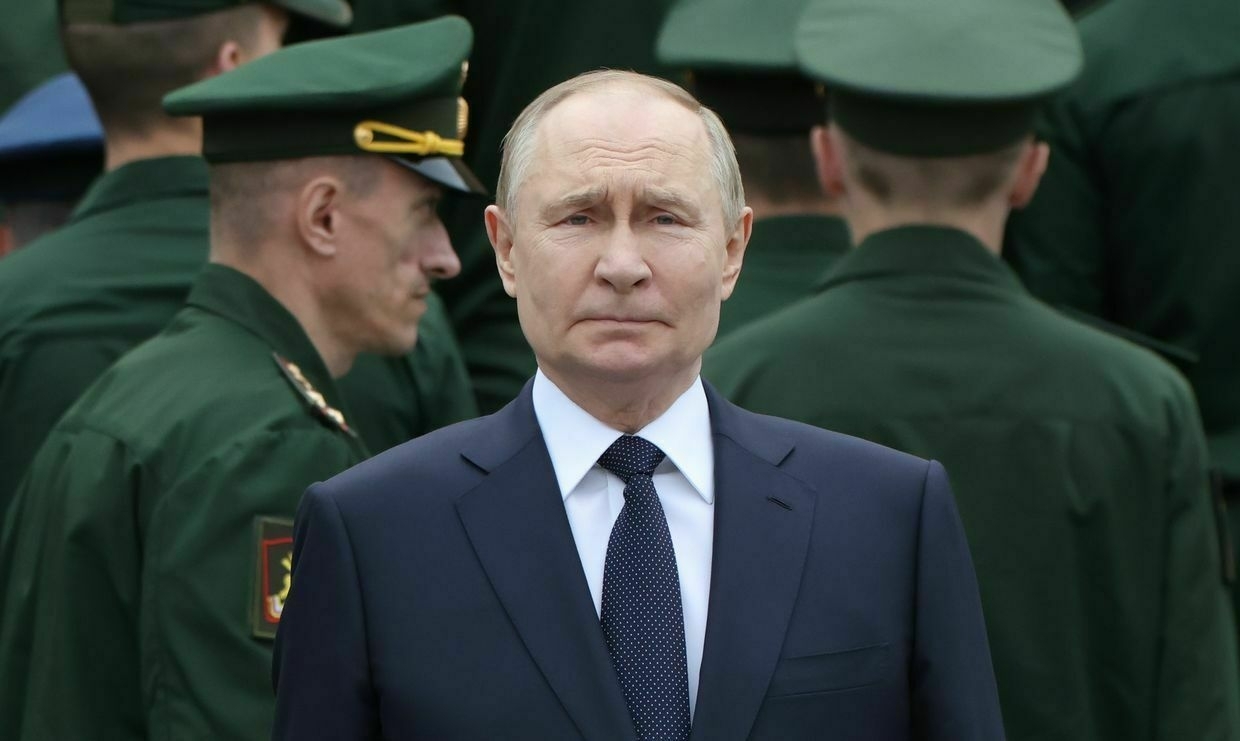
-
Explosions reported in Moscow, airport restrictions imposed as Russian authorities claim drone attack
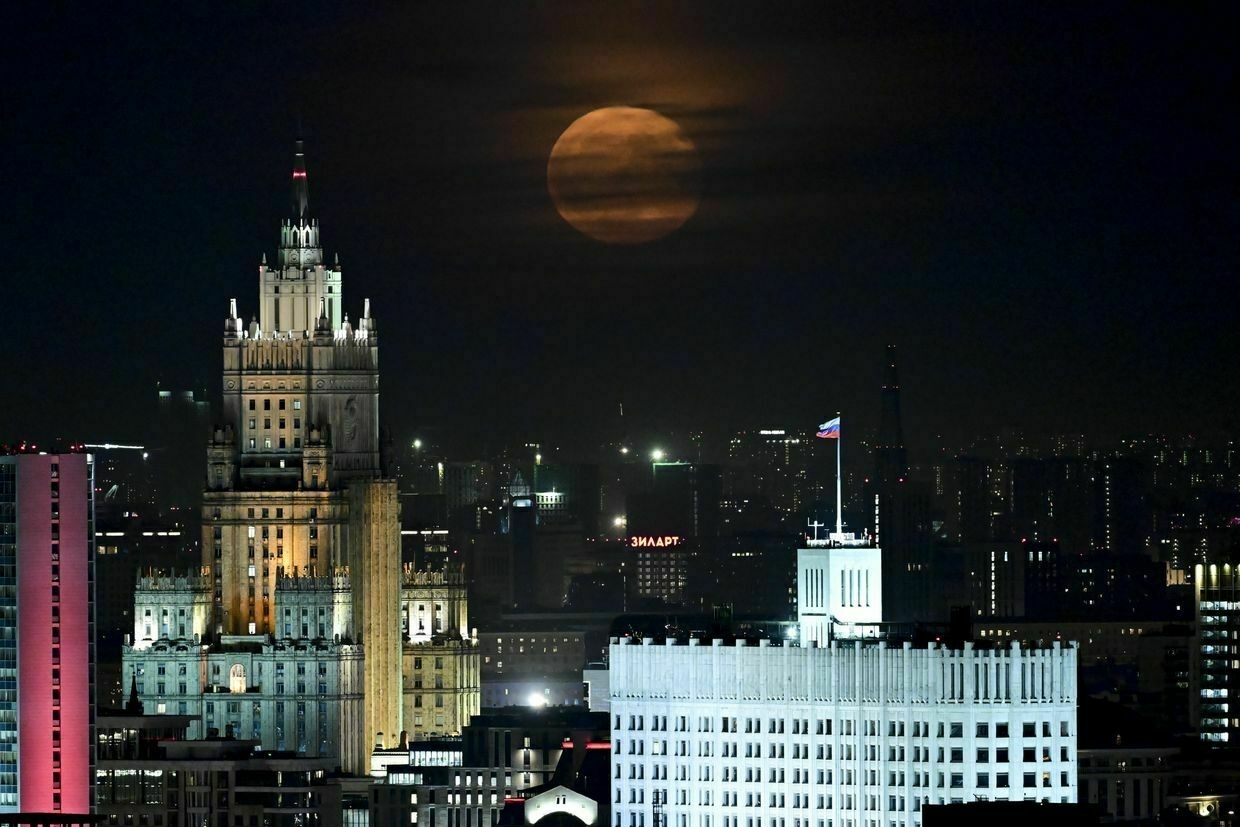
Editor’s note: This is a developing story and is being updated.
Explosions were reported in Moscow overnight on June 26, with Mayor Sergey Sobyanin claiming two drones were shot down by air defenses.
Two drones were shot down, Sobyanin said, adding that emergency services are responding at the wreckage sites.
Ukraine’s military regularly strikes military targets deep within Russia in an attempt to diminish Moscow’s fighting power as it continues its war against Ukraine.
Explosions were reportedly heard in the city, independent media reported, citing Moscow’s residents.
The Kyiv Independent could not independently verify these claims.
Kaluga airport and Moscow’s Vnukovo airport had flight restrictions imposed amid the drone attack, Artyom Korenyako, a spokesperson for Russia’s state aviation agency Rosaviatsia, said early on June 26.
“The airport is temporarily not accepting or sending flights. Aircraft crews, air traffic controllers, and airport services must take all necessary measures to ensure flight safety,” he said.
The restrictions were later lifted.
On June 1, Ukraine launched a game-changing drone attack on four key Russian military airfields, damaging 41 planes, including heavy bombers and rare A-50 spy planes.
Kyiv claimed it disabled 34% of Russia’s strategic bomber fleet in what is seen as one of the most daring operations during Russia’s full-scale war.
Ukraine’s military intelligence agency was behind explosions near Desantnaya Bay in Russia’s far eastern Vladivostok on May 30, which reportedly damaged military personnel and equipment, a source in HUR told the Kyiv Independent.
Ukraine war latest: US signals more Patriot missiles for Kyiv after Zelensky-Trump talks at NATO summitKey developments on June 25: * Zelensky, Trump hold talks on NATO summit sidelines * ‘Something unknown’ hits key Russian drone facility in Taganrog, Ukrainian official says * Russia has launched over 28,000 Shahed drones at Ukraine since 2022, with nearly 10% fired in June alone, Zelensky says * Donetsk Oblast city “onThe Kyiv IndependentThe Kyiv Independent news desk
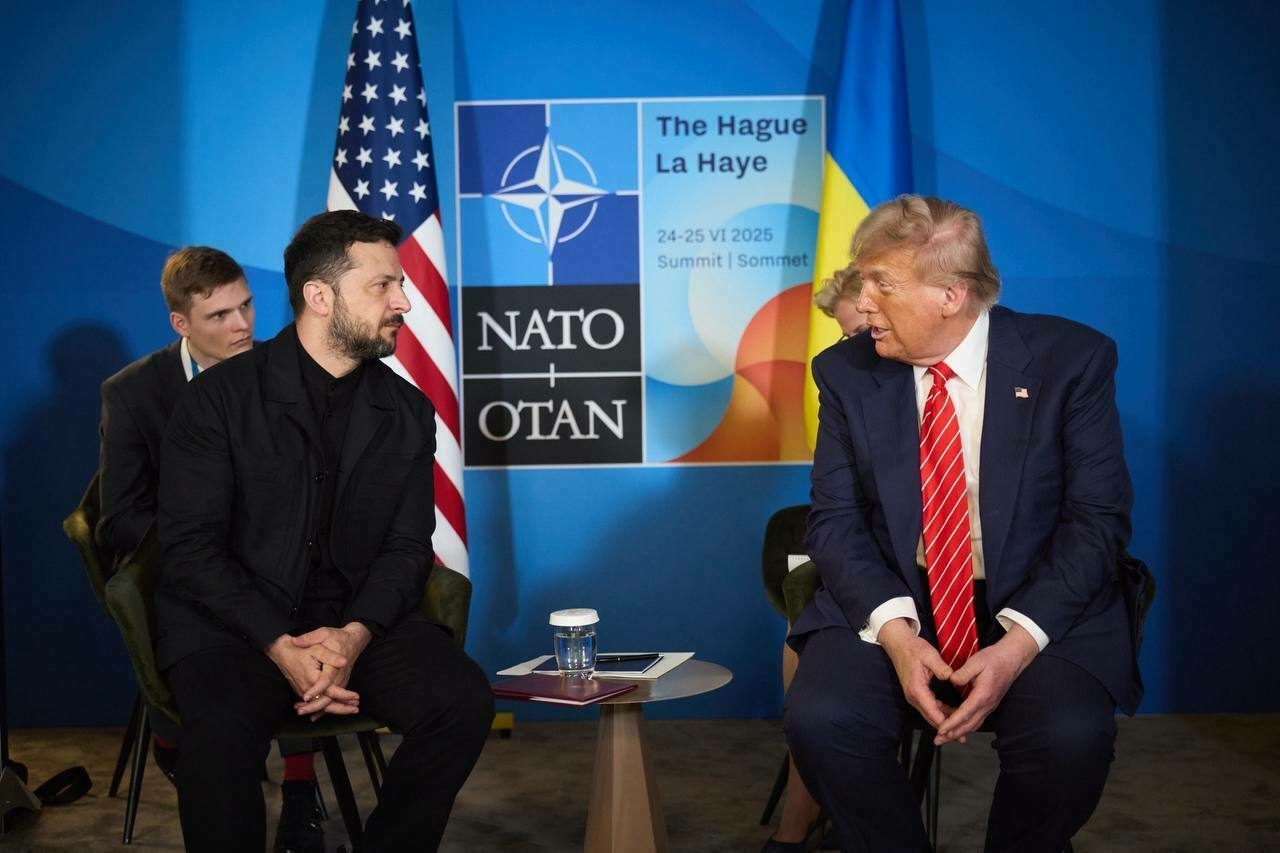
-
NATO allies surprised by Rubio's inconsistency on Russia sanctions, POLITICO reports
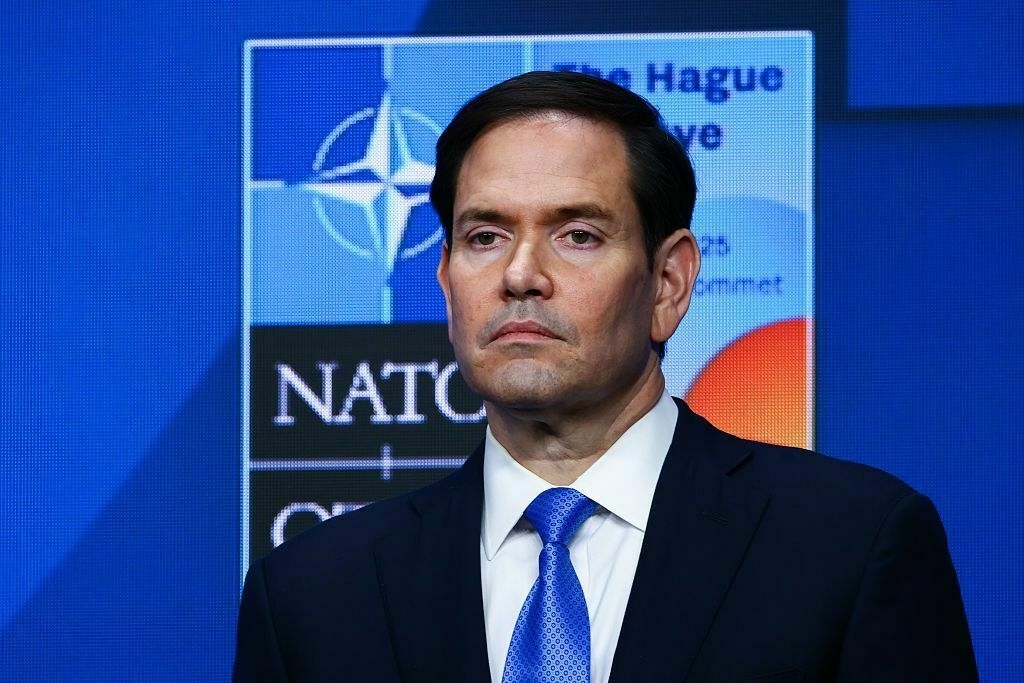
United States Secretary of State Marco Rubio surprised NATO allies this week with conflicting messages on Russia sanctions, delivering a tougher stance in private than in his public remarks, POLITICO reported on June 25.
Rubio met with NATO foreign ministers on June 25 during a private dinner at the alliance’s annual summit. According to sources who spoke with POLITICO, Rubio acknowledged that Russia was the main obstacle preventing peace talks to end the war in Ukraine.
He reportedly said the U.S. Senate would likely consider new sanctions legislation after completing work on President Donald Trump’s spending bill.
However, just hours later, Rubio softened his position on Russia during an exclusive interview with POLITICO, calling for a more cautious approach.
“If we did what everybody here wants us to do, and that is come in and crush them with more sanctions, we probably lose our ability to talk to them about the ceasefire and then who’s talking to them?” Rubio said.
He also added that Trump would know the “time and place” to change course.
When asked about the apparent shift in tone, a senior U.S. official insisted Rubio’s messaging has remained consistent in conversations with allies.
“The secretary has been very consistent in meeting and calls with his counterparts on three key point,” the official said.
“One is that the president believes strongly that the only way this war ends is through negotiations; second, as soon as the U.S. imposes new sanctions on Russia the opportunity for the U.S. to be involved in those negotiations closes; and third, that the Senate, in America anyway, is an independent body that at some point is going to move on those sanctions,."
At the NATO dinner, Rubio reportedly faced criticism from Polish Foreign Minister Radoslaw Sikorski, who claimed that Russian President Vladimir Putin was disrespecting Trump by violating the ceasefire.
It has been more than 100 days since Ukraine agreed to a U.S.-backed complete ceasefire, while Russia continues to reject it.
Sikorski also reportedly denounced Moscow’s repeated attacks on Kyiv and other Ukrainian cities, which have intensified in recent weeks, saying such strikes “should not come for free” — implying that the U.S. and Europe should do more to support Ukraine.
Meanwhile, Rubio has delivered different messages in public and behind closed doors. Despite the shifting rhetoric, Baltic and Nordic countries reportedly view him as a pragmatic ally within the Trump administration — one who has a realistic understanding of the threats posed by Russia and China, according to a second European official cited by POLITICO.
Ukraine war latest: US signals more Patriot missiles for Kyiv after Zelensky-Trump talks at NATO summitKey developments on June 25: * Zelensky, Trump hold talks on NATO summit sidelines * ‘Something unknown’ hits key Russian drone facility in Taganrog, Ukrainian official says * Russia has launched over 28,000 Shahed drones at Ukraine since 2022, with nearly 10% fired in June alone, Zelensky says * Donetsk Oblast city “onThe Kyiv IndependentThe Kyiv Independent news desk
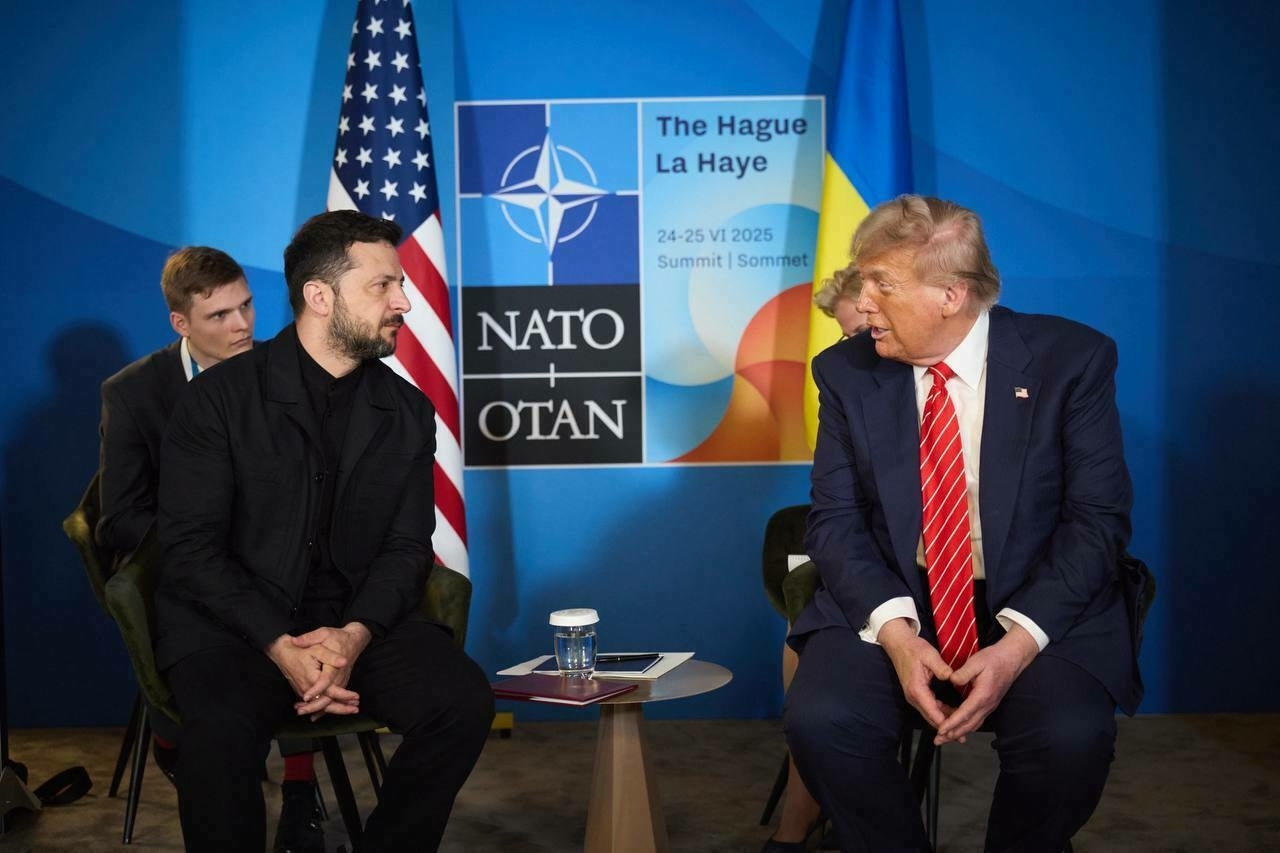
-
Ukraine, Council of Europe sign historic agreement to establish tribunal on Russian aggression
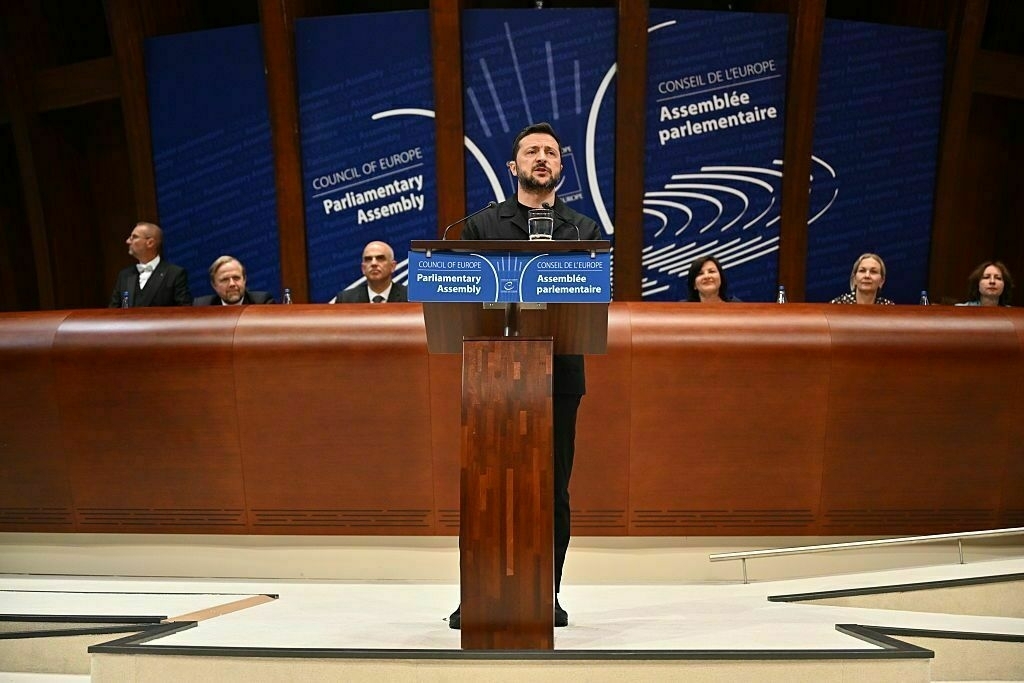
Ukraine and the Council of Europe signed a historic agreement on June 25 to establish a Special Tribunal for the Crime of Aggression , marking a major step toward holding Russia’s leadership accountable for launching the full-scale invasion in 2022.
The agreement was signed by President Volodymyr Zelensky and Council of Europe Secretary General Alain Berset during a ceremony in Strasbourg, France – following more than three years of diplomatic efforts and deliberation.
Speaking at the Parliamentary Assembly of the Council of Europe (PACE), Zelensky thanked the assembly and underscored the importance of justice.
“Everyone responsible for this war must be held to account,” he said. “Every war criminal must face justice – including Putin… the crime of aggression must be recorded, judged, and punished."
Foreign Minister Andrii Sybiha reacted, calling the signing a “historic moment not only for Ukraine, but also for world justice."
The Special Tribunal will be established within the framework of the Council of Europe and will have the mandate to prosecute senior Russian leaders for the crime of aggression – defined as the decision to use armed force against another state, in violation of the United Nations Charter.
The tribunal is intended to close a key legal gap in existing international accountability mechanisms. While the International Criminal Court (ICC) has jurisdiction to investigate war crimes, crimes against humanity, and genocide in Ukraine – it cannot examine the crime of aggression due to jurisdictional constraints. The new tribunal will complement the ICC’s efforts by specifically targeting high-level officials responsible for starting the war.
President Zelensky has long advocated for the creation of the tribunal, emphasizing the need to bring Russian President Vladimir Putin and other senior officials to justice. Ukrainian prosecutors have documented thousands of war crimes committed by Russian forces, including attacks on civilians, cultural landmarks, medical facilities, and reports of torture and forced deportations.
The ICC has already issued arrest warrants for Putin and Maria Lvova-Belova, the Russian official overseeing the forced deportation of Ukrainian children to Russia. While war crimes and crimes against humanity can be prosecuted at any level of command, the crime of aggression focuses exclusively on senior state officials responsible for planning and waging war.
In addition to the special tribunal, the Council of Europe’s Ukraine-related work also includes the Register of Damage, an initiative that has already received more than 34,000 claims detailing losses and harms resulting from Russia’s full-scale invasion. The establishment of the register was a significant international effort and the first step towards a mechanism to ensure justice and compensation for Ukraine and its people.
Zelensky, Trump hold talks on NATO summit sidelines“We covered all the truly important issues,” President Volodymyr Zelensky said. “We discussed how to achieve a ceasefire and a real peace. We spoke about how to protect our people. We appreciate the attention and the readiness to help bring peace closer.”The Kyiv IndependentKateryna Denisova
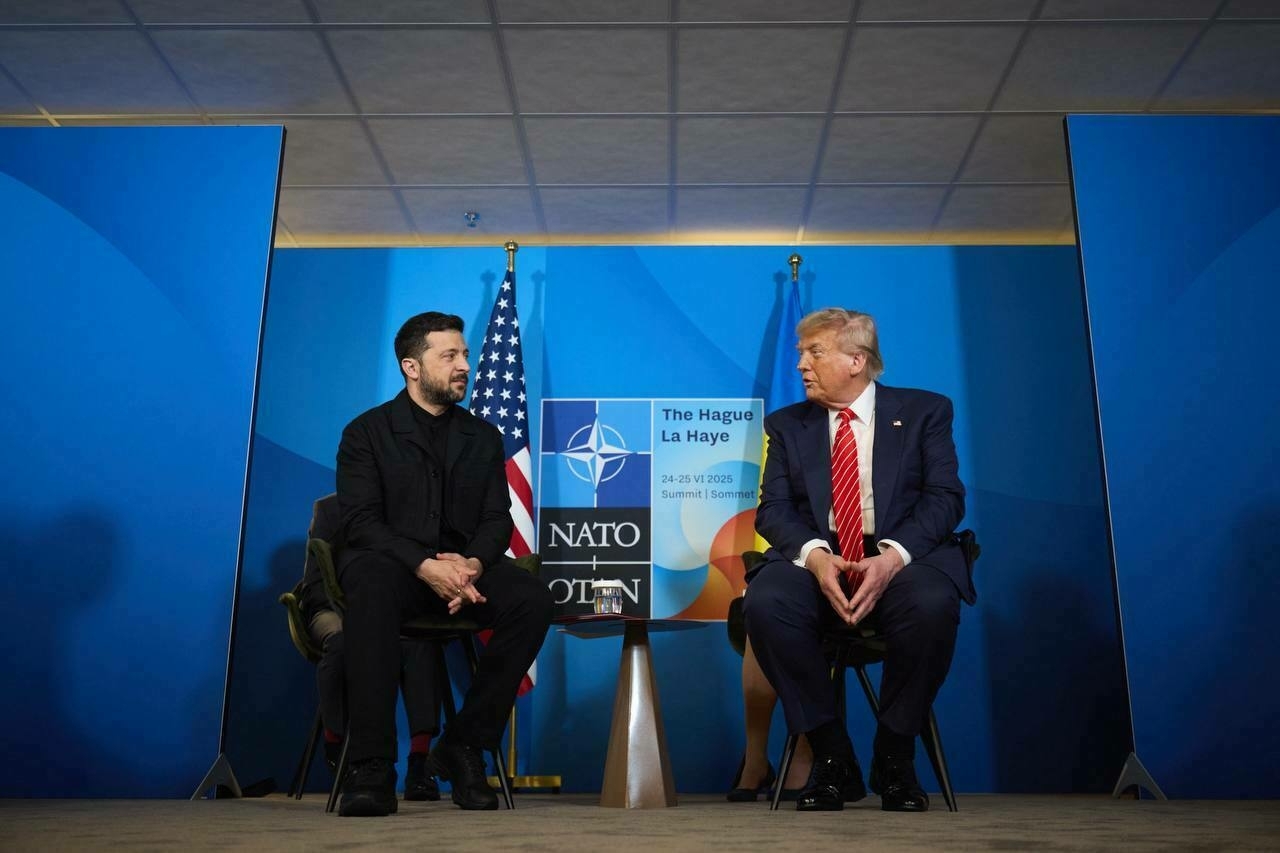
-
Ukrainian author killed by Russia awarded UK’s prestigious Orwell Prize in political writing
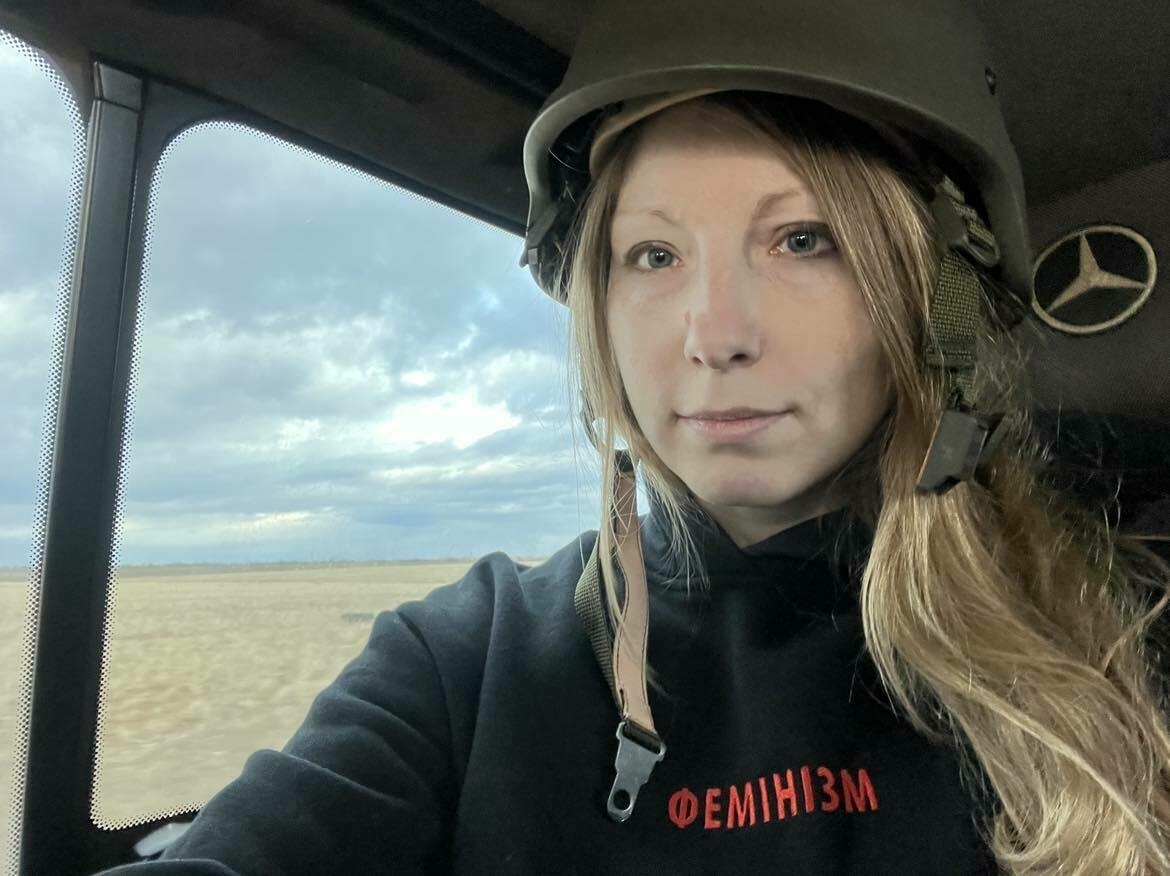
Two years after her tragic death in a Russian missile strike, Ukrainian author Victoria Amelina was posthumously awarded on June 25 the prestigious U.K. Orwell Prize for her book “Looking at Women, Looking at War.”
Amelina was a finalist among notable nominees in the political non-fiction category, including American journalist Anne Applebaum.
Kim Darroch, the chair of judges for the Orwell Prize, called Amelina’s book “an unforgettable picture of the human consequences of war."
A famous Ukrainian author, Amelina took up work as a war crimes researcher following the start of Russia’s full-scale war in 2022.
The posthumous recognition of Amelina’s work is a bittersweet moment for Ukraine’s cultural sphere, which continues to lose artists to the war both on the front line and in attacks against civilians, while Russian artists — regardless of their positions — are being reintegrated into Western cultural life.
“It’s a significant victory for our culture — a book by a Ukrainian author, written in English, has received a prestigious international prize,” journalist and cultural manager Tetyana Teren, who was a close friend of Amelina, told the Kyiv Independent.
“I’m certain that if she were still with us, Victoria would have used this recognition to share vital messages with an international audience about the true reasons behind Russia’s imperial war against Ukraine and Europe and about the urgent need to keep fighting for the future, even as some foreign politicians call for peace without justice built on compromise with the aggressor."
Amelina is among the 208 Ukrainian artists who have been killed by Russia since 2022, according to statistics provided by Ukraine’s Culture Ministry in mid-June.
Amelina died on July 1 after succumbing to serious injuries sustained in a Russian missile strike on Kramatorsk in Ukraine’s eastern Donetsk Oblast. She was only 37 years old and is survived by her son.
Amelina was in Kramatorsk with a delegation of Colombian writers and journalists when two Russian Iskander missiles struck their location in a popular downtown restaurant. Twelve other people were killed in the strike and 60 were wounded.
Kramatorsk is a frequent target of Russian attacks due to its role as a logistical hub for Ukrainian forces.
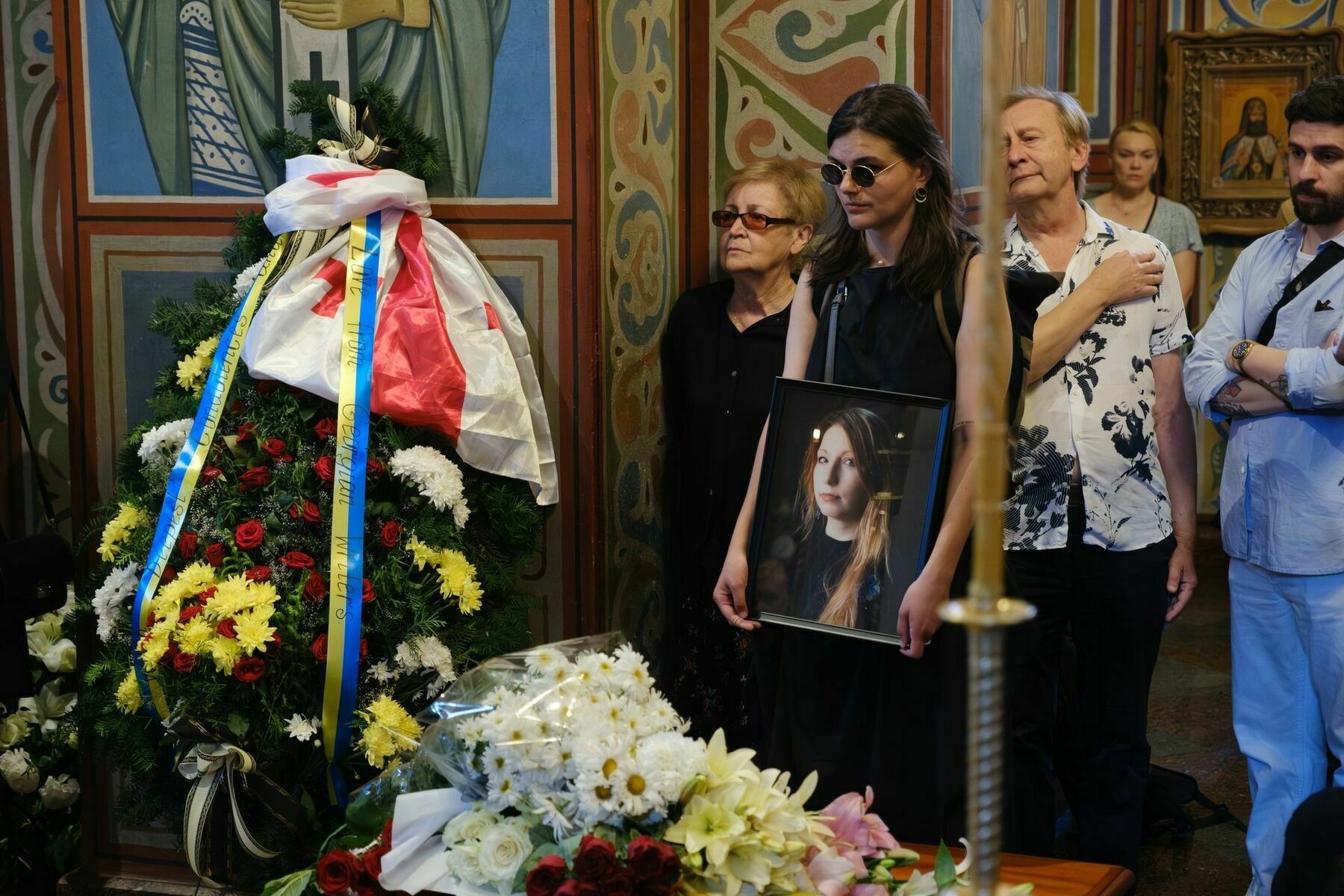
A woman in mourning holds a portrait of late Ukrainian author Victoria Amelina during a funeral ceremony at St. Michael’s Golden-Domed Monastery in Kyiv, Ukraine, on July 4, 2023. (Vitalii Nosach / Global Images Ukraine via Getty Images) At the time of Amelina’s murder, the manuscript for “Looking at Women, Looking at War” remained incomplete.
A group of her closest friends and colleagues undertook the responsibility of finalizing the manuscript for publication, striving to minimize editorial intervention in order to preserve the integrity and authenticity of her voice.
“When I read the first couple of chapters of Victoria Amelina’s manuscript in late 2023, the words ‘Orwell Prize’ popped up in my mind,” academic Sasha Dovzhyk, who was part of the editorial team, told the Kyiv Independent. “Victoria’s gift for drawing parallels between past and present, her political vision, and her drive in the pursuit of justice were conveyed in lucid and elegant prose, much in the spirit of George Orwell.”
“And then this polished text fell apart, disassembled into notes and unfinished chapters, which in themselves have become a testimony of Russia’s war crimes and its attempts to erase Ukrainian culture.”
“Looking at Women, Looking at War” explores both the resilience and adversity faced by Ukrainian women during the war, including figures such as human rights lawyer and Nobel Peace Prize laureate Oleksandra Matviichuk and artist Liubov Panchenko.
“I see the tremendous efforts you and your colleagues make to give justice a chance,” Amelina writes Matviichuk, as she details in the book.
“Yet despite all our efforts, we still might lose. And if we lose, I want at least to tell the story of our pursuit of justice.”
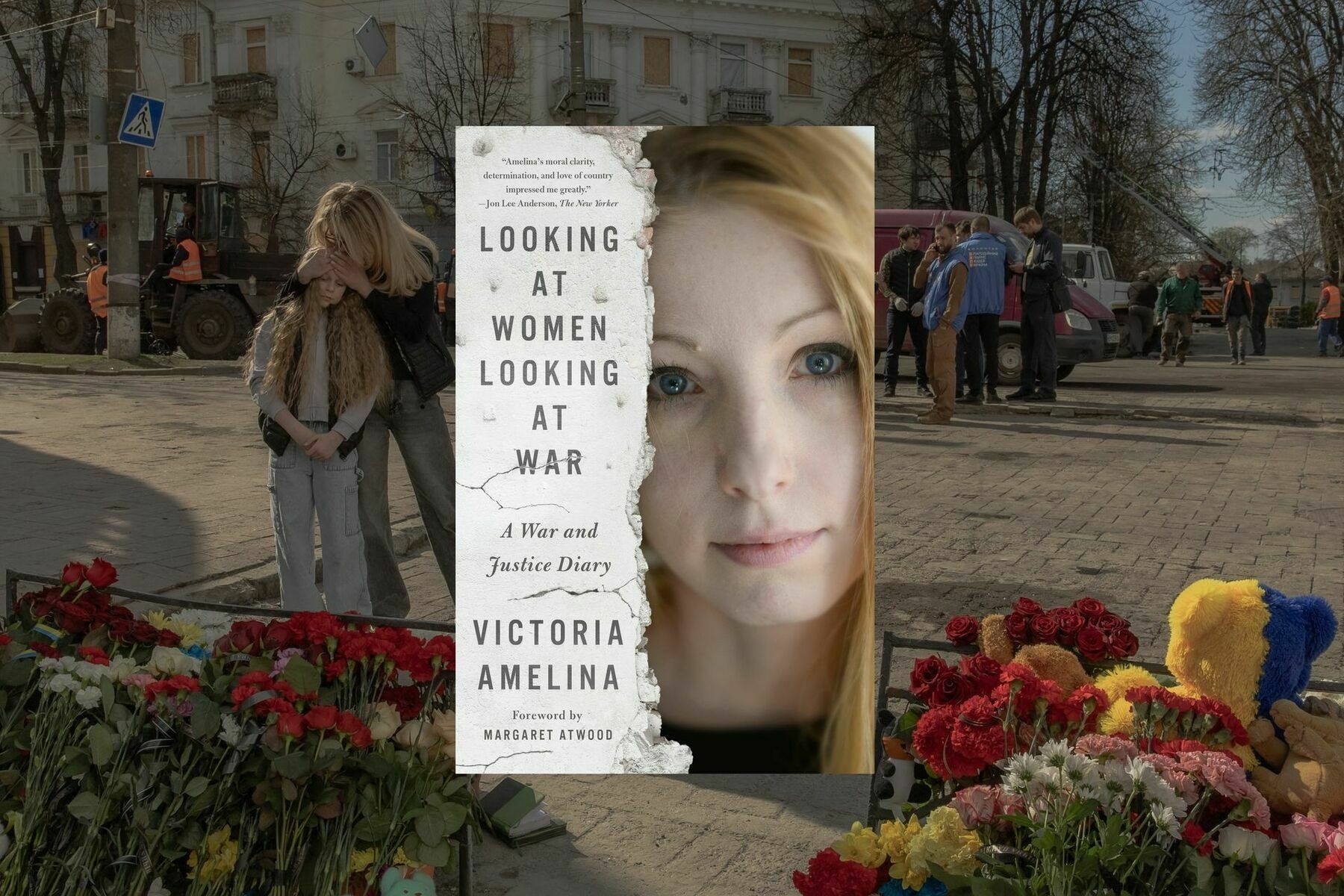
The cover of Victoria Amelina’s book “Looking at Women, Looking at War” and a photograph of women and children at a makeshift memorial at the site of a missile attack in Sumy, Ukraine, on April 14, 2025. (Roman Pilipey / AFP via Getty Images) Alongside these accounts, the book also traces Amelina’s personal journey into investigating war crimes, highlighting the emotional toll of juggling such harrowing work with motherhood.
Previous winners of the Orwell Prize in the political writing category include American journalist Joshua Yaffa’s book “Between Two Fires: Truth, Ambition, and Compromise in Putin’s Russia” in 2021 and “Say Nothing: A True Story of Murder and Memory in Northern Ireland” by American journalist Patrick Radden Keefe in 2019.
Amelina is the first Ukrainian writer to receive the prize.
Amelina was among Ukraine’s most prolific young authors, having transitioned from a career in IT to full-time writing in 2015. Before the full-scale invasion, she actively published fiction, poetry, and children’s literature.
Her debut novel, “The Fall Syndrome” (2015), centers on the events of the 2014 Revolution of Dignity, also known as the EuroMaidan.
Her 2017 novel, “Dom’s Dream Kingdom,” explores the life of a Soviet colonel’s family living in 1990s Lviv in the childhood apartment once lived in by Polish-Jewish writer Stanislaw Lem.
Her work has also been translated into a number of languages, including English, Polish, Italian, Spanish, German, Croatian, Dutch, Czech, and Hungarian.
Note from the author:
Hi there, it’s Kate Tsurkan, thanks for reading my latest artice. I was overcome with such strong emotions when I learned that Victoria Amelina won this prestigious literary prize. She was my friend, and I can’t help but think not only of the time we spent together but of the loss of a great literary voice that Russia stole from this world. Please read her book, and don’t let her work ever be forgotten. Also, if you like reading about this sort of thing, please consider supporting us and becoming a member of the Kyiv Independent today.
Russia killed Ukrainian author Victoria Amelina — but not her words or quest for justiceUkrainian author Victoria Amelina never got to finish writing her book “Looking at Women, Looking at War.” After she was killed in a Russian missile strike on Kramatorsk in Ukraine’s eastern Donetsk Oblast in 2023, it fell upon her closest friends and colleagues to do what they could toThe Kyiv IndependentKate Tsurkan


